By Nicole Keiper
Photography by Julia Steele
From the outside, the 20,000-square-foot building at 2100 Dunn Ave. near the fairgrounds looks a like any other Nashville warehouse. Inside, though, The Hill collective buzzes with creative color as 16 local businesses dig into the day’s work — stitching sleek jackets, printing band posters, designing custom light fixtures and fabricating stylish signage, among scores of other projects.
Each company — including clothing/furniture maker Oil + Lumber, lighting designer Southern Lights Electric and screenprinting house Grand Palace — has its own space, but the commonalities that come with the shared creative entrepreneurship give The Hill a collaborative, grown-up-dorm vibe.
“We all … are in each other’s studios all the time,” says Oil + Lumber head Ethan Summers, who initially found the space in 2015. Before that it had at times served as a woodworking shop, art gallery and storage and even practice facility for the Nashville Rollergirls.
The pop-ins are social, sure, but Summers says the breezy flow among Hill residents has been a professional boon, too — a design client might come into the Oil + Lumber workshop for a consult, admire a Southern Lights Electric fixture and get nudged down the hall to check out more.
Understandable result: A growing list of local and national businesses mine The Hill for an array of creative needs. Walk into the Noelle hotel downtown and you’ll see wallpaper printed at Grand Palace and glowing fixtures designed by Southern Lights Electric. Stop for a pour-over at Barista Parlor in East Nashville and you’ll walk past blinking Sideshow Sign Co. signage to perch under more Southern Lights creations.
It’s a personal and professional synchronicity that The Hill residents are quick to appreciate.
“Being in this building with all these other amazing, talented individuals running small businesses — we totally support each other, feed each other,” says Grand Palace partner Drew Binkley. “It’s kind of hard to imagine it being any other way.”
Southern Lights Electric
Southern Lights Electric co-owners Adam and Jamie Gatchel didn’t intend, necessarily, to build a custom lighting business. It sort of just happened. Prepping for marriage in 2011, Adam was a touring musician, and Jamie worked for a nonprofit. The couple started fixing up their East Nashville rental home, just for their own enjoyment, building furniture and cabinets and tinkering with lighting.
“I really liked building light fixtures, for some reason, so we started trying out a bunch of them,” Adam says, perched at a table inside his company’s spacious showroom/workspace at The Hill. Across from him is a small mountain of boxed, stacked Southern Lights Electric Bell Jar Table Lamps.
“Eventually there were just too many lights, so we put something online just to see if they would sell. They started selling pretty quickly, and I realized it was almost more money doing that than if I was leaving town to go on the road for months.”
Their early experiments on Etsy, Fab.com and One Kings Lane had a more industrial-leaning vibe. That was pertinent, then, to the aesthetic inside many a hotel, restaurant, coffee shop and bar in Nashville and beyond. Southern Lights Electric’s online embrace pretty quickly transitioned into attention from local entrepreneurs, who tapped the team for custom lighting designs.
“Barista Parlor on the East Side was the first one,” Adam says, “and then it spiraled from there. So then I was full-time doing it for … one or two years. And then Jamie was able to leave her job and come on full-time as well. She’s been that way ever since.”
These days, 75 percent to 80 percent of Southern Lights Electric’s business is custom commercial design — they count stylish eateries Rolf & Daughters, Pinewood Social and Butcher & Bee among their Nashville clients; beyond, they’ve outfitted Atlanta’s Hotel Clermont, New York’s The Beekman Hotel, Soho House locations in Illinois and California, and many others.
The couple’s direct-to-consumer connection has remained constant since their Etsy days, though, and they’re making a focused effort to expand it. Though one of their earliest direct-sale success stories, the Edison-bulbed Bell Jar lamp, still gets fabricated (largely because they still sell about 800 a year), Southern Lights Electric’s creative inspiration has moved in a less-industrial direction, toward a more midcentury and modern aesthetic.
Homeowners and renters who get drawn in by the team’s current designs — updated versions of the classic ’50s Sputnik chandelier, Louis Poulsen-esque pendants and other classic looks — now have access to almost as much detail and input as the company’s custom commercial clients when they’re buying online.
“We wanted to provide that same sort of experience for a homeowner or someone that just wanted to purchase something online,” Adam says. “So you can go on and just purchase a pendant or chandelier, but we’d give you the option to customize everything, because everything’s made to order with the exception of the Bell Jar desk lamp. If you wanted a Sputnik-style chandelier but wanted it a little bit bigger or maybe a little different shape, that’s no problem.”
Being able to tweak and personalize pieces — size, color, finish, drop height — doesn’t put Southern Lights Electric fixtures exclusively into the realm of ultra high-budget buyers either. Most run in the $500 to $1000 range (some larger fixtures are more; the persistent Bell Jar lamp goes for just $135).
“It provides an experience for a customer where they feel like they’ve made it themselves, or they had something really made for them,” Adam says. “Every order, whether it’s a restaurant or somebody that ordered a single pendant, gets talked about in our meetings twice a week. We try to give smallest order and the largest order an equal amount of care and attention.”
Grand Palace
As the morning revs up inside Grand Palace’s studio at The Hill, a rainbow of inks, reams of poster paper and stacks of blank T-shirts get moved into position — the key components of what will eventually fill a touring band’s merch bin.
Since 2006, the Nashville screenprinting company has been keeping local and not-so-local musicians flush with printed goods. Founder Bingham Barnes and partner Drew Binkley came by that calling honestly, playing in touring bands (including Nashville’s Glossary and The Ascent of Everest, respectively) that had their own steady merch needs.
“That’s a common story, I’ve learned,” Binkley says of their musician-to-screenprinter career paths. “Bands need merch, and when you’re in a band, you’re not making money. So how do you have merch? You figure out how to make your own.”
That figuring-it-out approach was the foundation of Grand Palace’s growth as they have kept making band tees and tour posters for an expanding — and often unexpected — repertoire and clientele.
Caps and shirts and other merch staples still form the bulk of Grand Palace’s business, and their client base ranges from bold-name music makers like Jason Isbell to local beer purveyors Jackalope Brewing Company and restaurant Rolf & Daughters. But more and more, the brand has been asked to branch out beyond the expected.
Some projects have music connections, like the handmade, small-batch guitar effects pedals they’ve been printing for 1981 Inventions, a local company led by Relient K guitarist Matthew Hoopes. Some, not so much. They’ve done hankies for local chocolatiers Olive & Sinclair Chocolate Co. and printed on screen doors for Martin’s Bar-B-Que Joint. Grand Palace produces the sleek, retro-cool metal nameplates affixed to Hill neighbors Southern Lights Electric’s trademark Bell Jar Table Lamps, too.
“Our motto has always kind of been, ‘We’ll print on anything that’s flat,’” Binkley says, laughing.
The team hasn’t always gone into new projects knowing exactly how they’d tackle a fresh, if flat, canvas, though. When Nashville design studio New Hat Projects approached Grand Palace with the idea of hand-screenprinting wallpaper, it was a definite figure-it-out job. Without the space or tools used by traditional wallpaper printers, the Grand Palace team had to get crafty, lining lasers up with registration marks and trudging through trials and errors to find a process that worked.
“It was done on the basis of, like, ‘We don’t know if this is going to work. If it does, awesome. If it doesn’t, then, sorry? We tried,’” says Binkley.
With a creative wallpaper printing process nailed, Grand Palace and New Hat collaborations have since popped up in a mix of Nashville’s most stylish spaces, including lodging spots Germantown Inn and Noelle hotel and restaurants Henrietta Red and Caviar & Bananas.
Grand Palace’s interior work has expanded to Cracker Barrel brand Holler & Dash — onto large, printed wood panels that anchor the restaurants’ wall décor. That job asked for creative experimentation, too, and success brought a pretty decent reward.
“We didn’t really know if we could do it, and we just tried,” Binkley admits. “And they’re like, ‘OK, if you get this down then you’ll be printing them for every location. We’re planning to have 50-something locations in the next three years.’”
It’s rewarding, too, that clients — be they bands, lighting companies, wallpaper designers or national corporations — still see the value of old-fashioned screenprinting in an increasingly digital world.
“It is definitely unique compared to digital printing. It’s tactile. The process itself lends some natural inconsistencies and variation. It doesn’t look perfect,” Binkley says. “And for me, I like to think that everyone (appreciates) just the thought that someone’s hands touched every single piece, throughout the whole process. So, it’s not just put in a machine and spit out. There’s a lot of time and effort and care that goes into it. I like that people recognize that.”
Oil + Lumber
When Ethan Summers launched Oil + Lumber in 2015, the name had a direct connection to what was in and on his hands on any given day: He was fixing up motorcycles and building custom furniture for whoever asked.
Now the bikes are mostly parked. His business has developed into more of a fabric-and-lumber vision. The Nashville-bred lifestyle brand produces custom furniture and “genderless” clothing, all designed to look distinct but to carry a cohesive thread: Japanese-inspired Oil + Lumber couch cushions might share the same material as the Claude jacket, a classic French painter’s coat. Button-up shirt colors might be influenced by the stain choice on a side table.
“Everything that we build is tied together,” says Summers, sinking back into one of Oil + Lumber’s Elena sofas, built with Japanese oak and covered in cotton canvas using a Japanese upholstery method that traces back hundreds of years. “Whether it’s apparel or whether it’s furniture, we always are taking into account, ‘If we’re making it out of this, how does that make sense with our clothing?’ If it doesn’t fit, we don’t even think about it, unless it’s something completely custom.”
“Completely custom” has been a steady focus at Oil + Lumber — the company has designed and built furniture and décor pieces for a long list of high-profile Nashville businesses, including downtown hotel Noelle, bowling-and-dining hangout Pinewood Social and high-end burger brand Burger Up, along with national names like Cracker Barrel’s “millennial” brand Holler & Dash. Those businesses turned to Oil + Lumber in a large part, Summers figures, because they deliver a quality product, but also because they have the gumption to solve unusual or complex problems. This particular week, the Oil + Lumber team was working to wrap up an order from a coffee-shop client for an “aquaponic lampshade.”
“We look at things uniquely,” Summers says, laughing. “I mean, we were like, ‘Yeah, I don’t know what that means, but what do you need it to do?’”
This fall, Oil + Lumber stepped out with a focused declaration of their own distinct aesthetic: The FW18 Collection is a streamlined set of core products, from stitched-leather sling stools to a hand-dyed indigo Haori coat, based on traditional Japanese design.
“If people ask me like, it’s a little midcentury, a little Japanese and a little Scandinavian design,” says Summers, whose pull toward Japanese design and toward working with his hands both trace back to family. His maternal grandfather was a farmer from Japan; his paternal grandfather was an IndyCar mechanic. Both loom large as influences in his aesthetic direction and DIY drive, as does Summers’ mother.
“I was short, so my mom was like, ‘You need to know how to hem your pants, because you’re going to have to hem your pants for the rest of your life, and you’re not going to have to pay 20 bucks every time you go do it,’” he remembers.
Oil + Lumber, fittingly, has developed into something of a family business. Summers’ wife, Kelcee, wrangles a mix of Oil + Lumber logistics, like payroll and scheduling, and younger brother ,Landon, who started full-time after graduating college last year, handles an array of Oil + Lumber tasks, too, from web coding to product fabrication. (Friends/cohorts Holly Schuldt, Christine Schumann and Michael Logsdon round out the team.)
Summers’ aim, ultimately, is for Oil + Lumber to produce family heirlooms.
“I always build things that I’d want to use, and I put things through the wringer pretty good, pretty heavily,” he says. “So anything that we create is made to last. … We’re creating items that hopefully your grandkids or your kids fight over when they’re moving to college — stuff that will last that long. I really want that.”
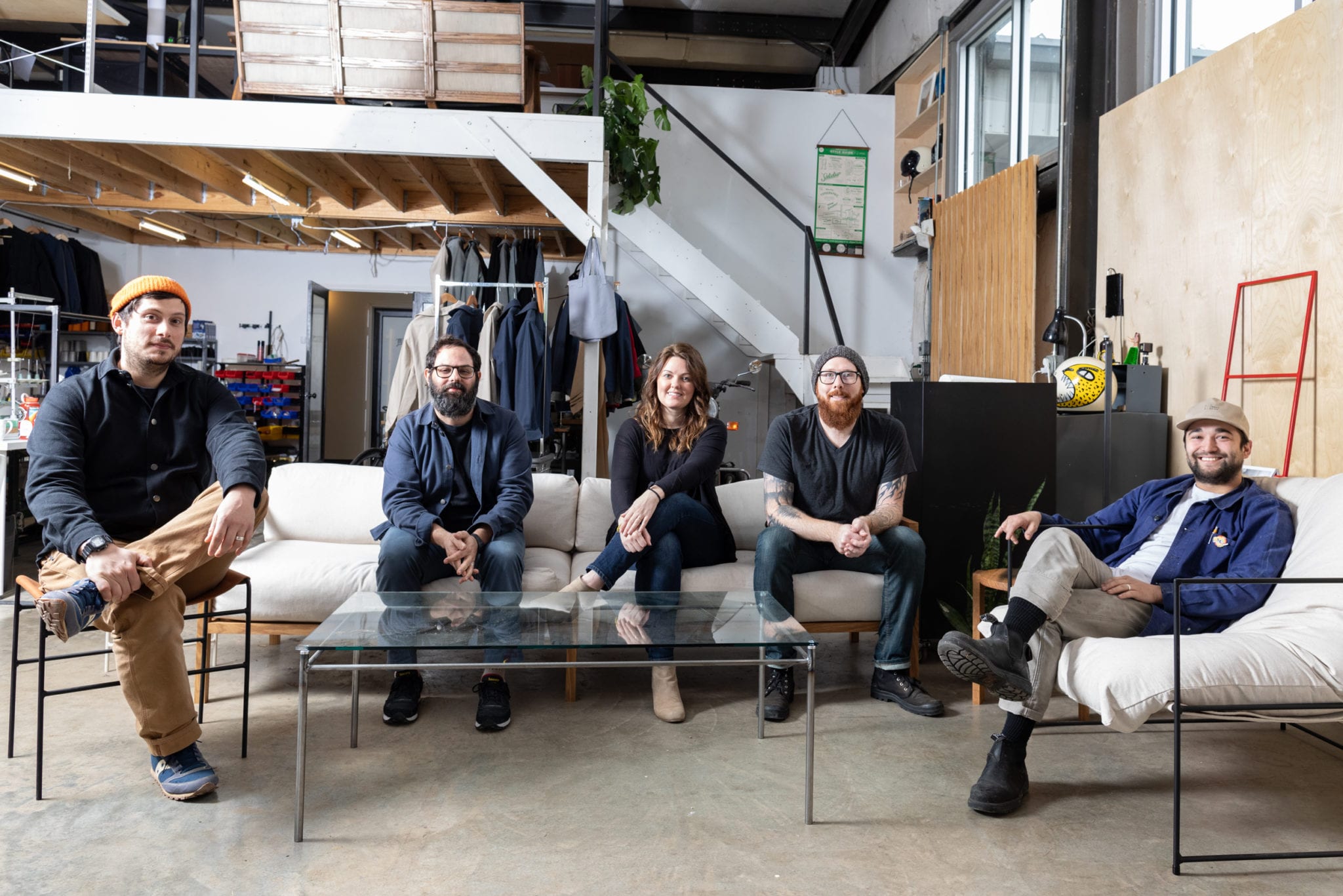
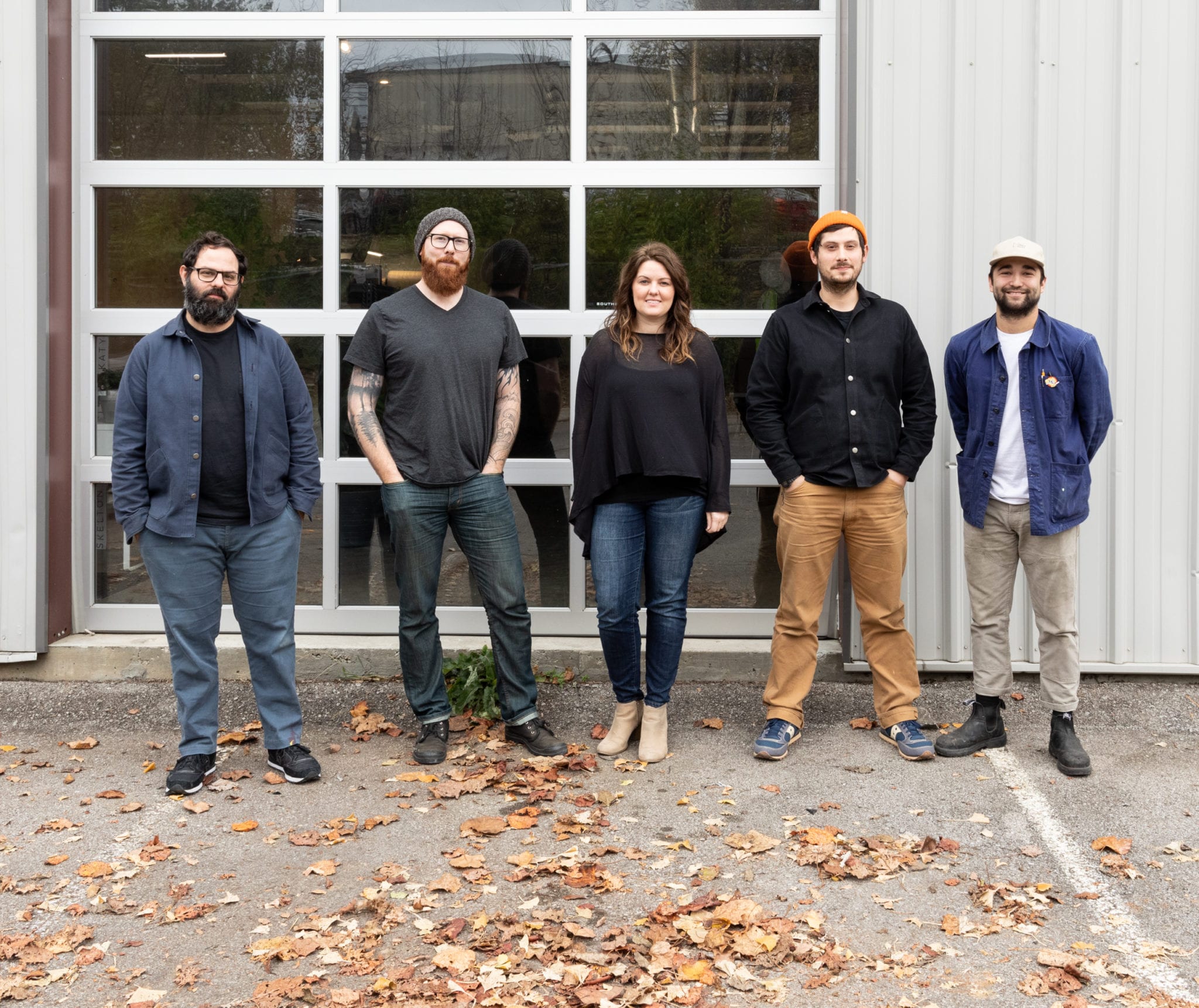
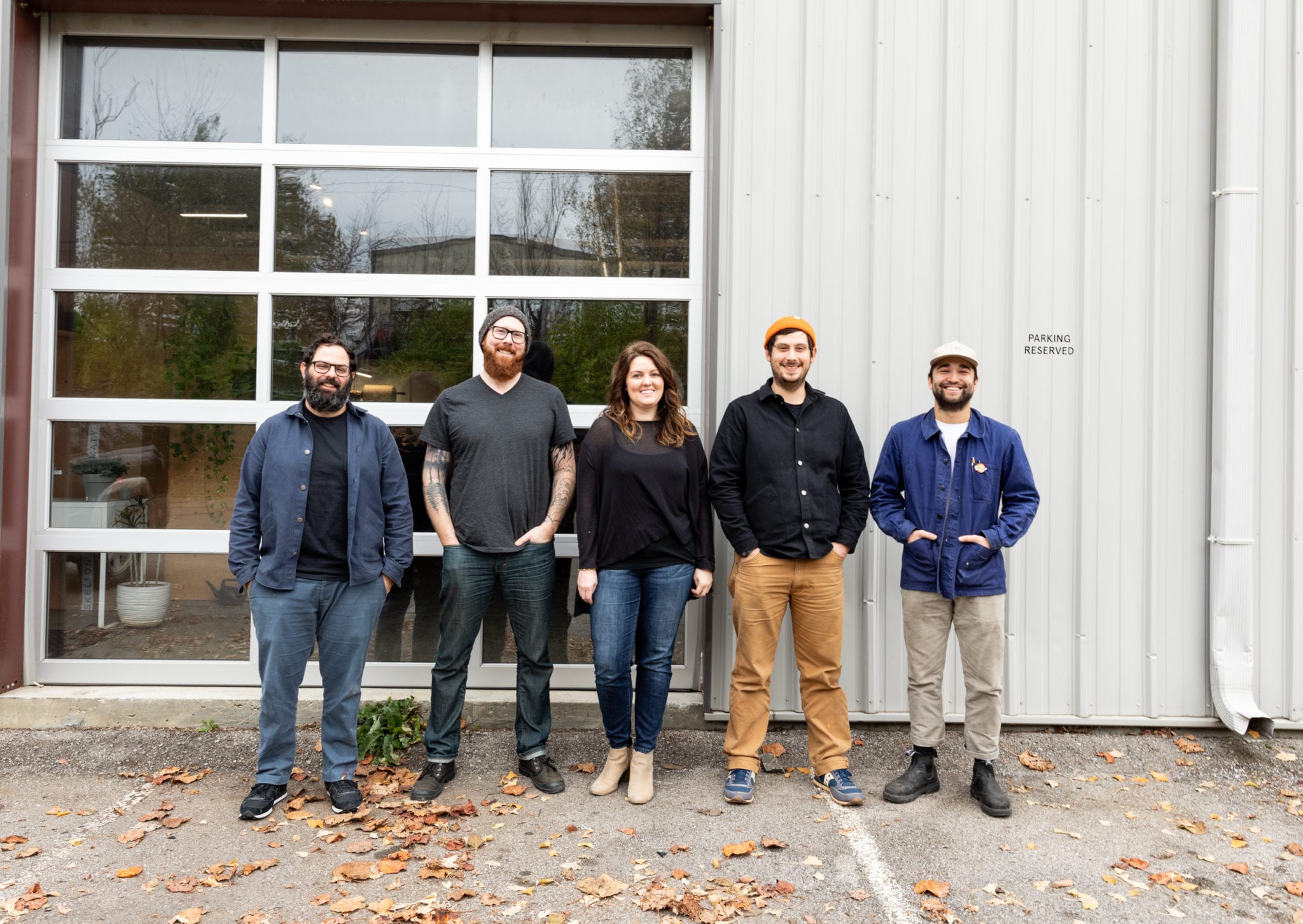
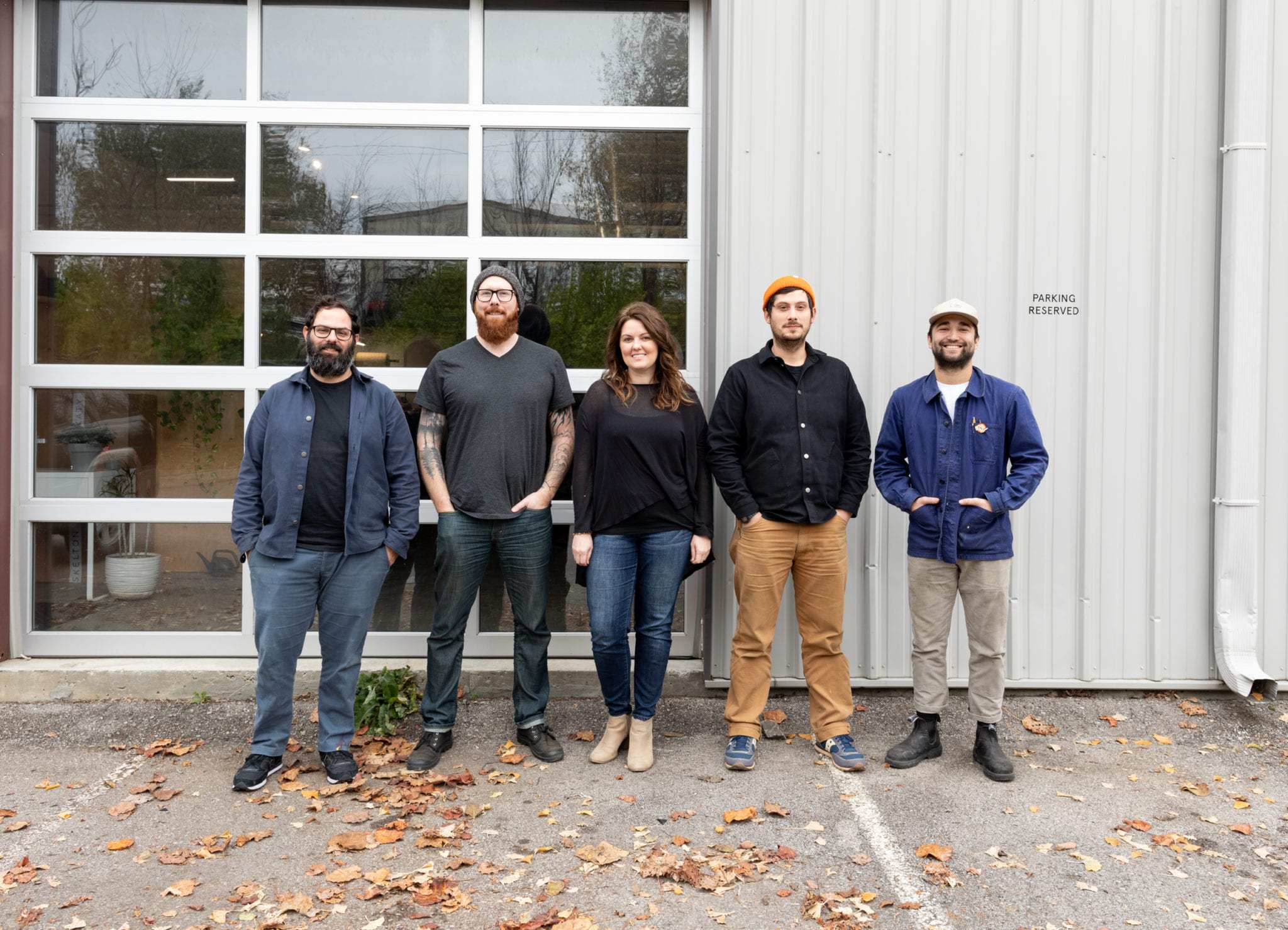
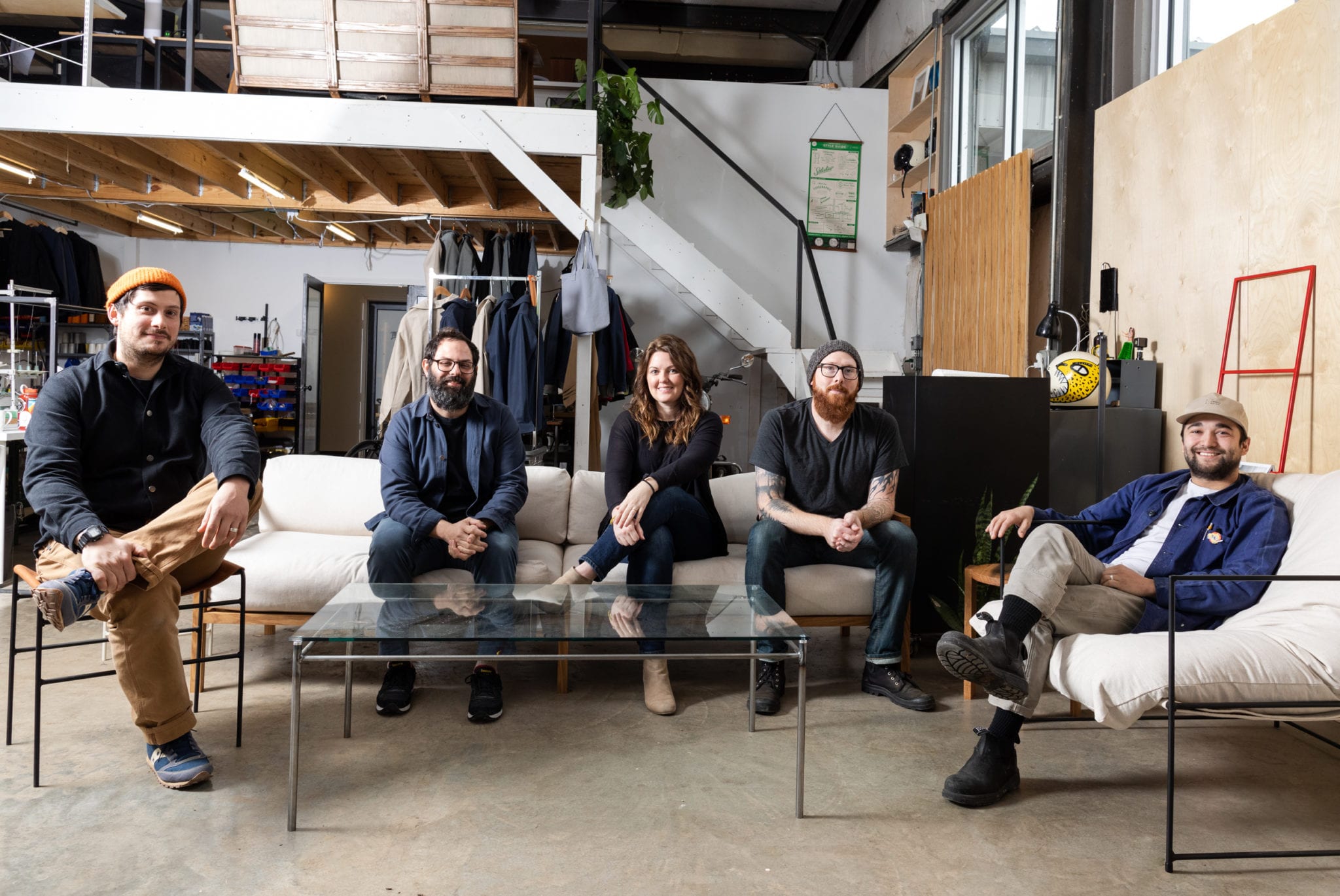
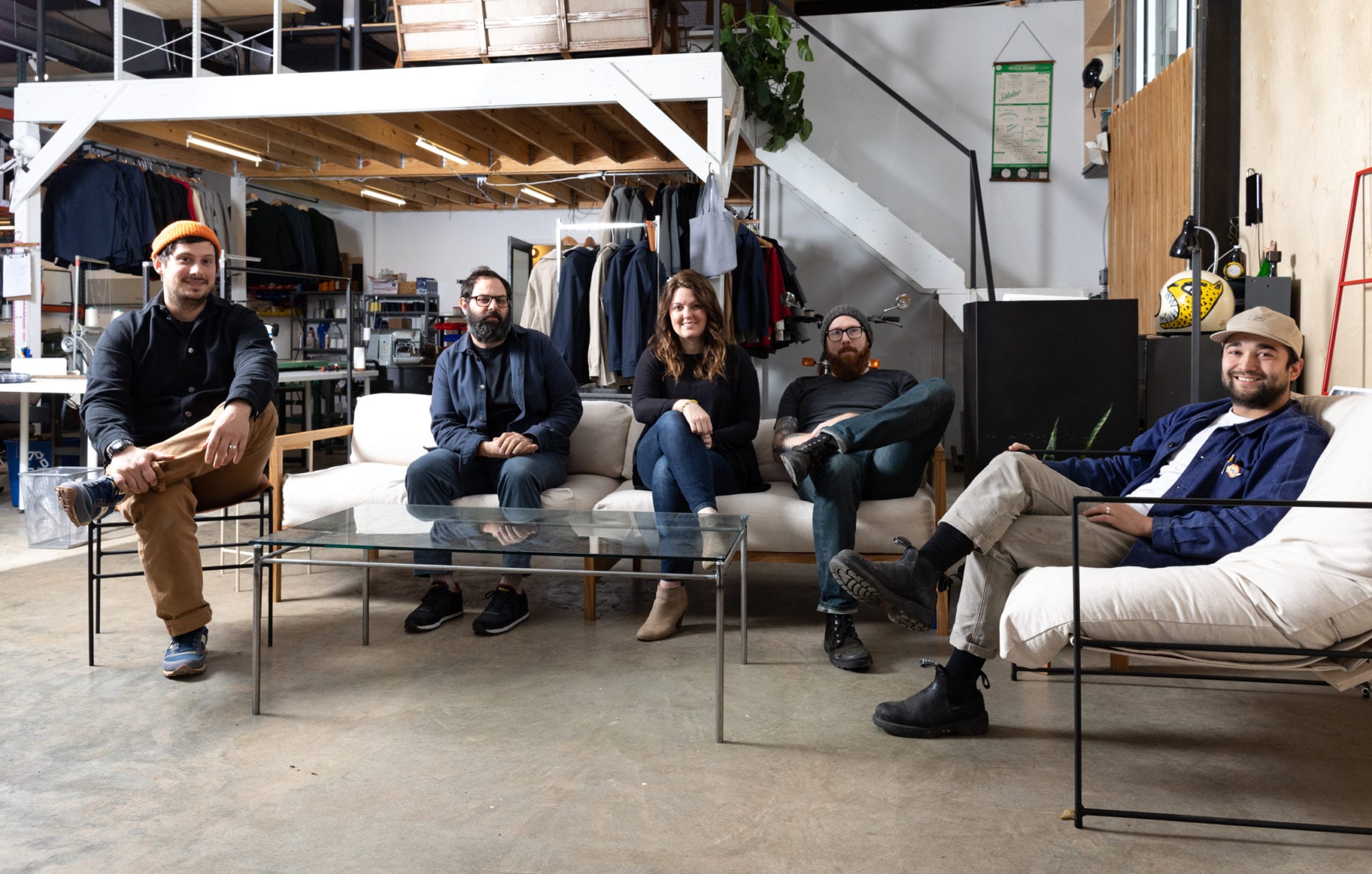
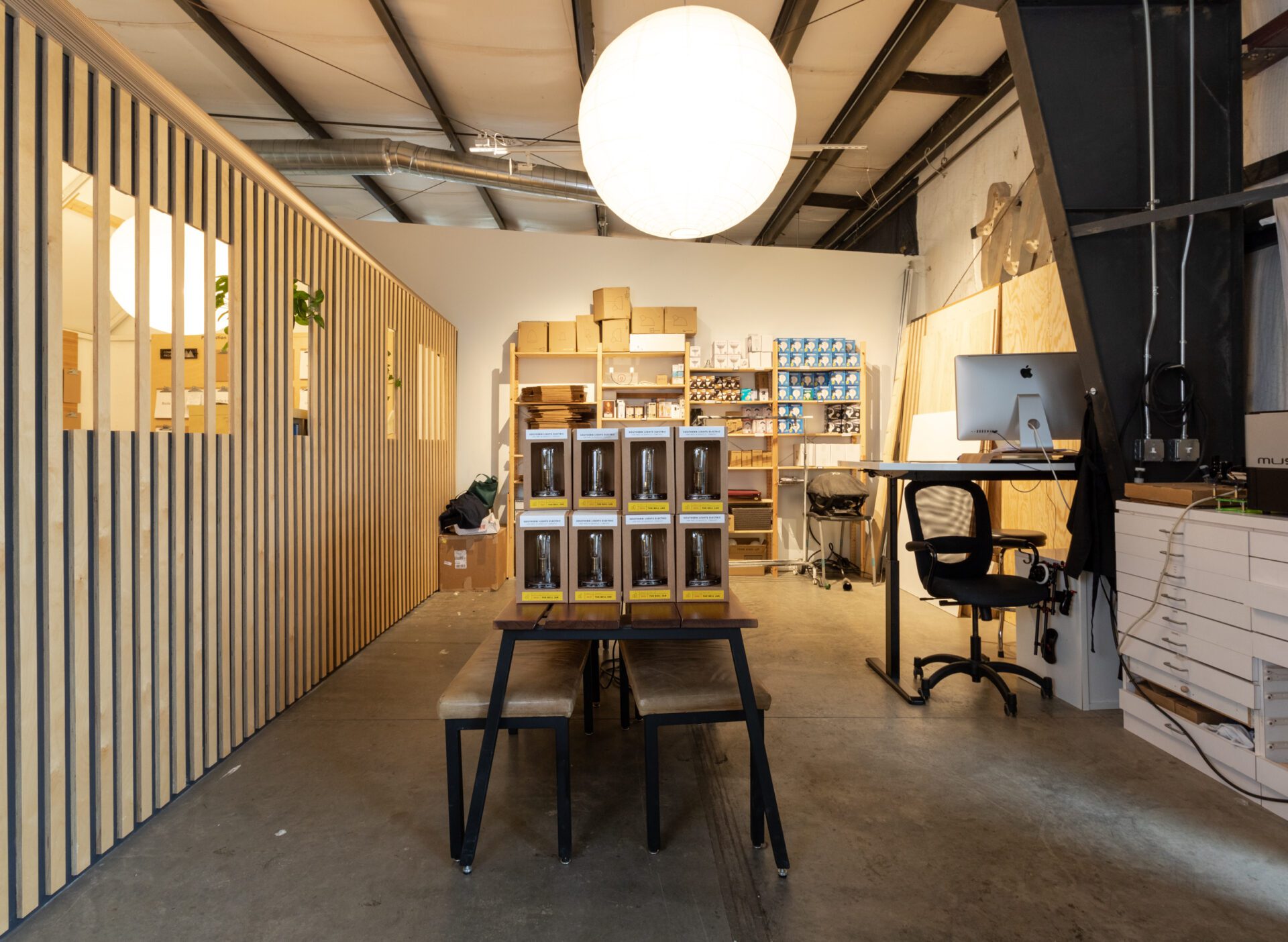
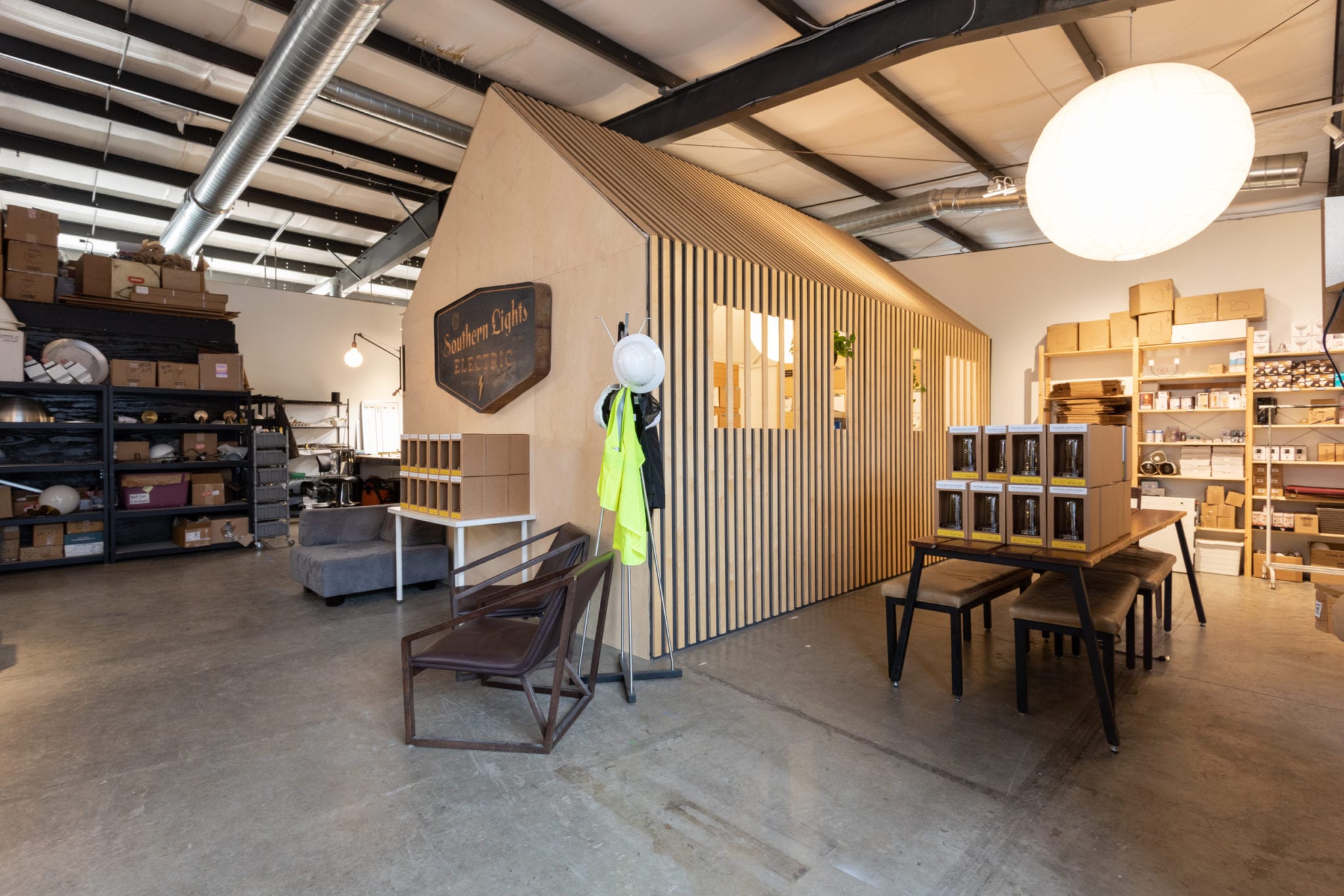
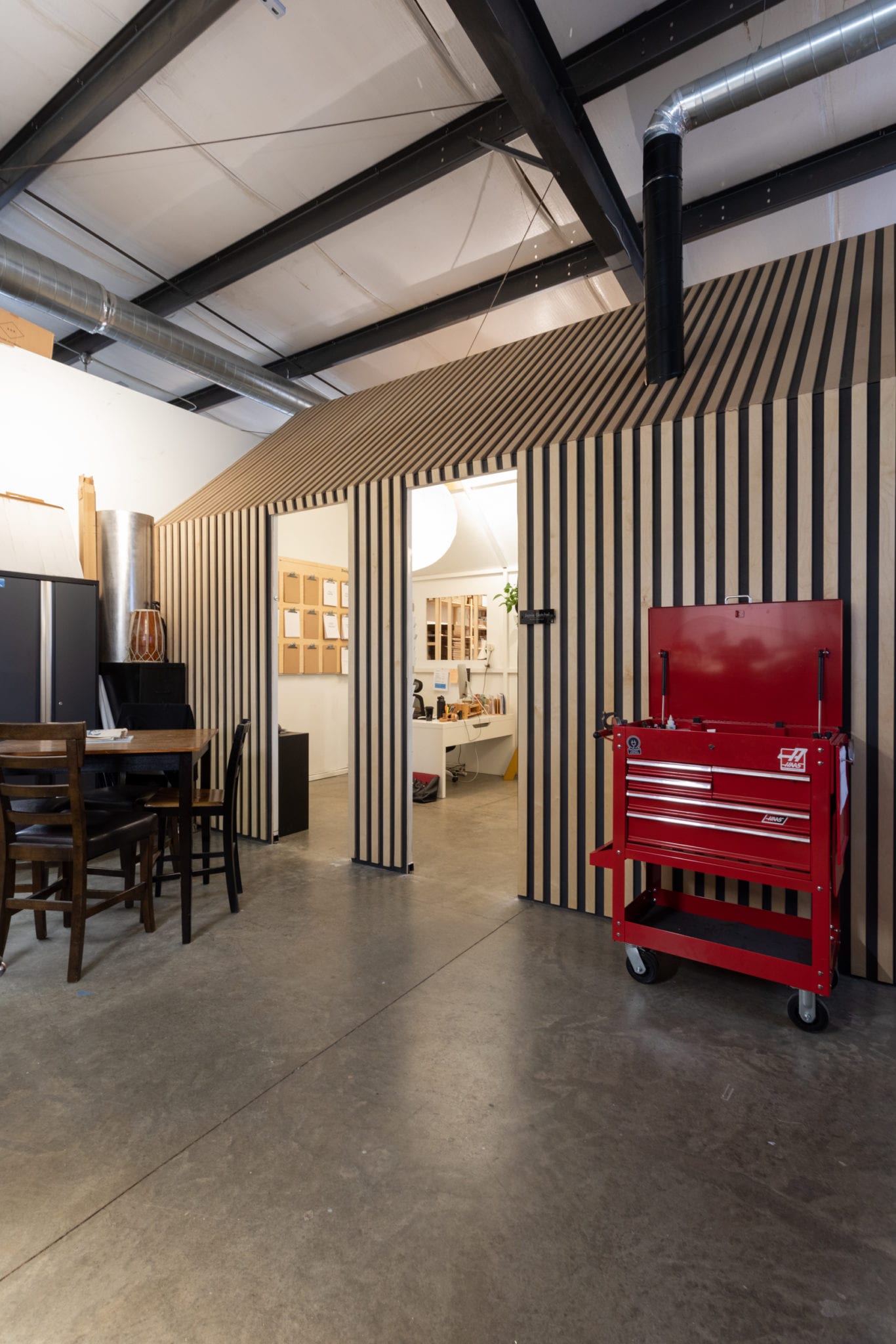
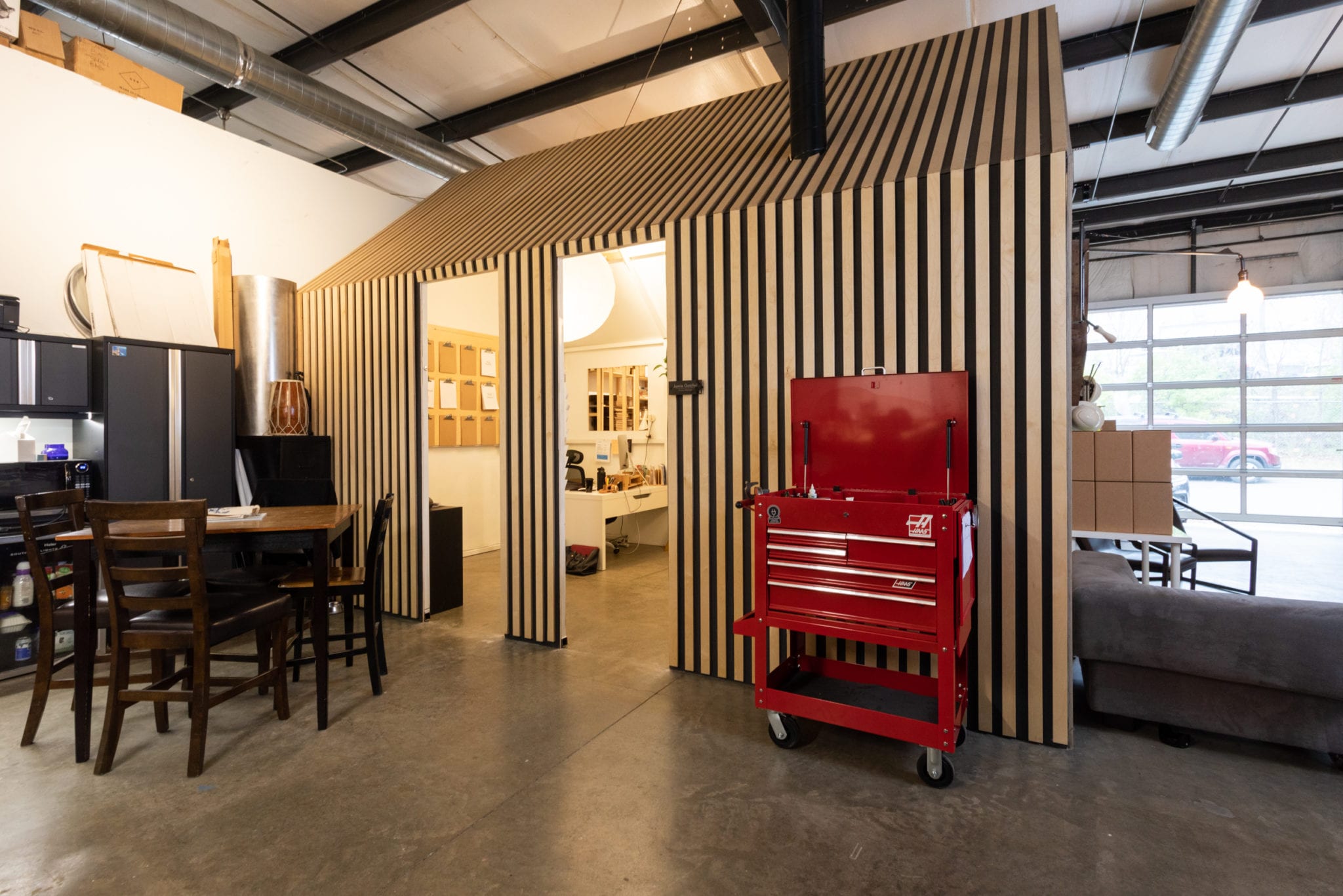
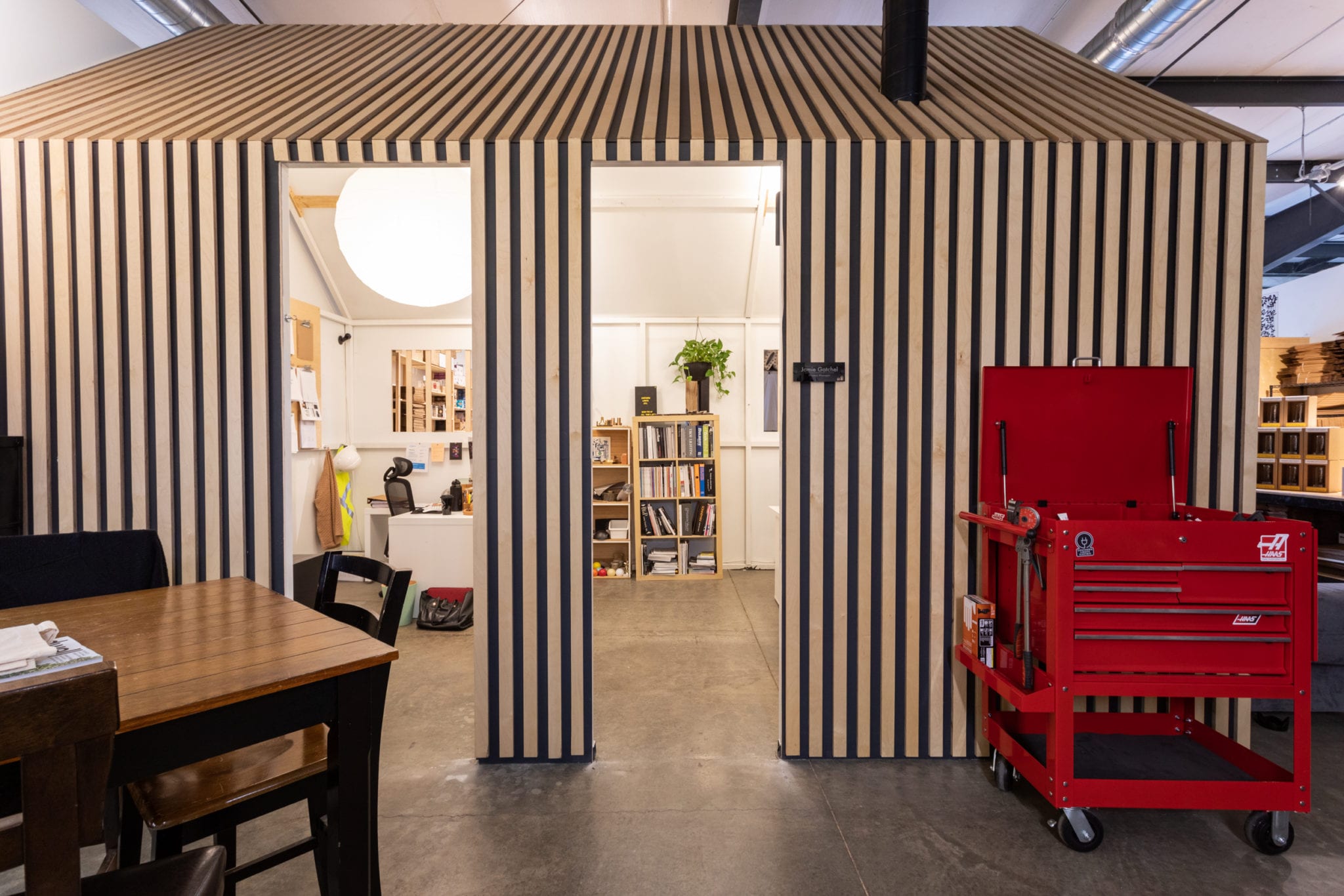
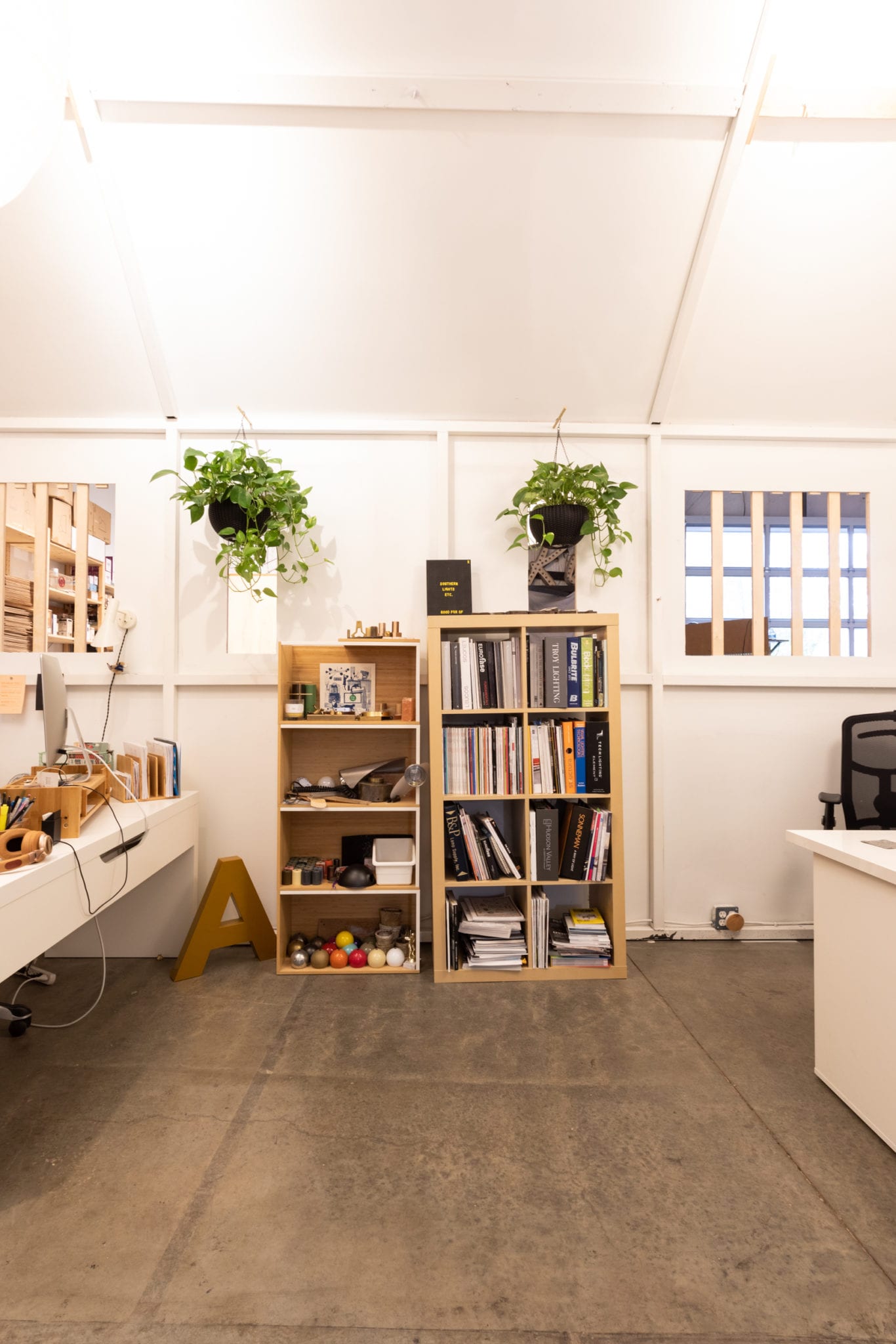
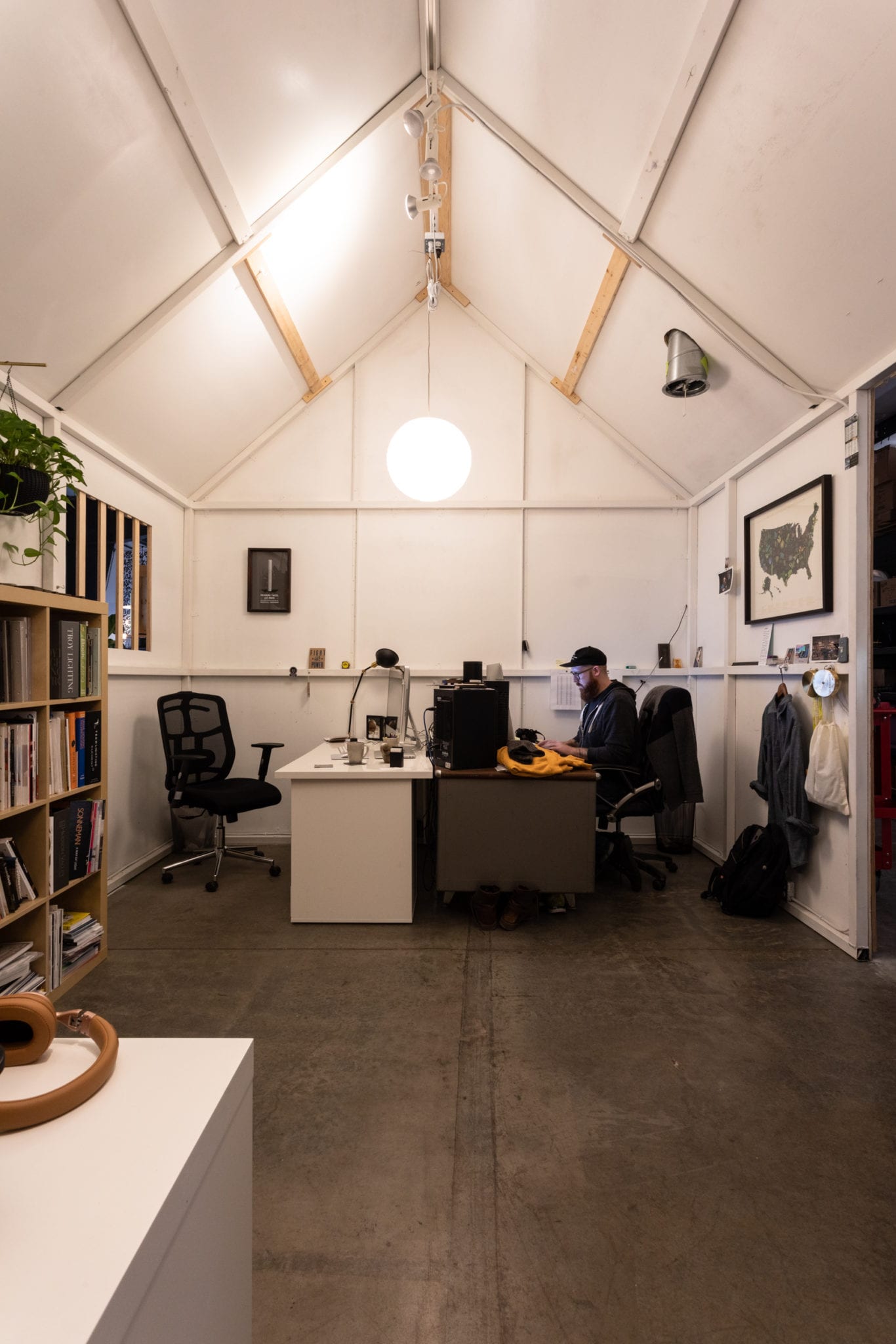
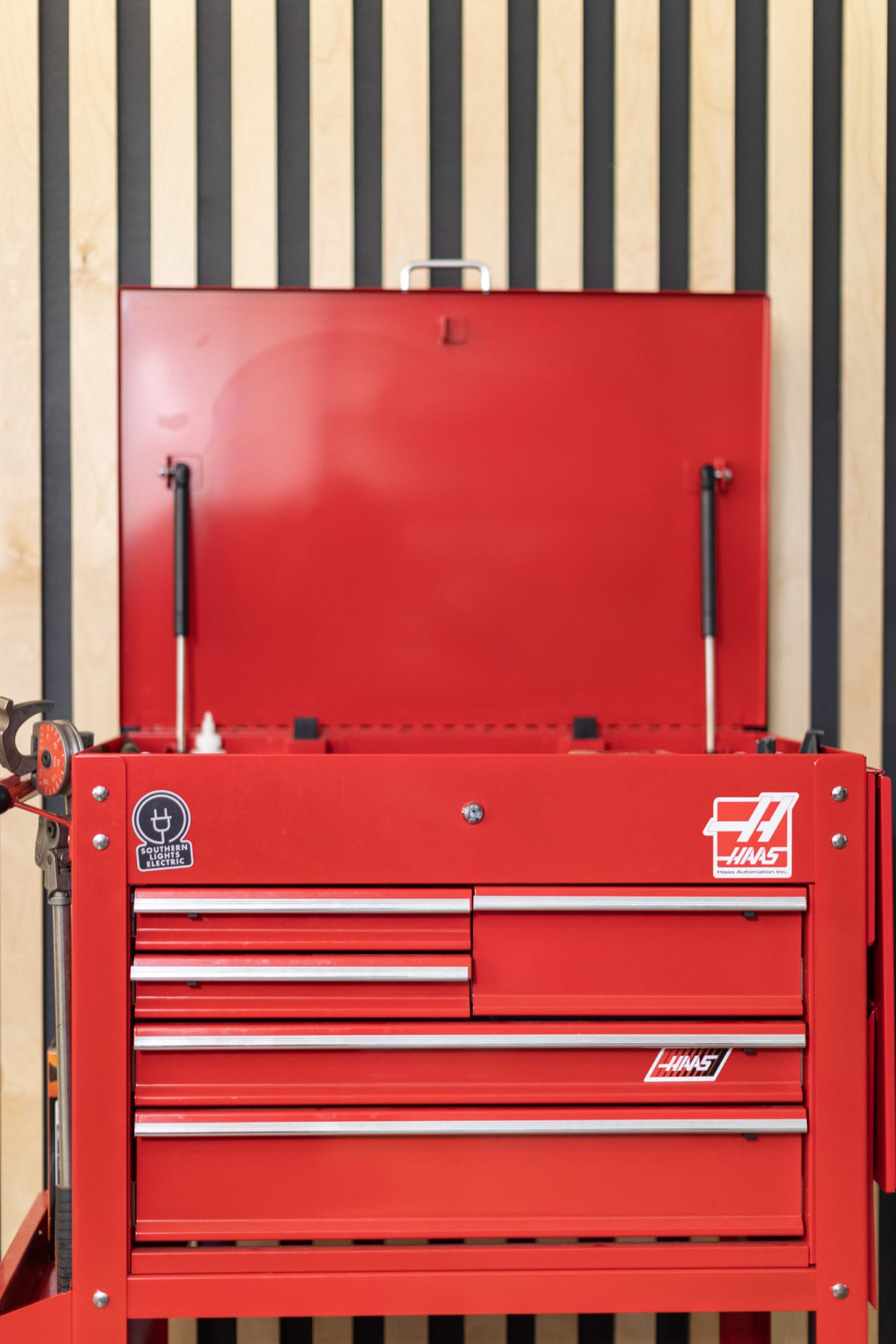
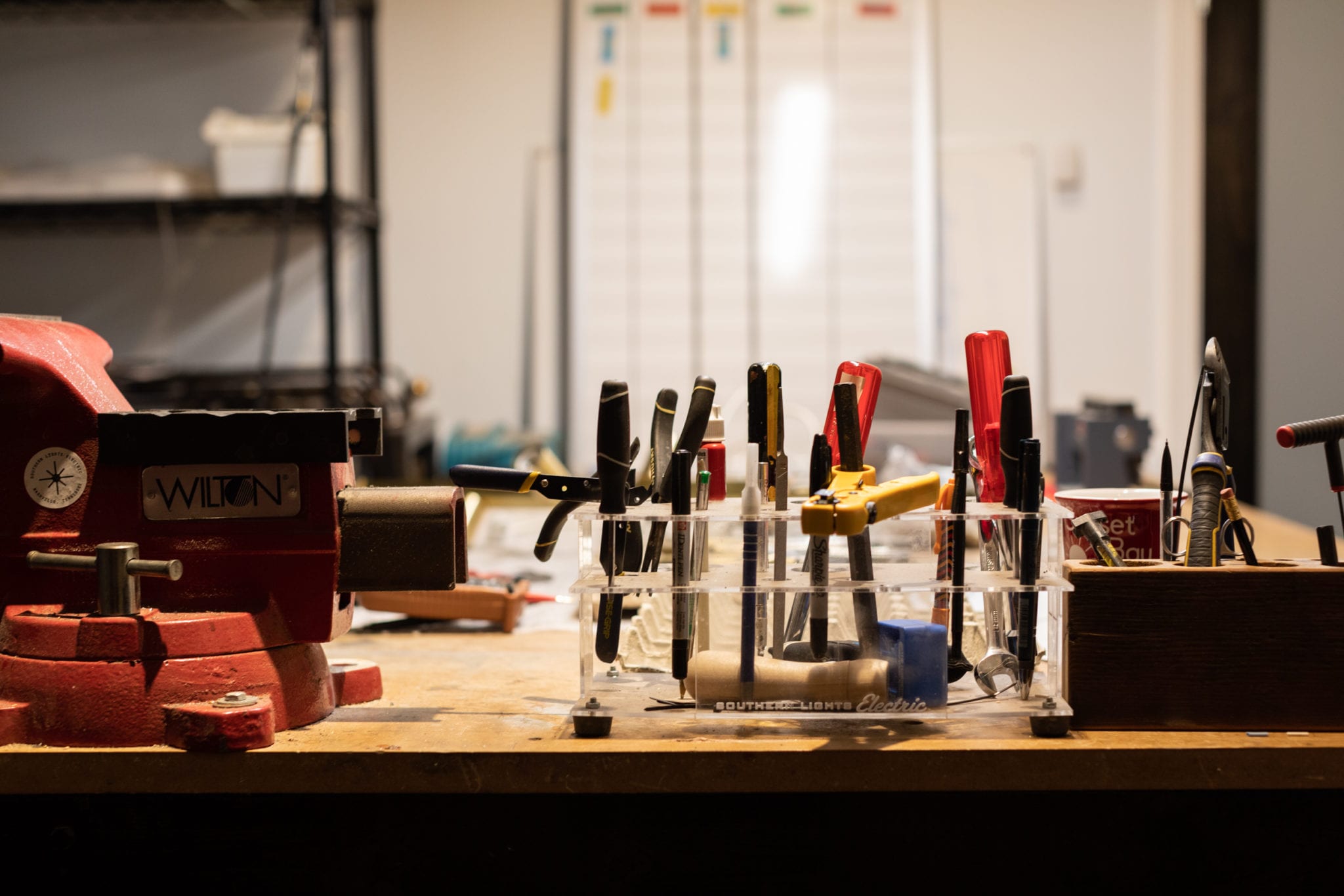
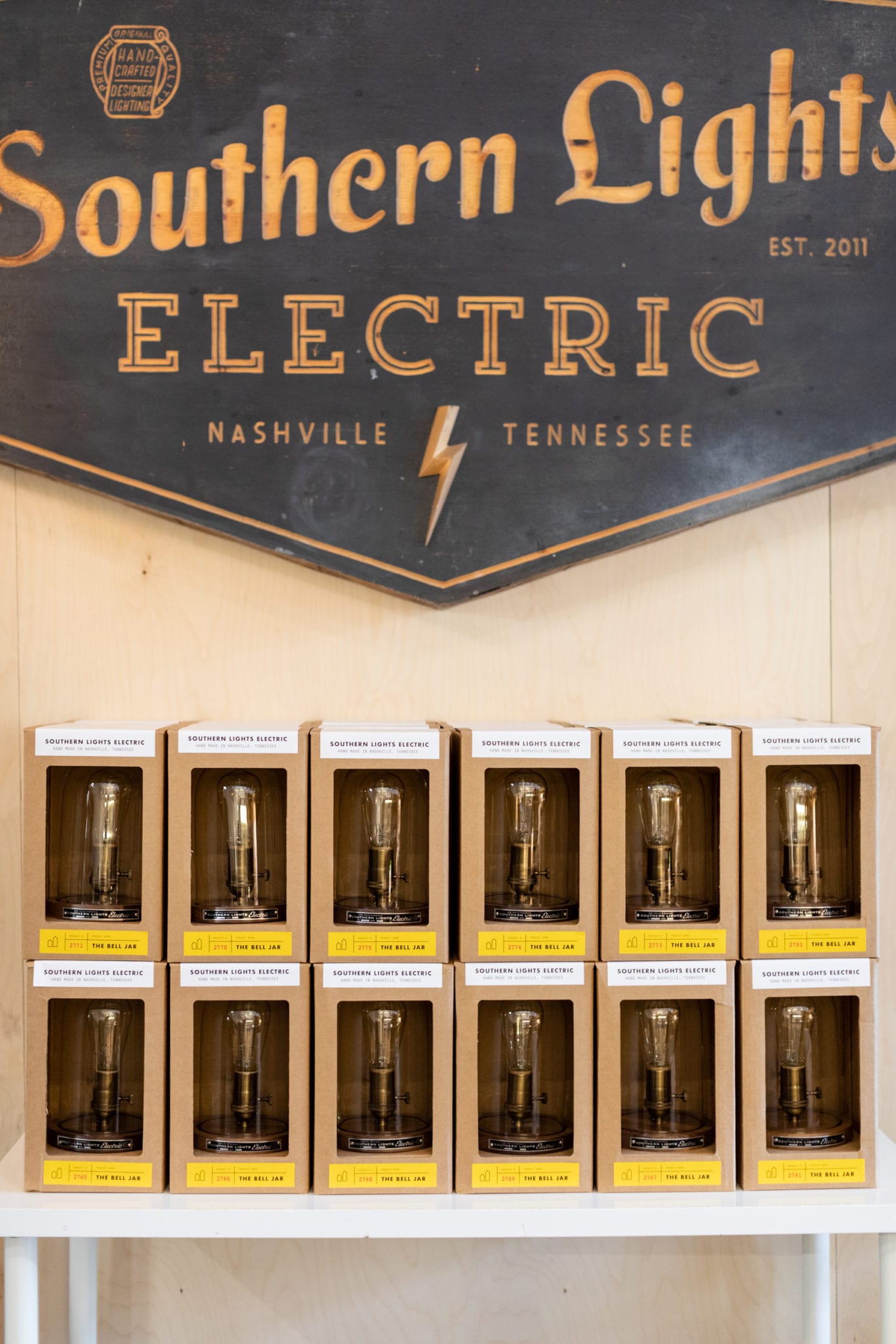
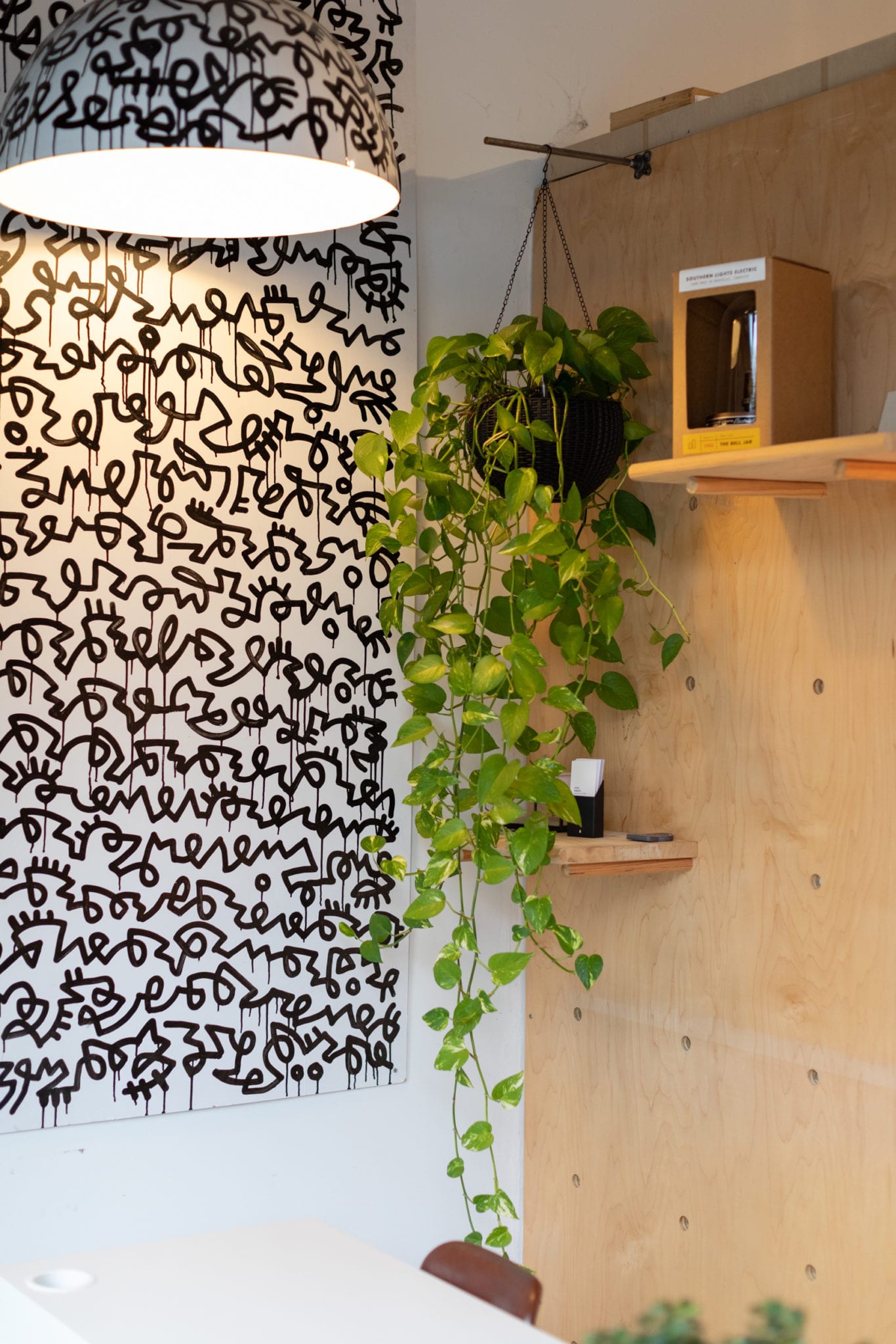
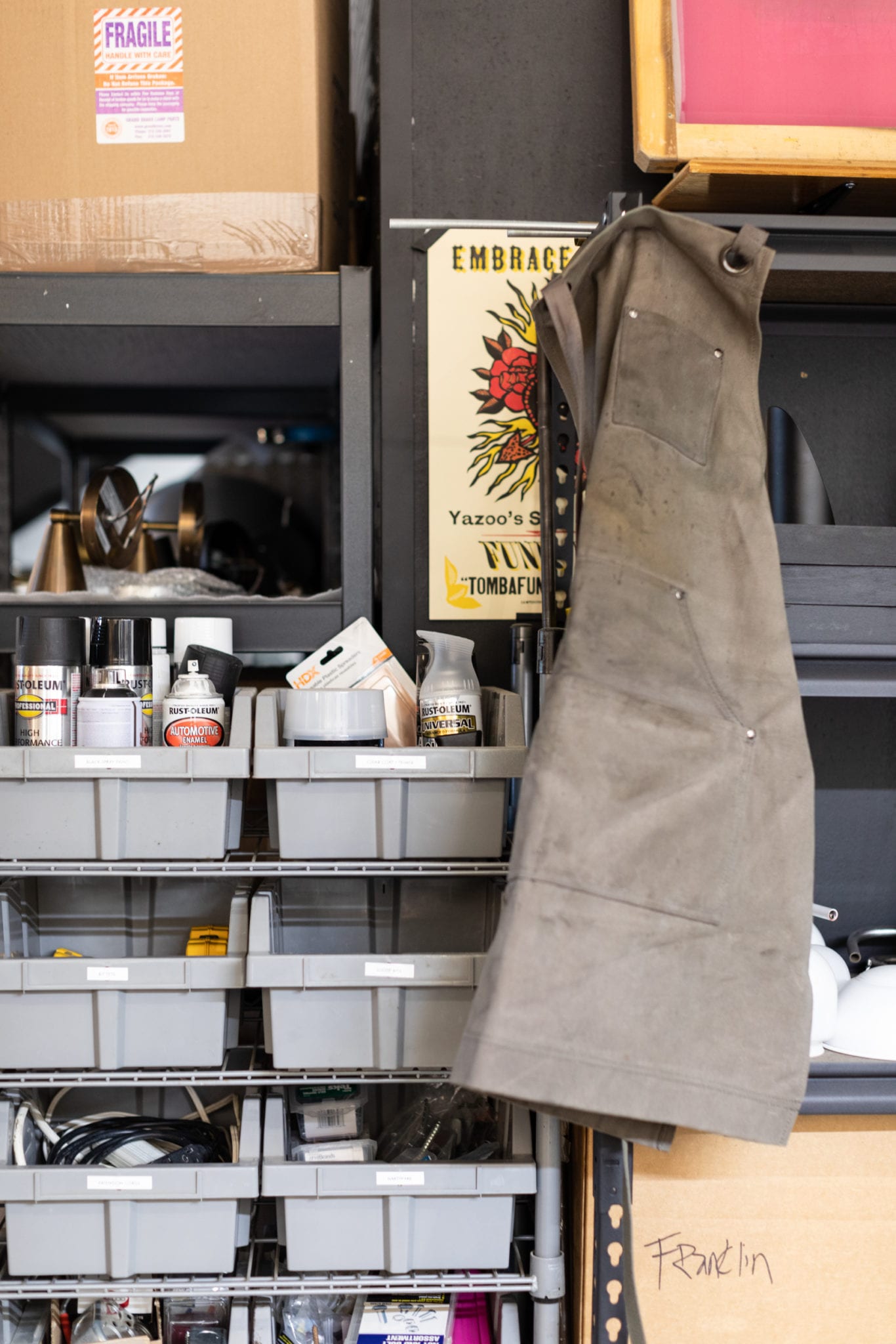
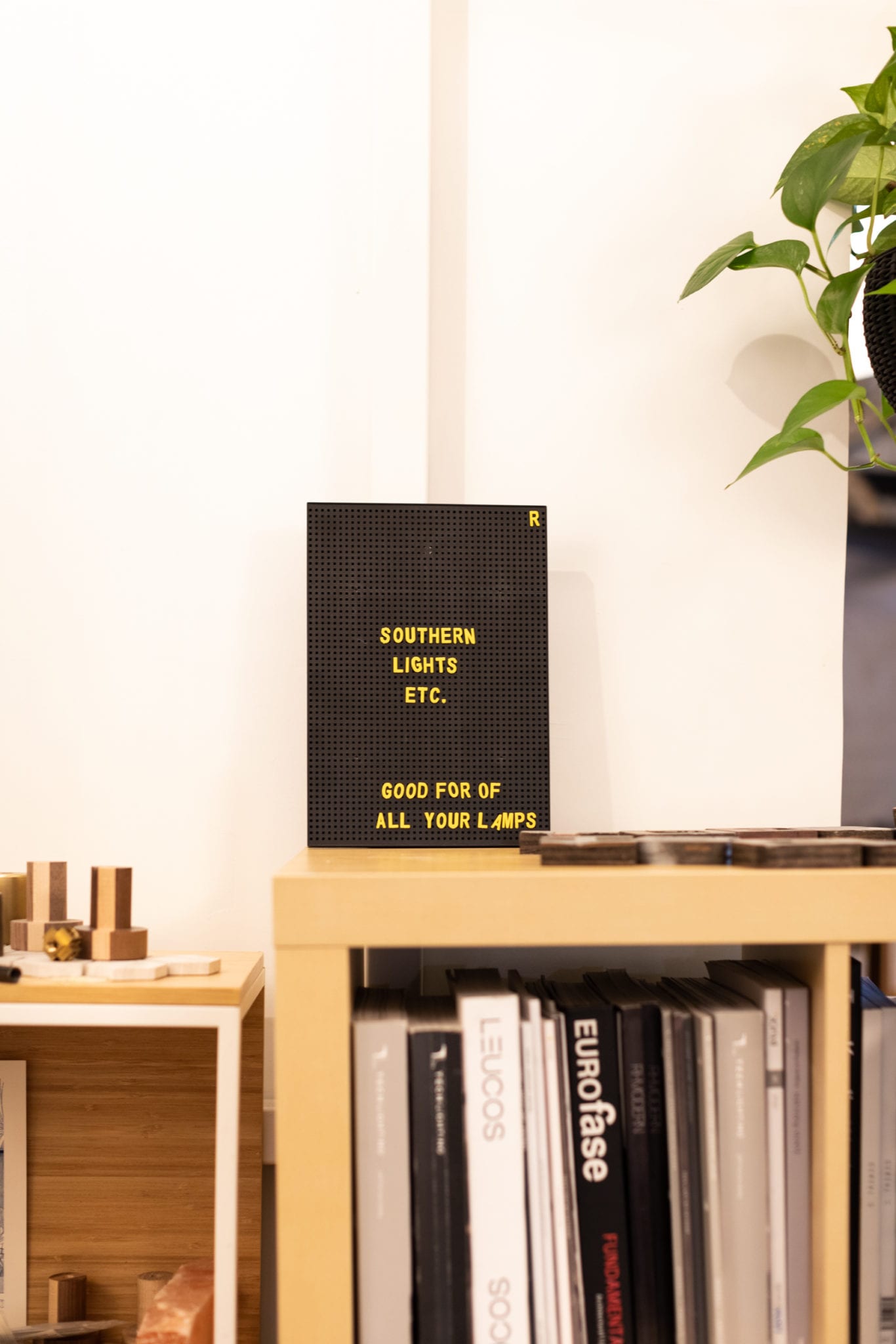
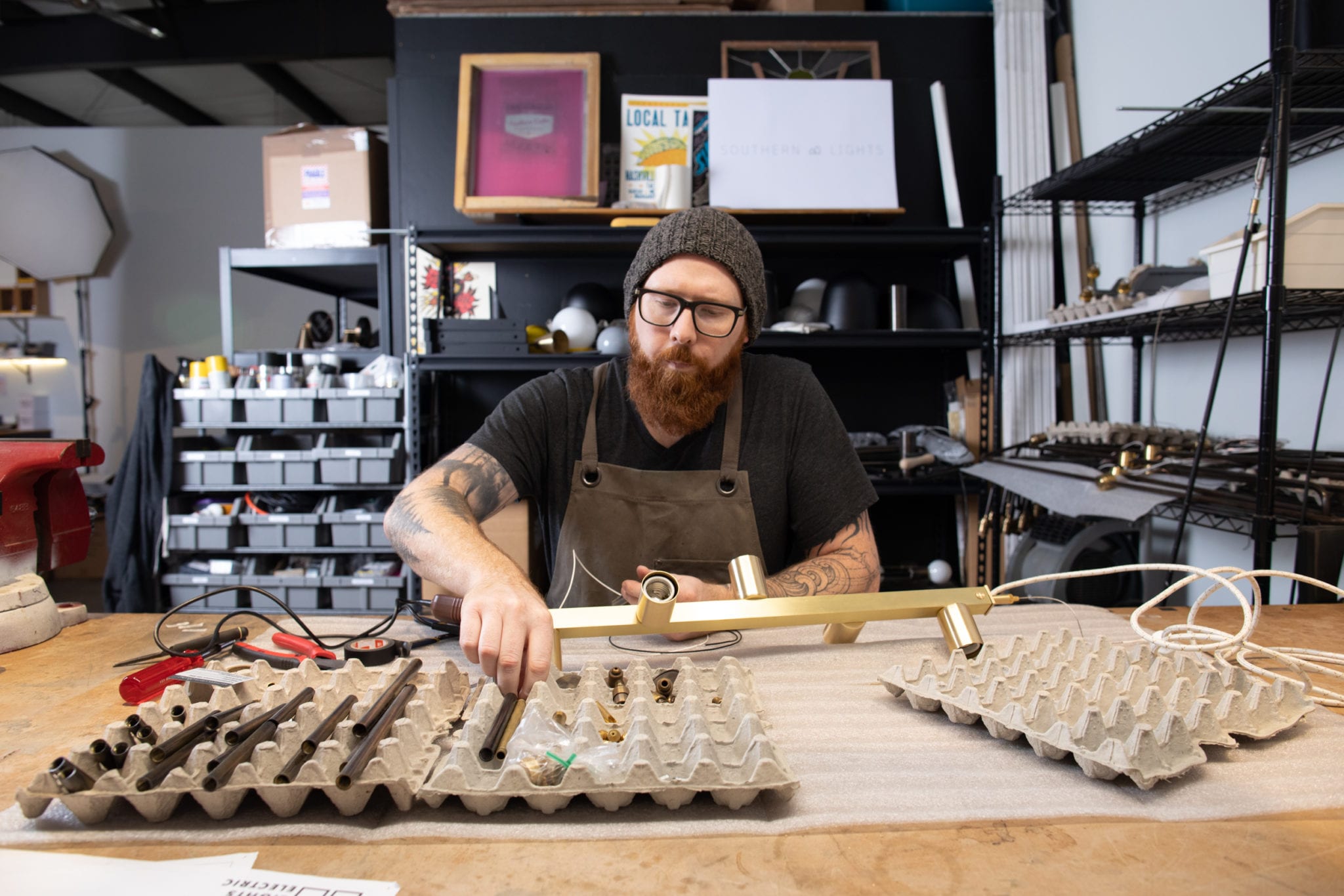
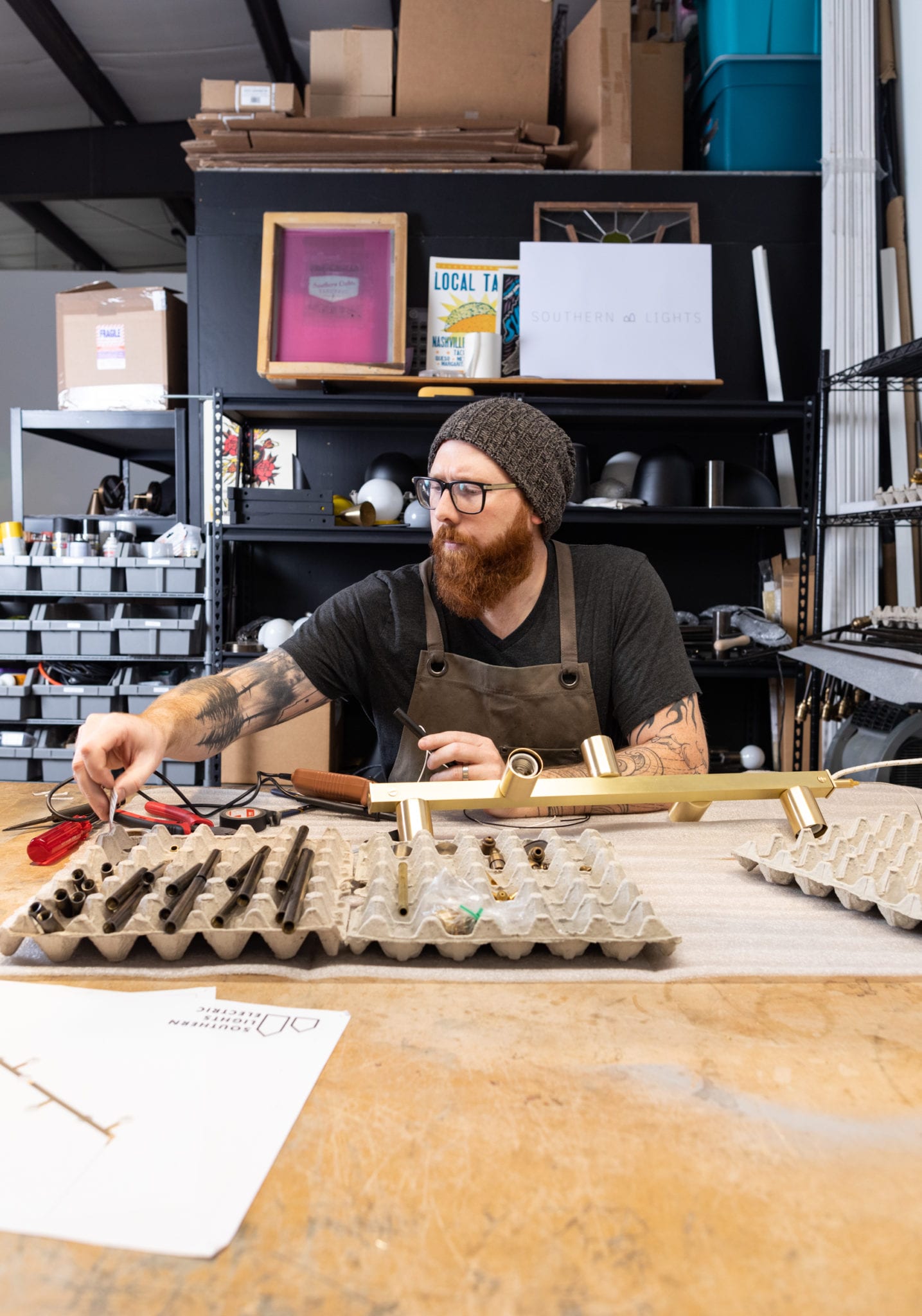
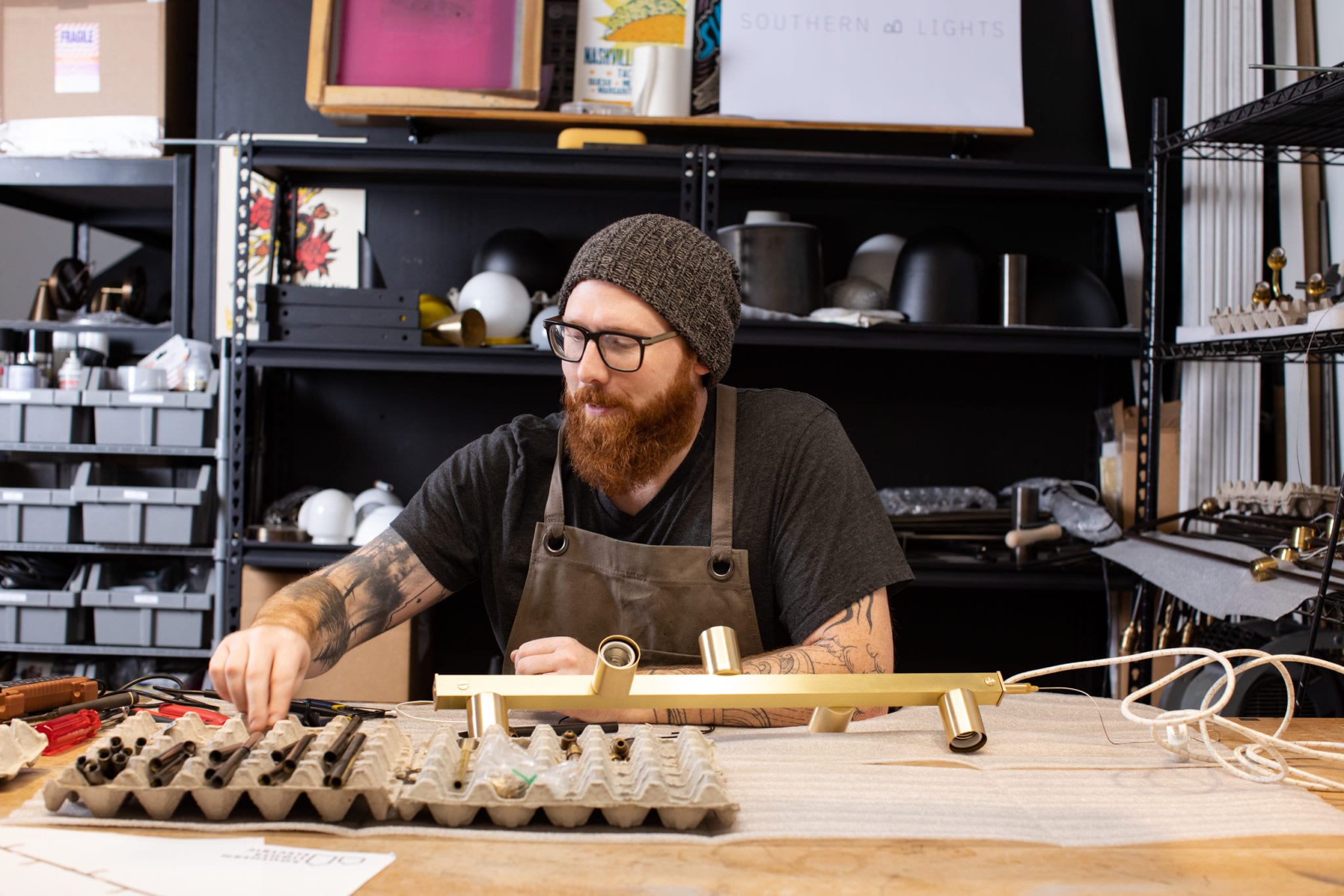
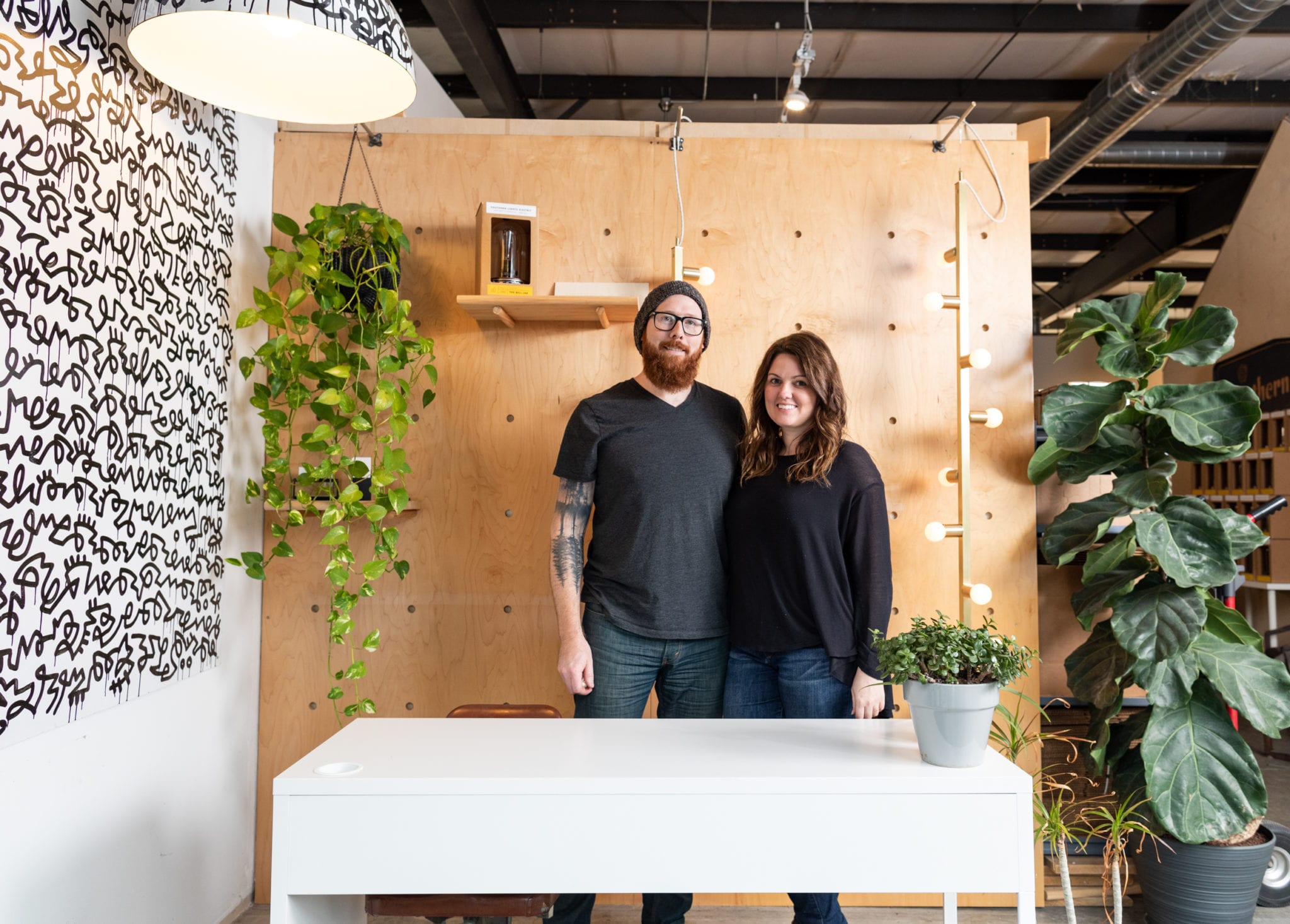
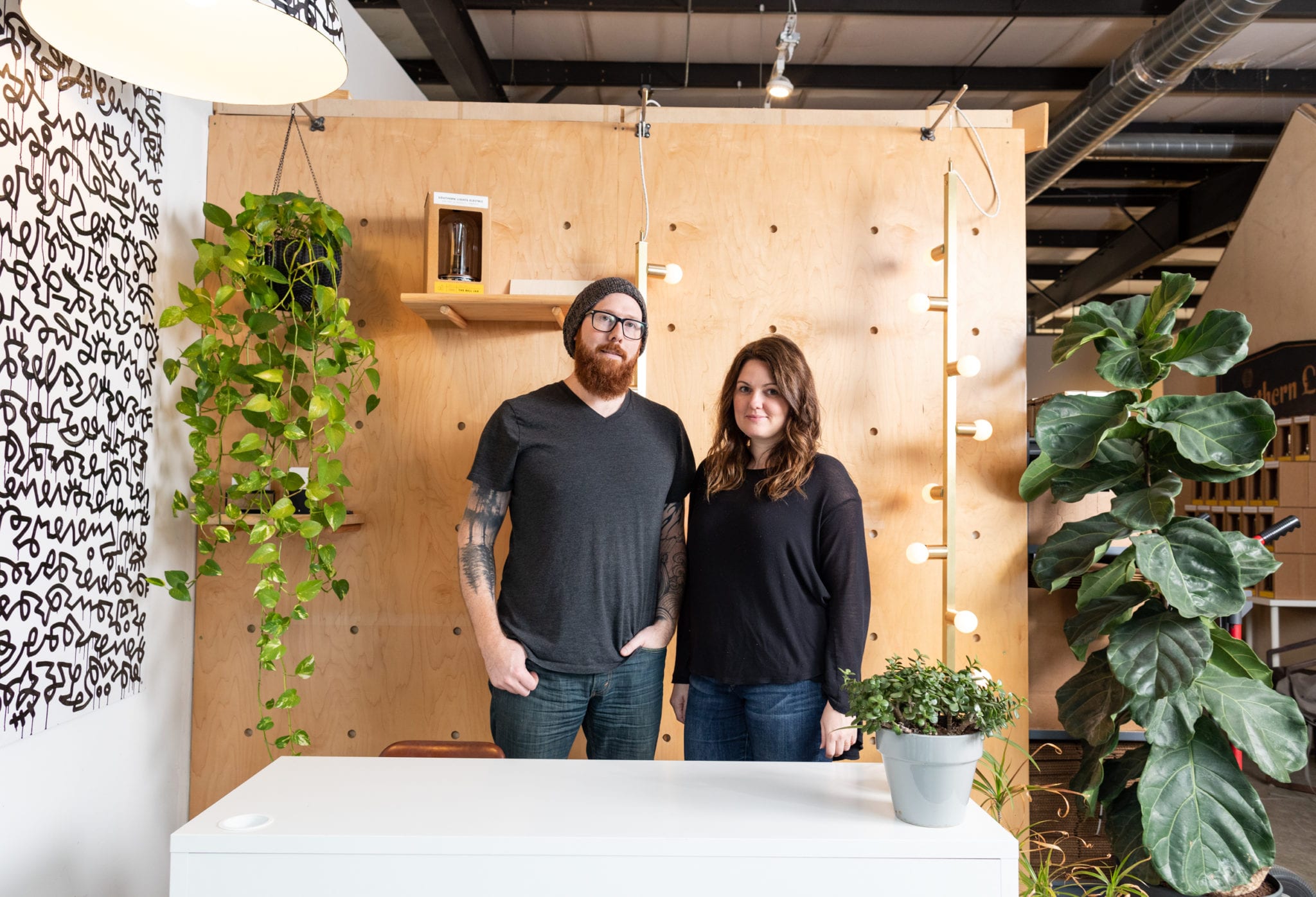
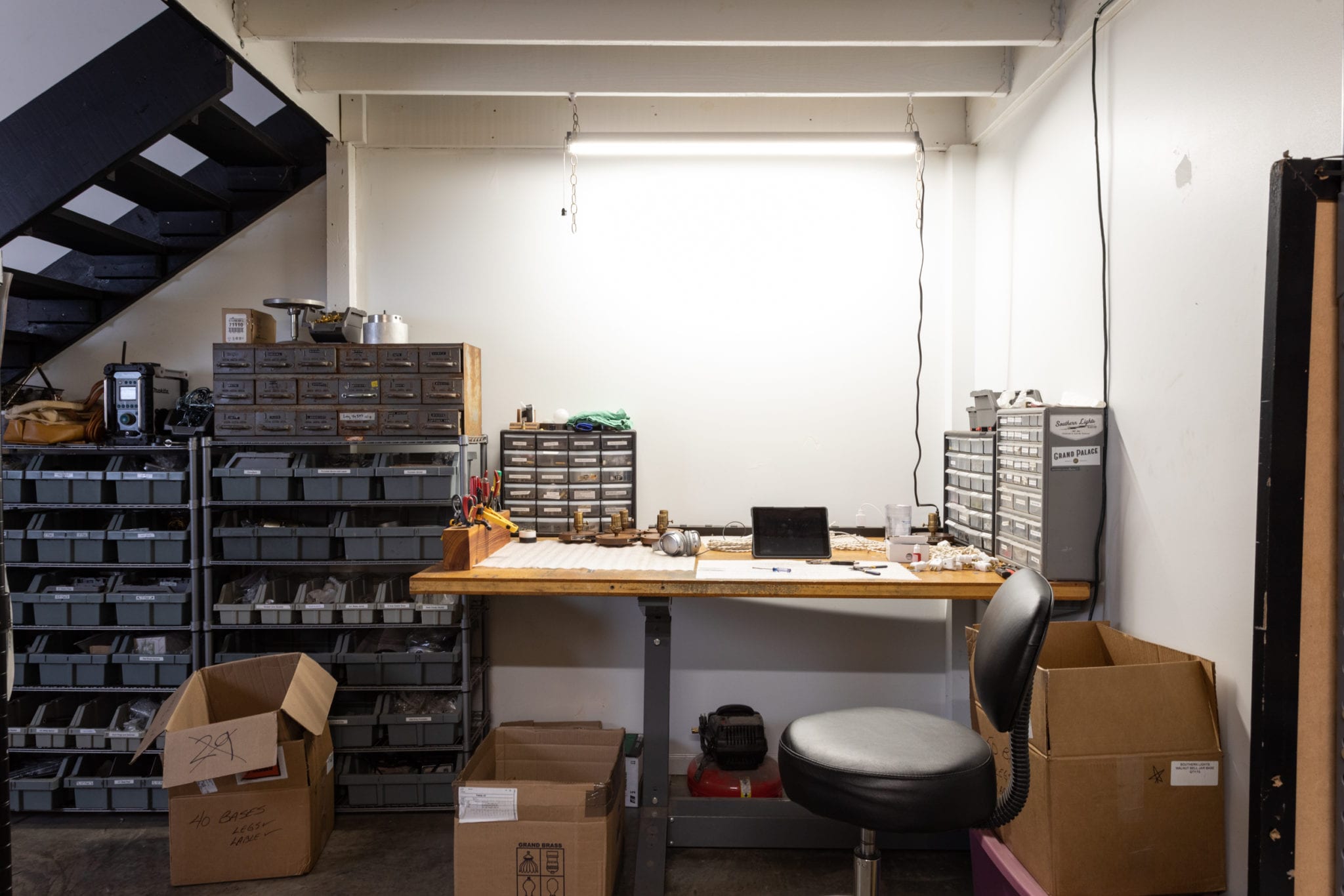
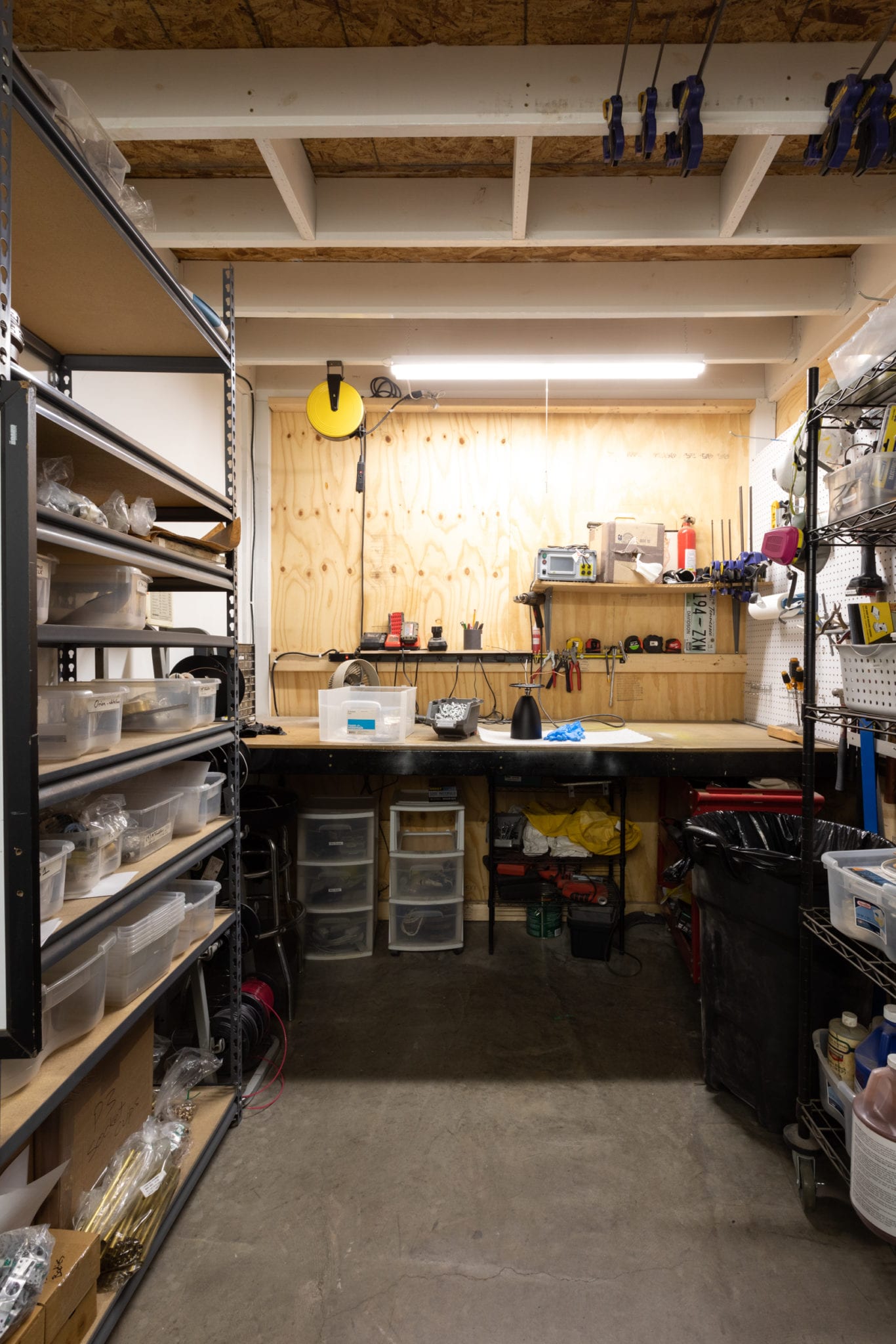
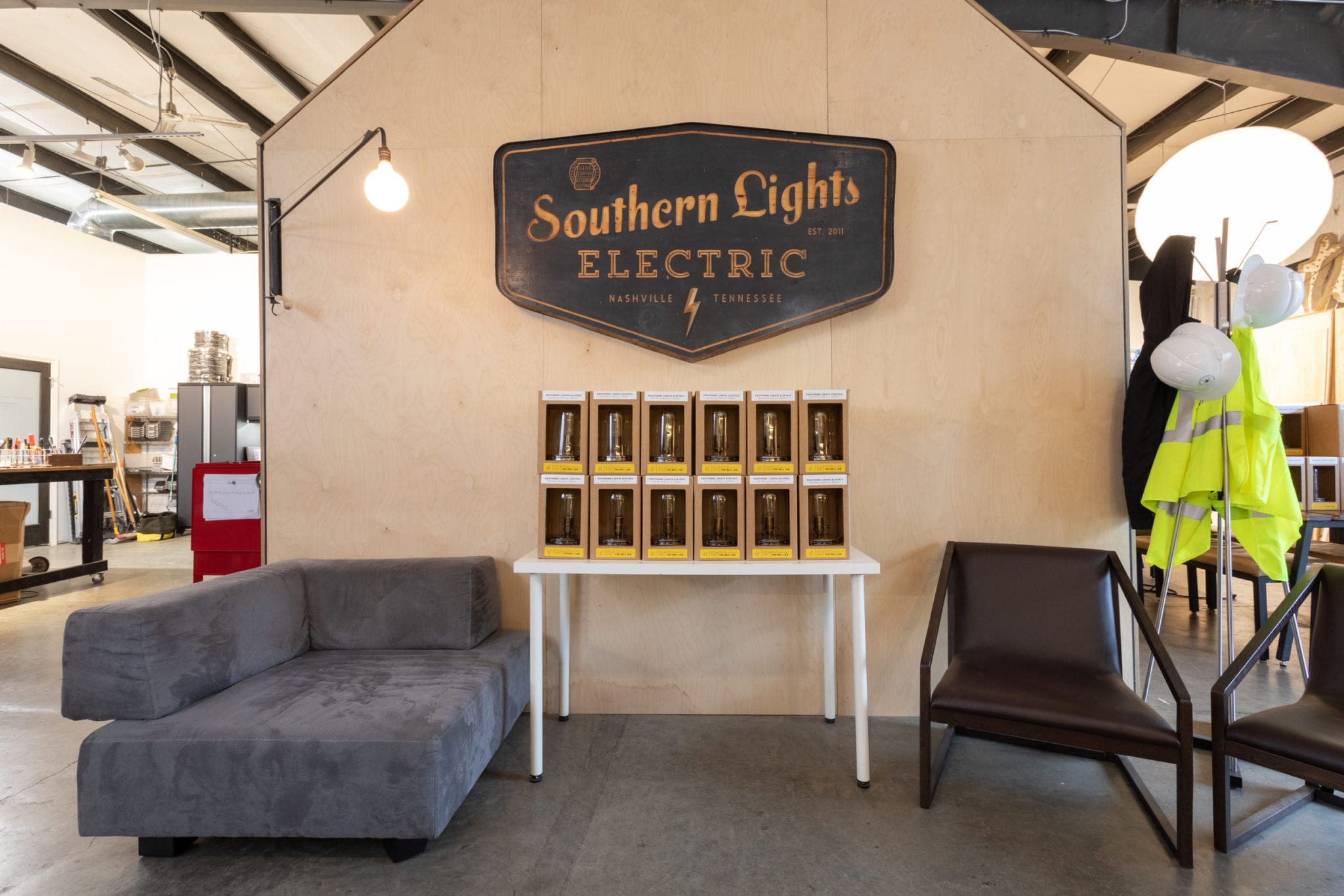
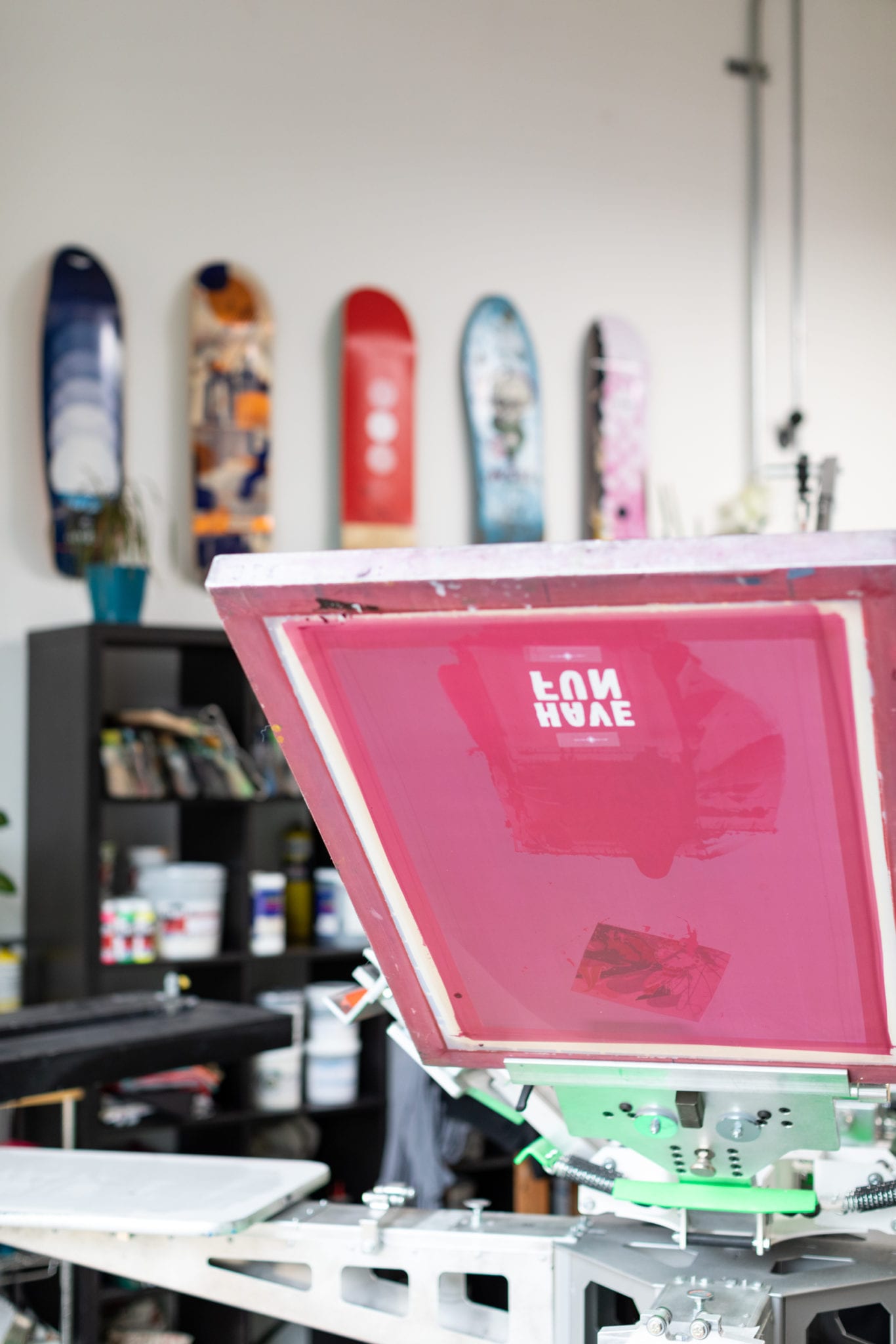
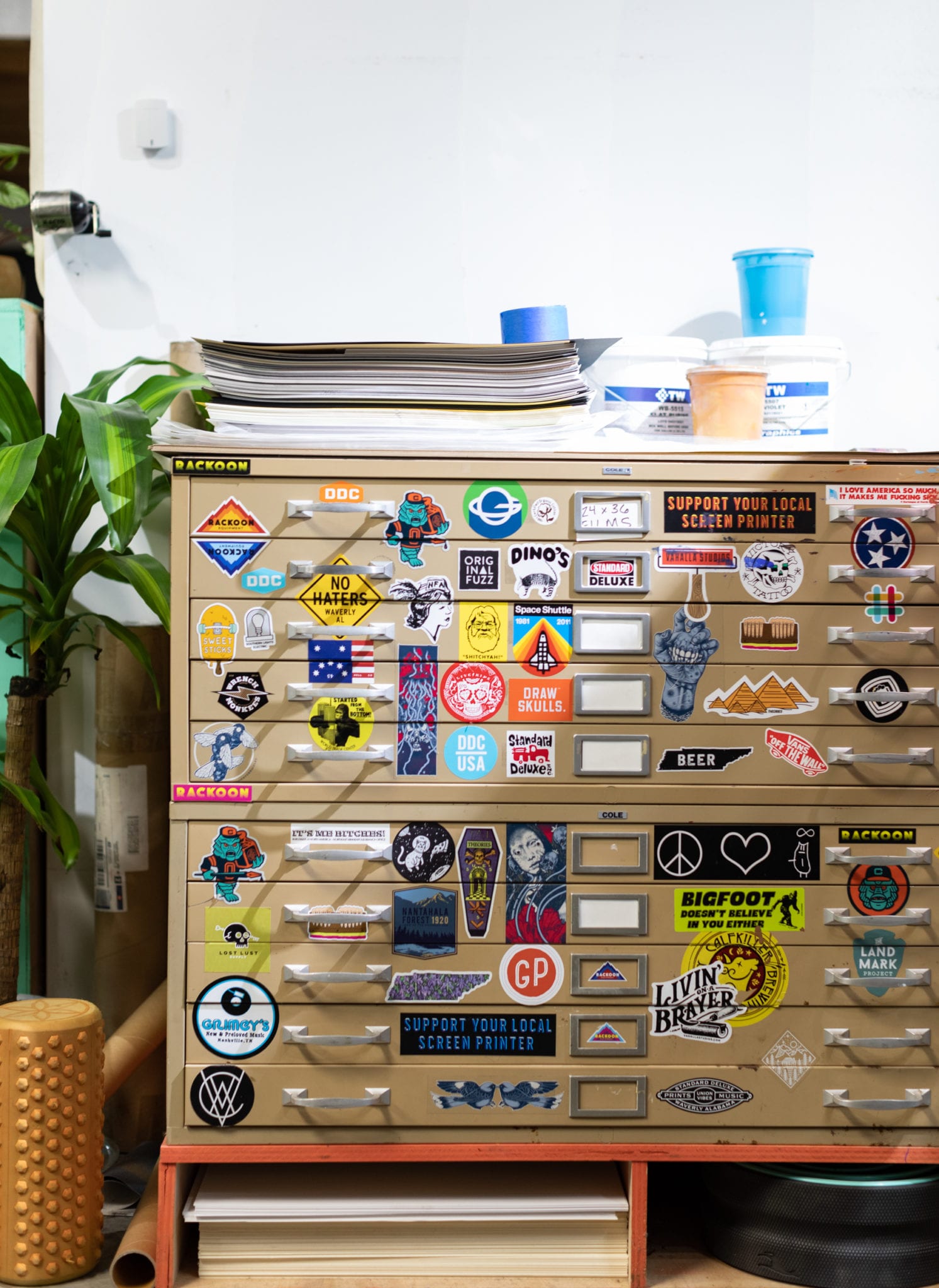
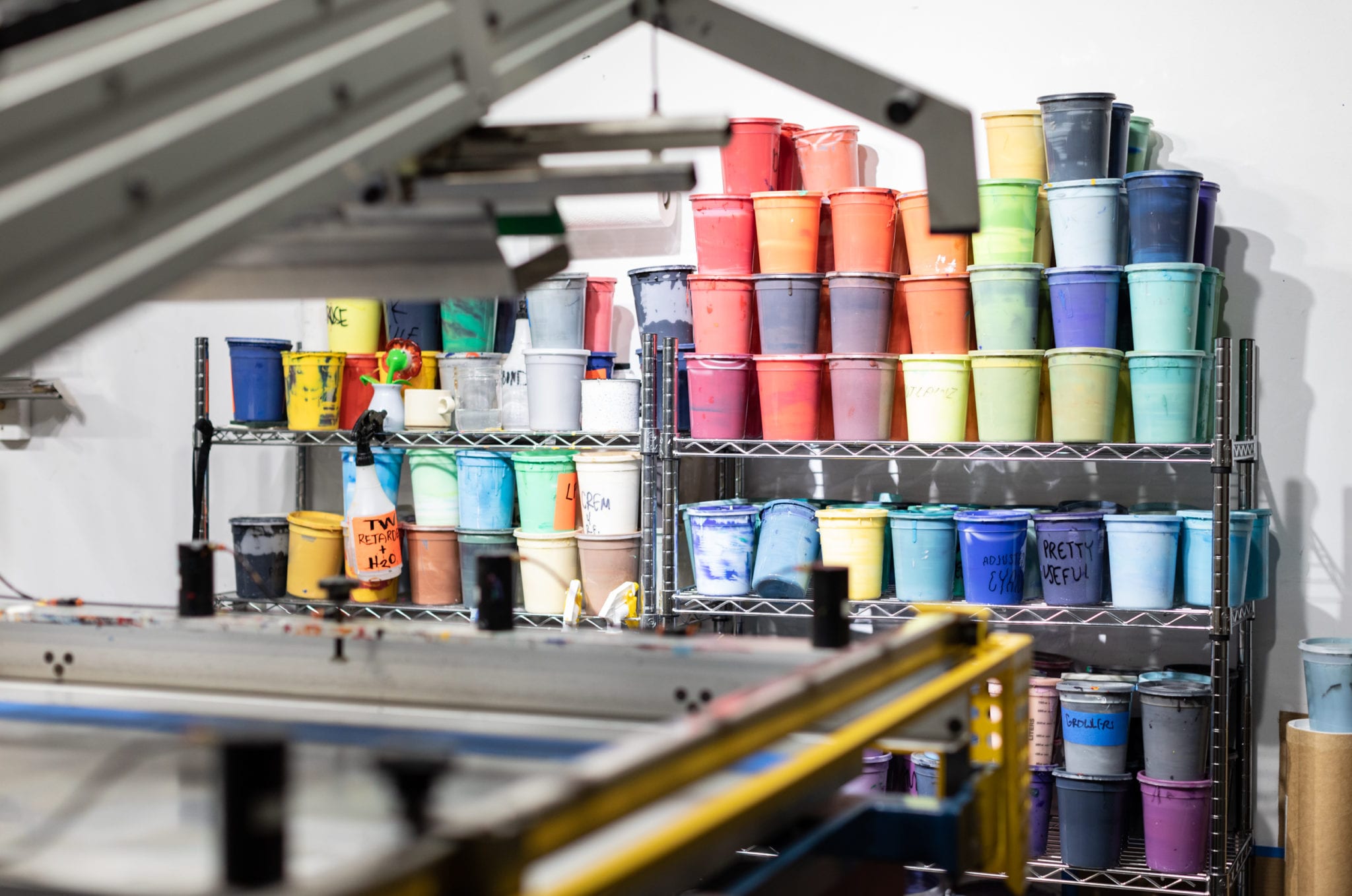
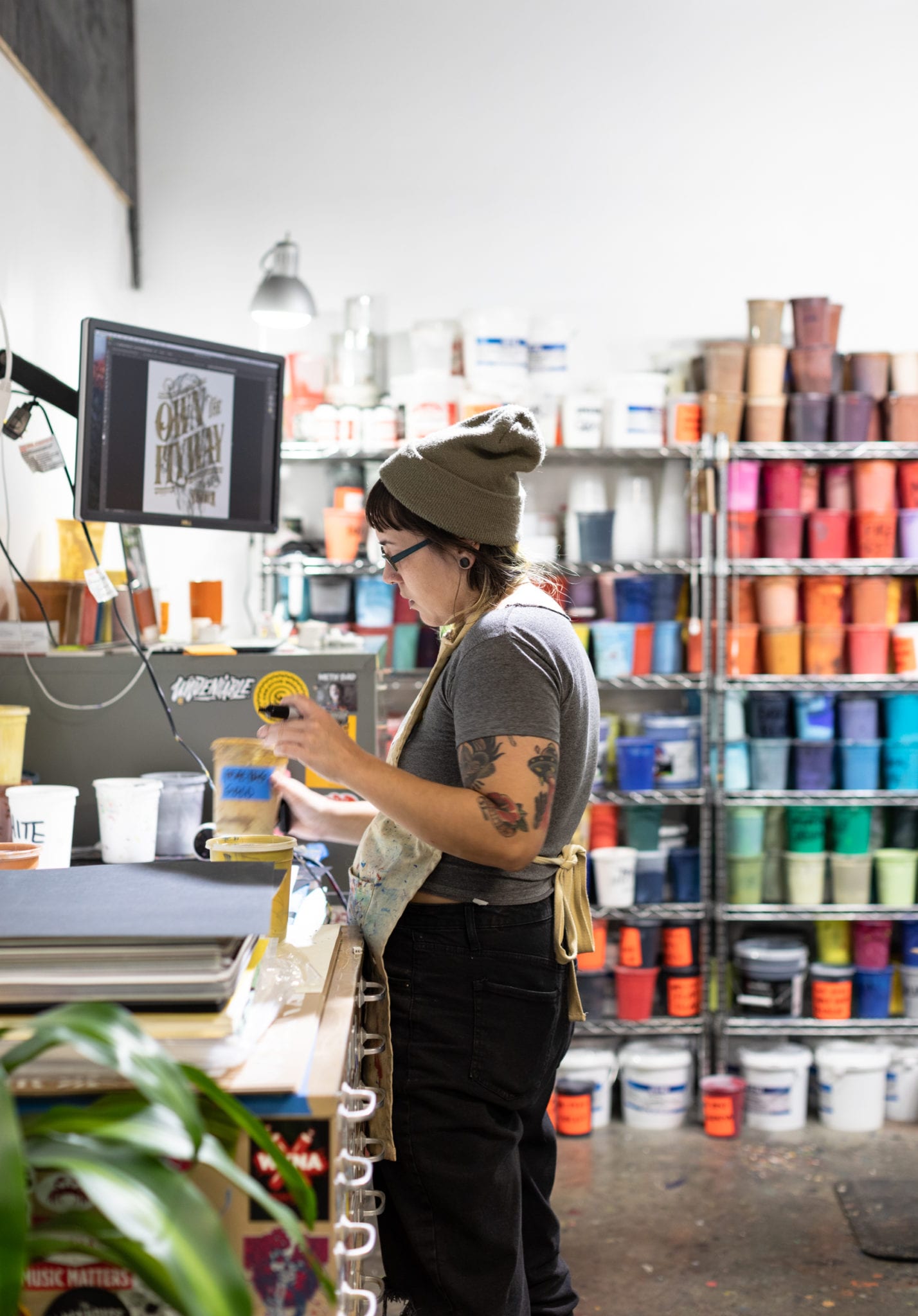
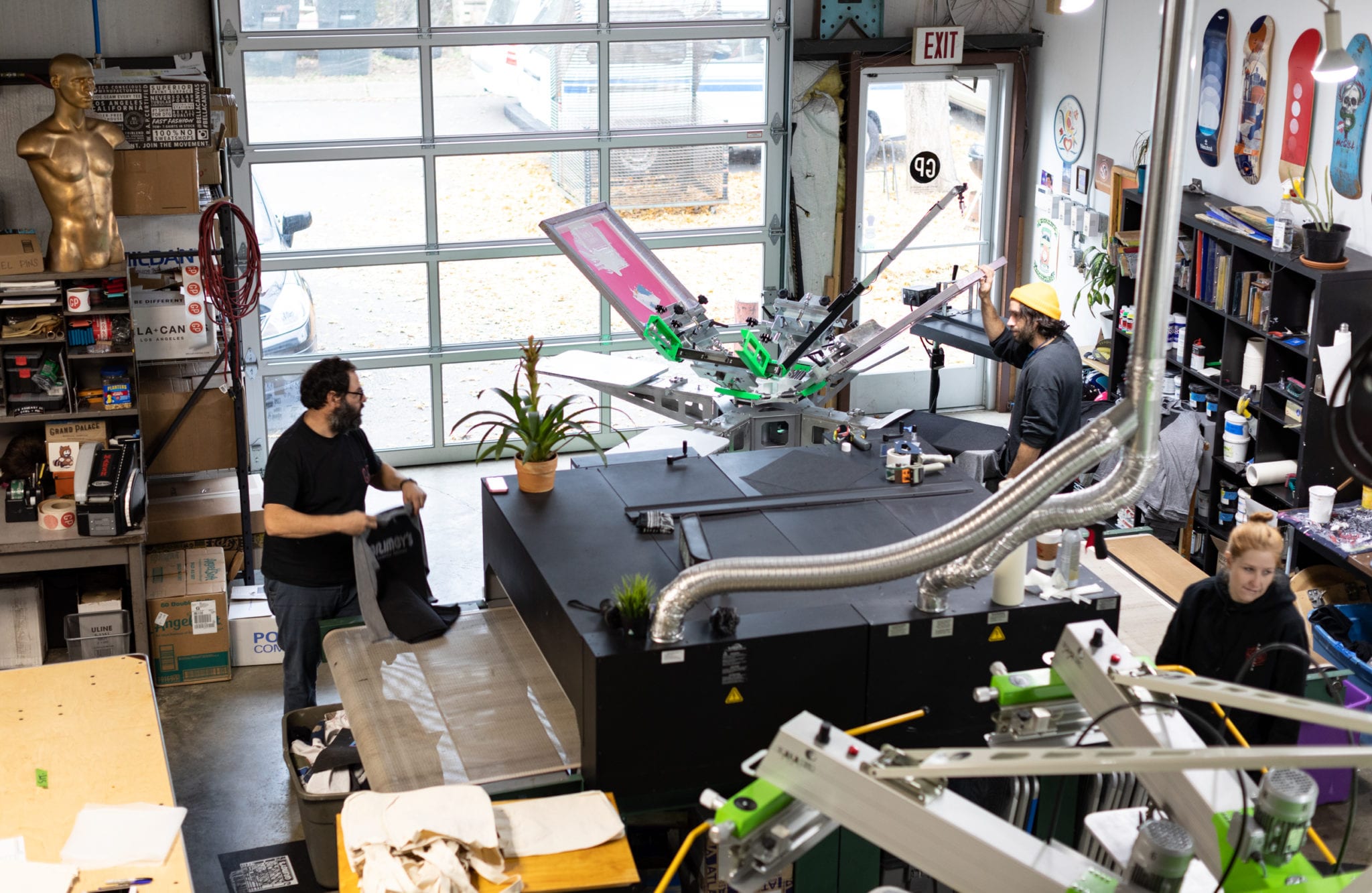
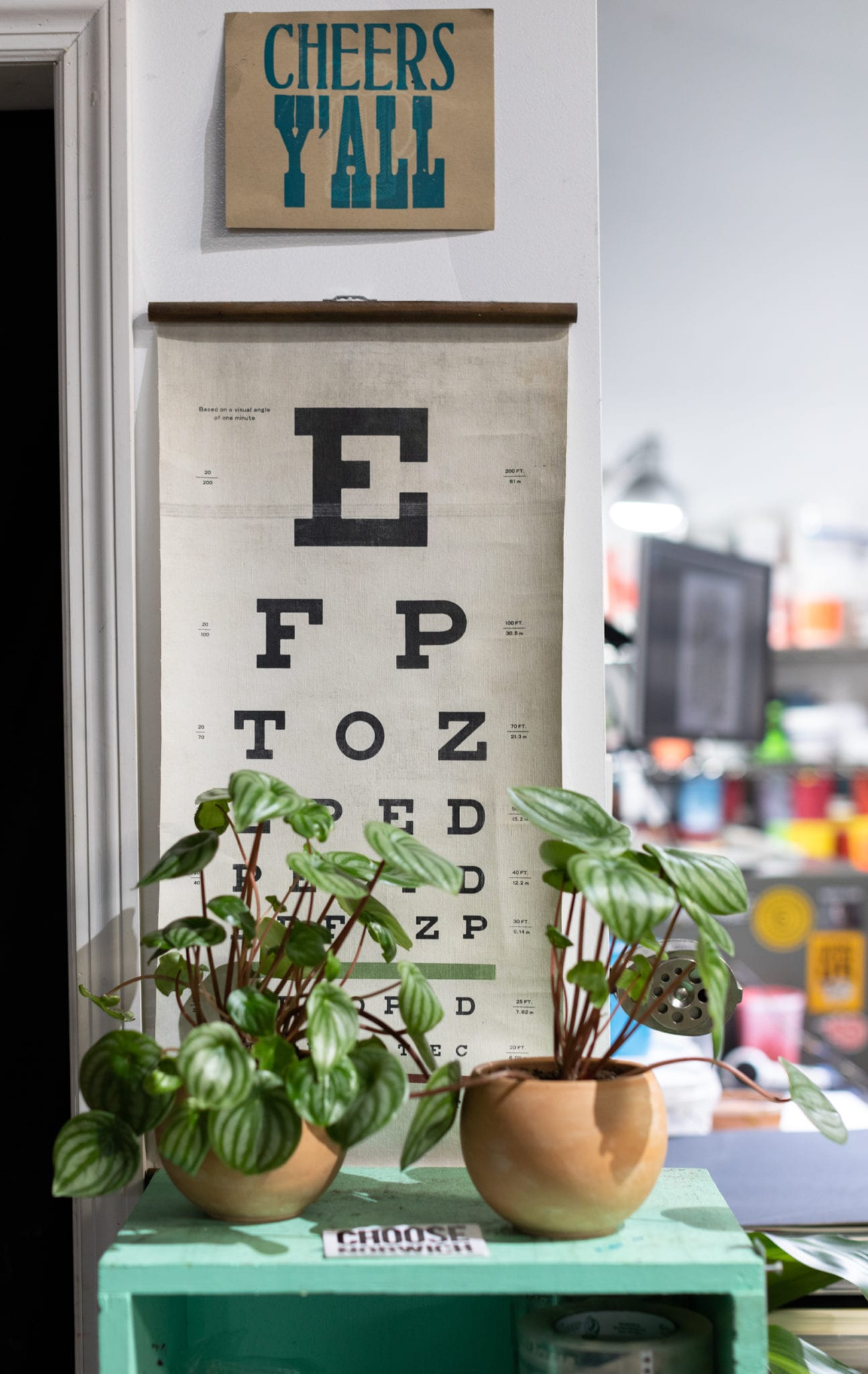
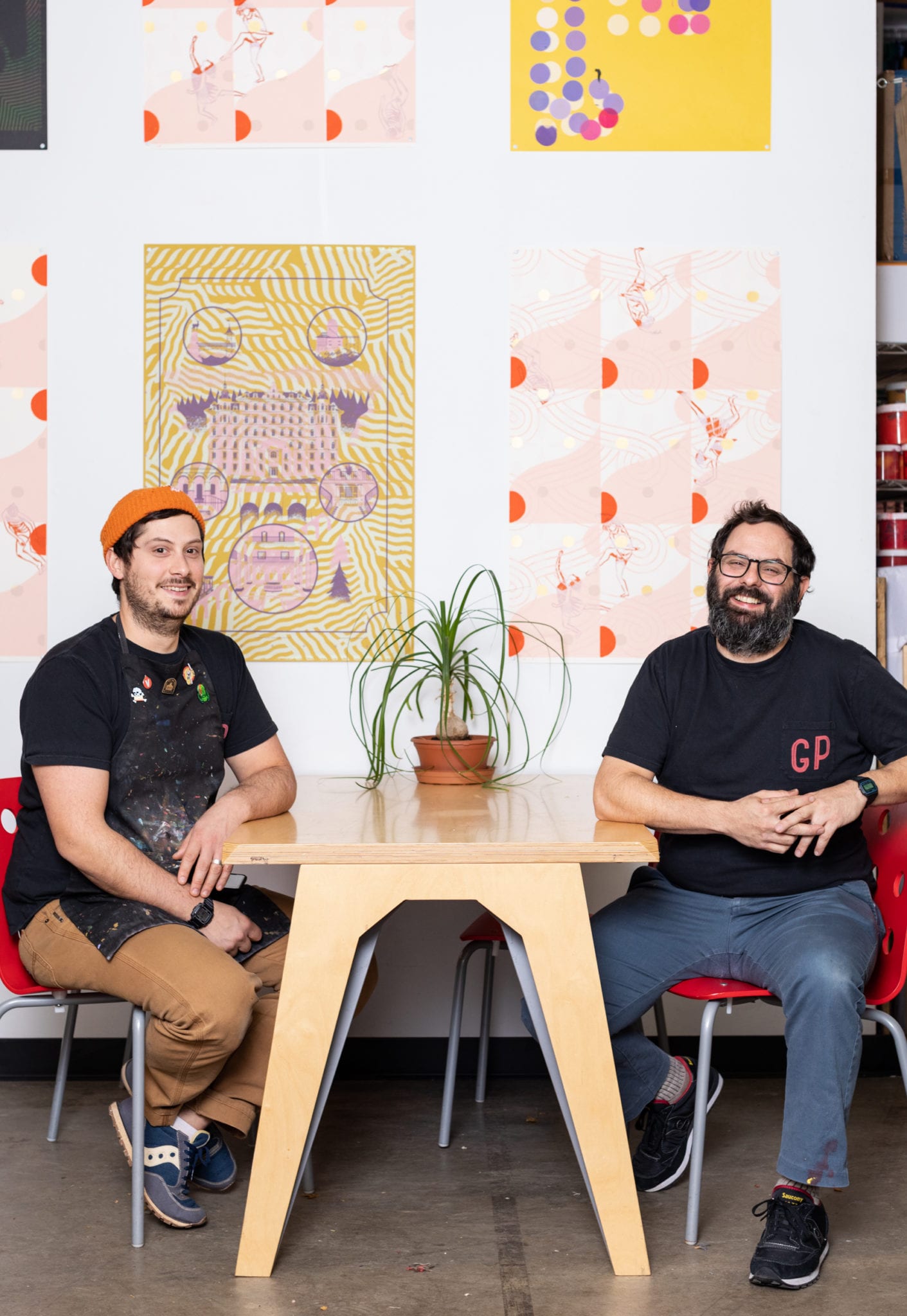
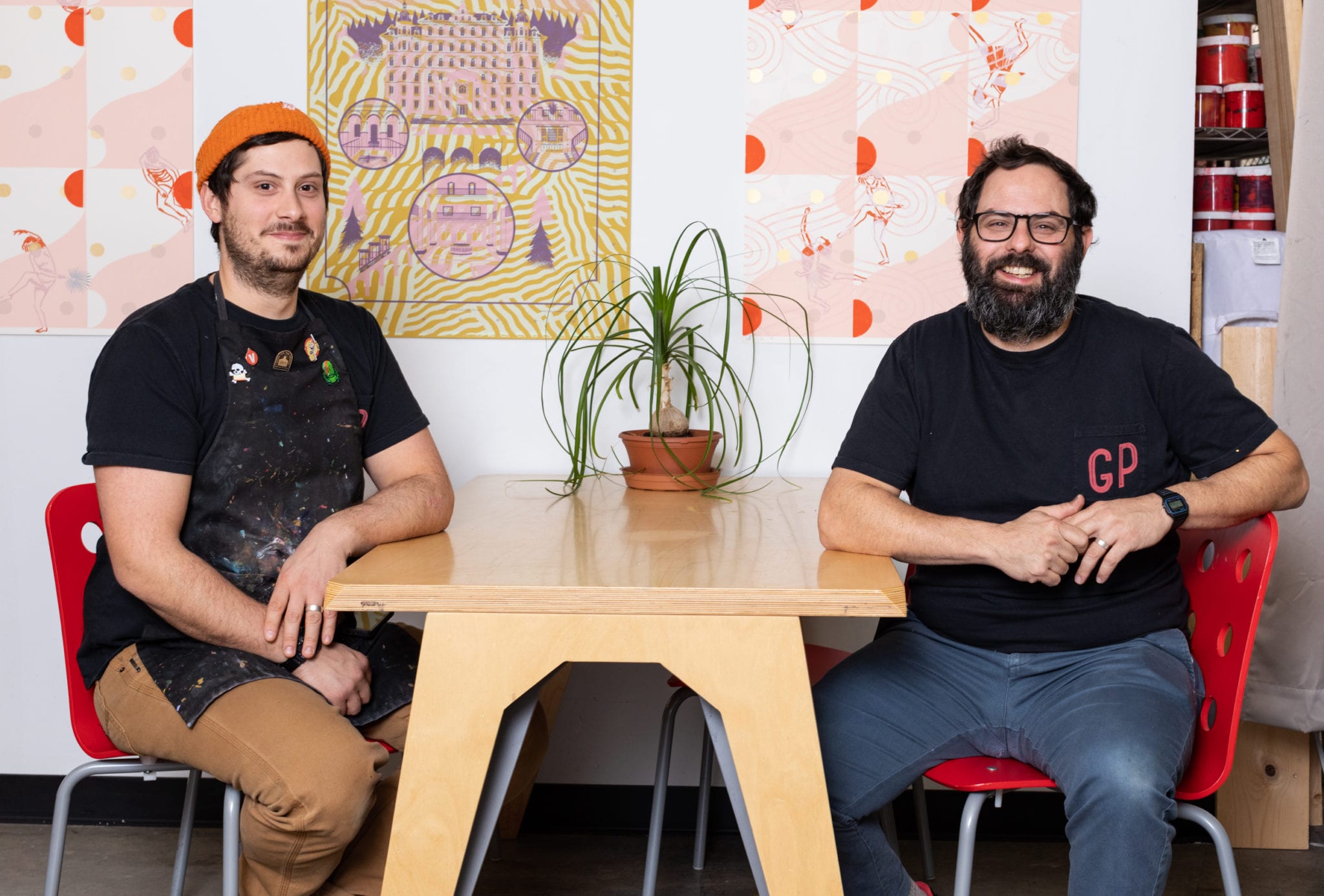
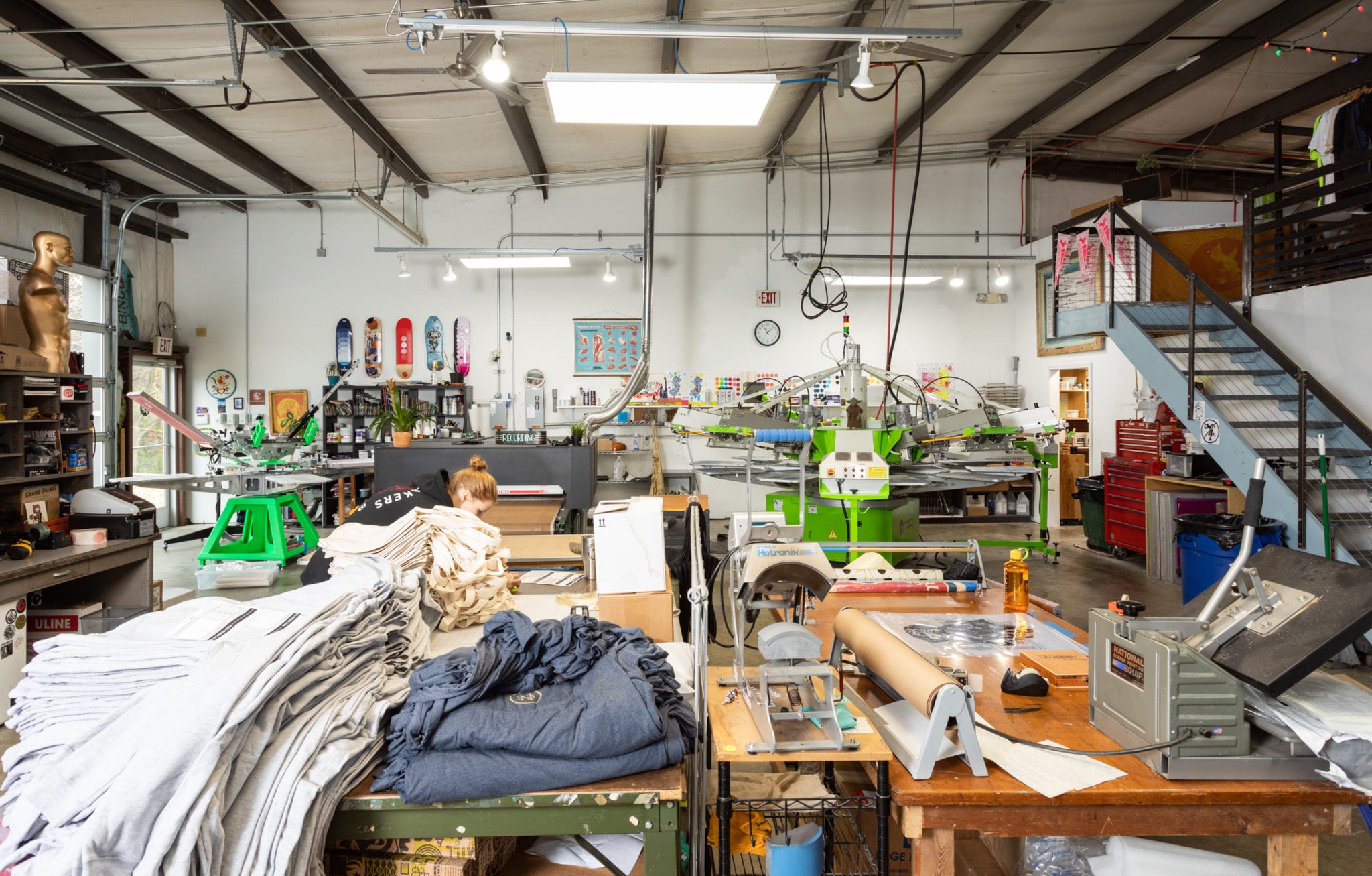
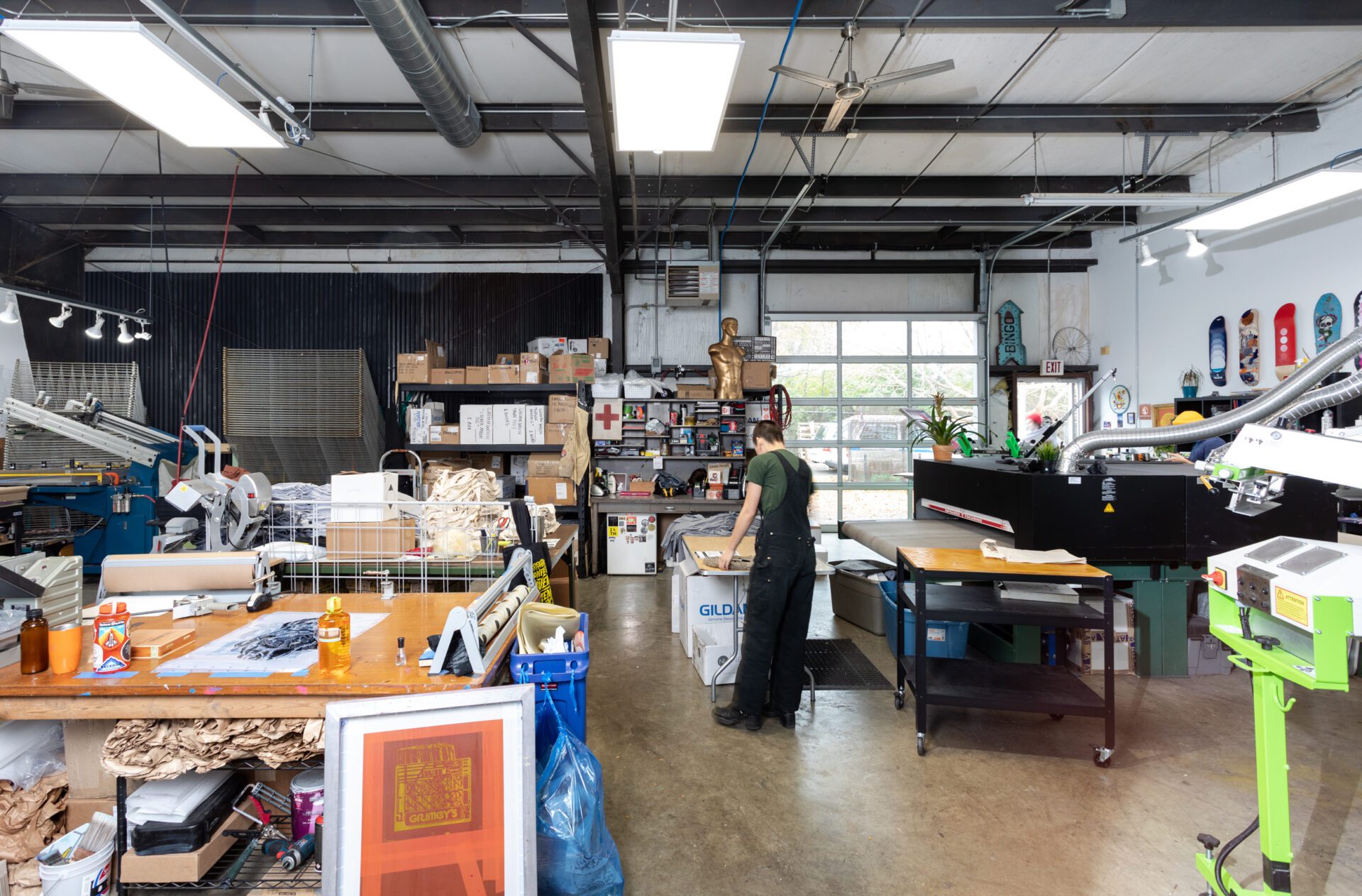
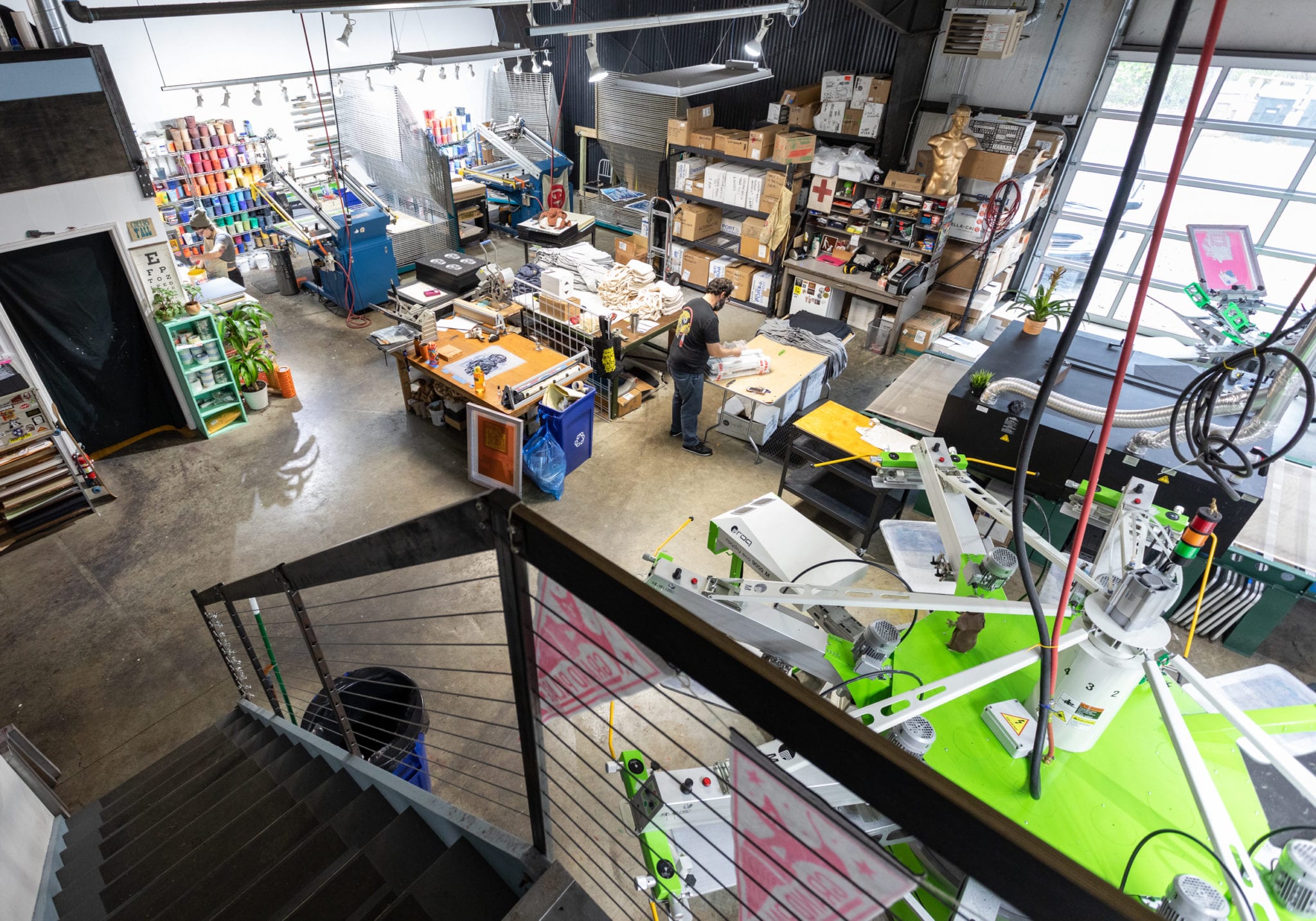
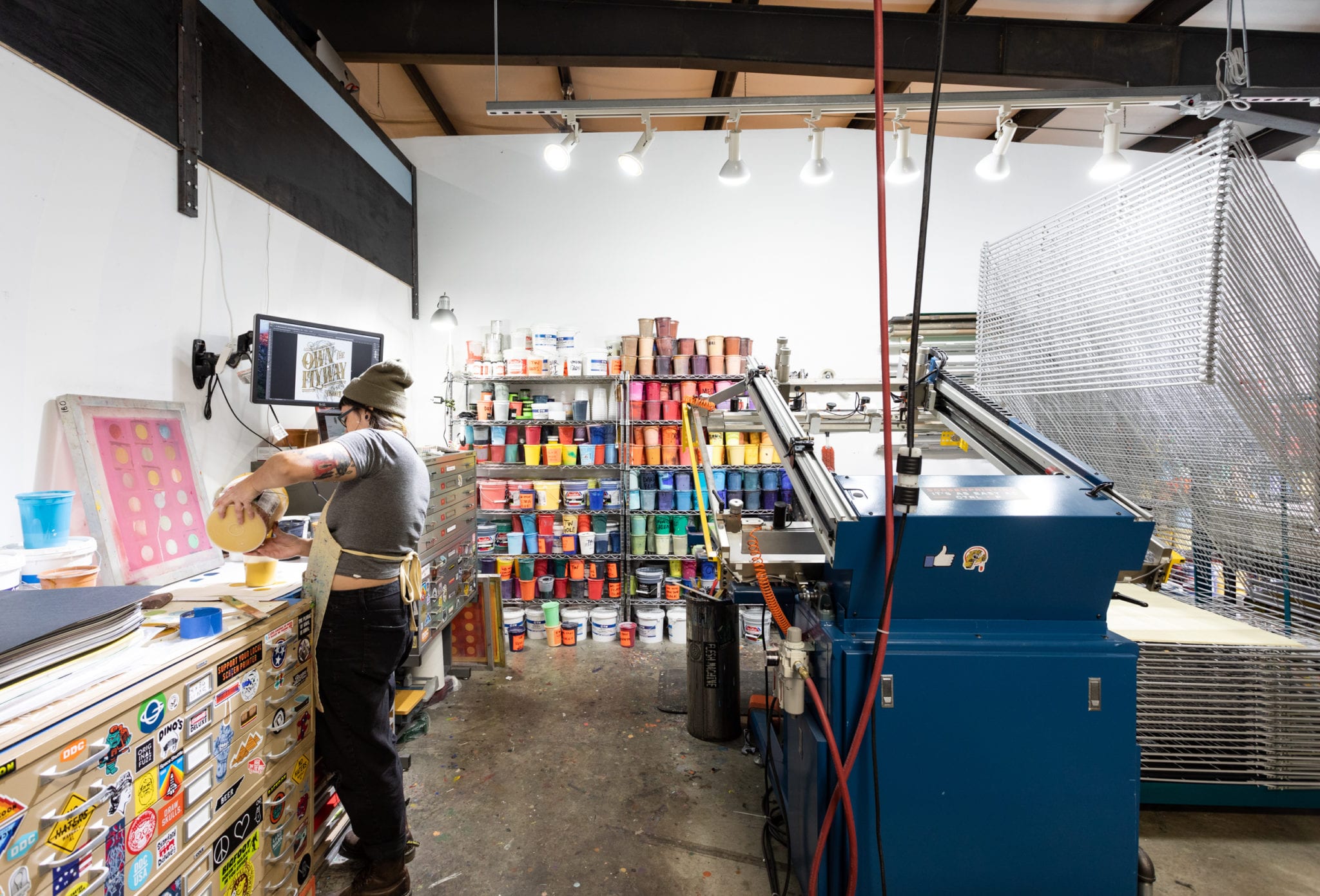
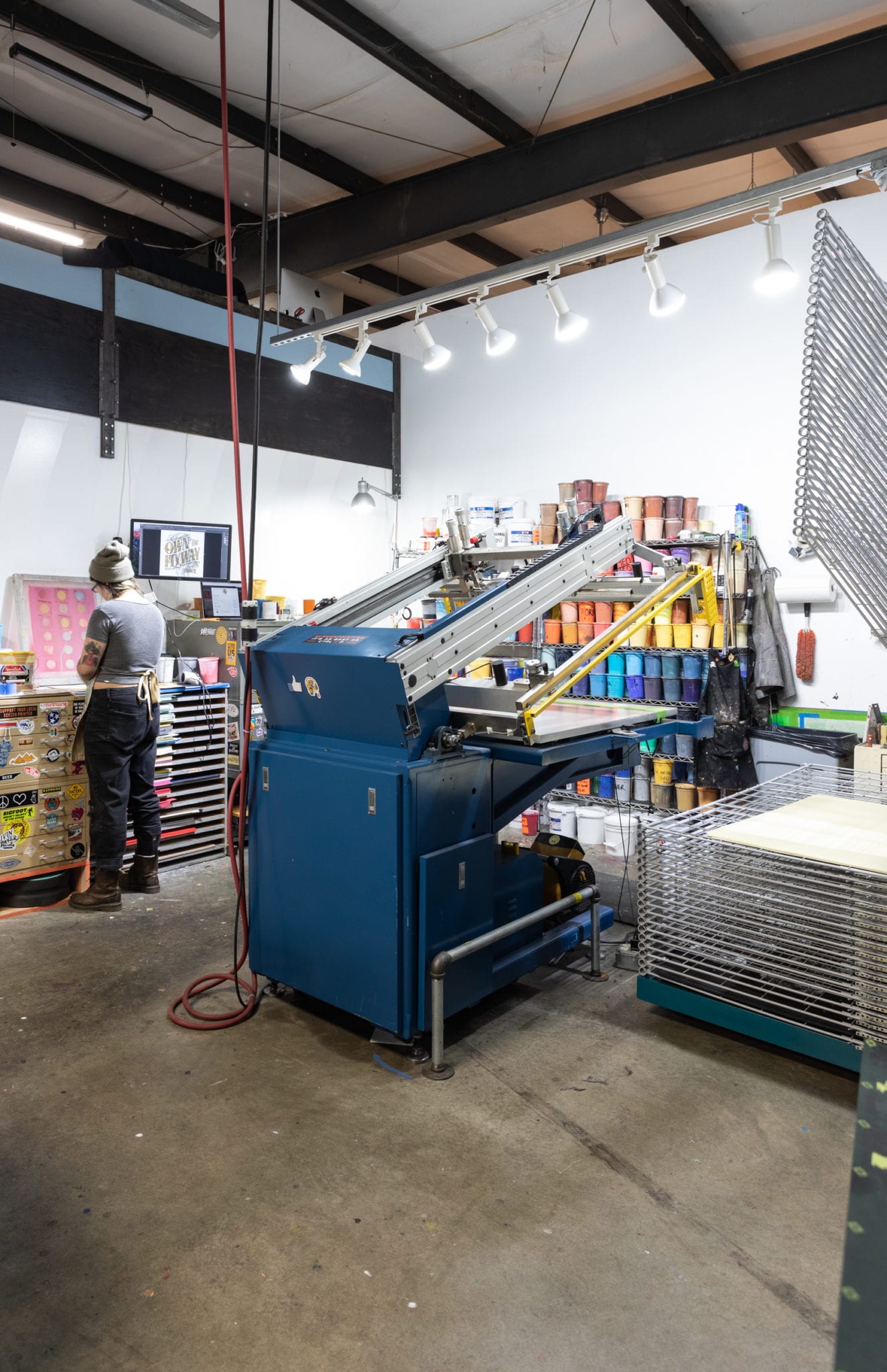
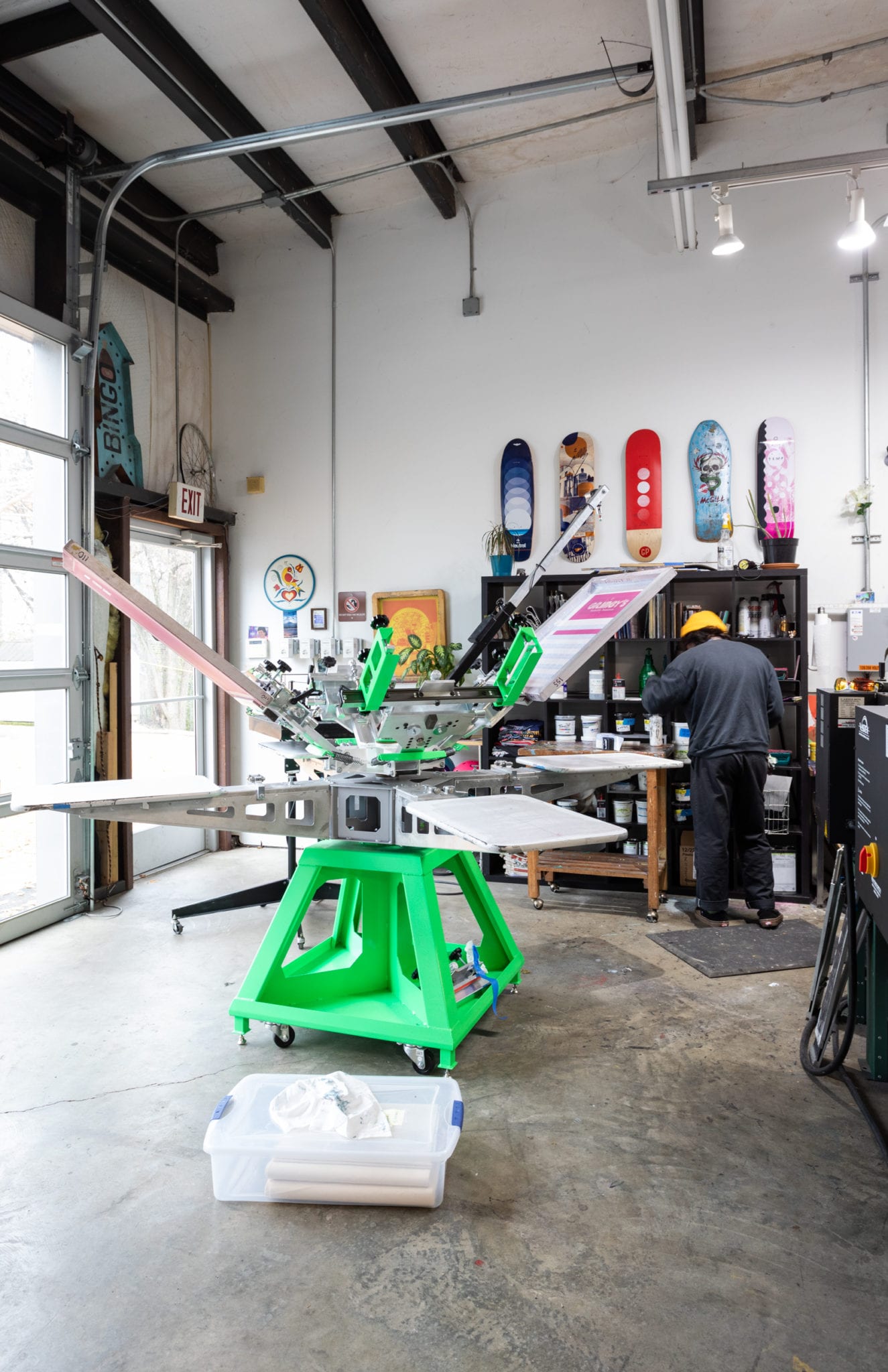
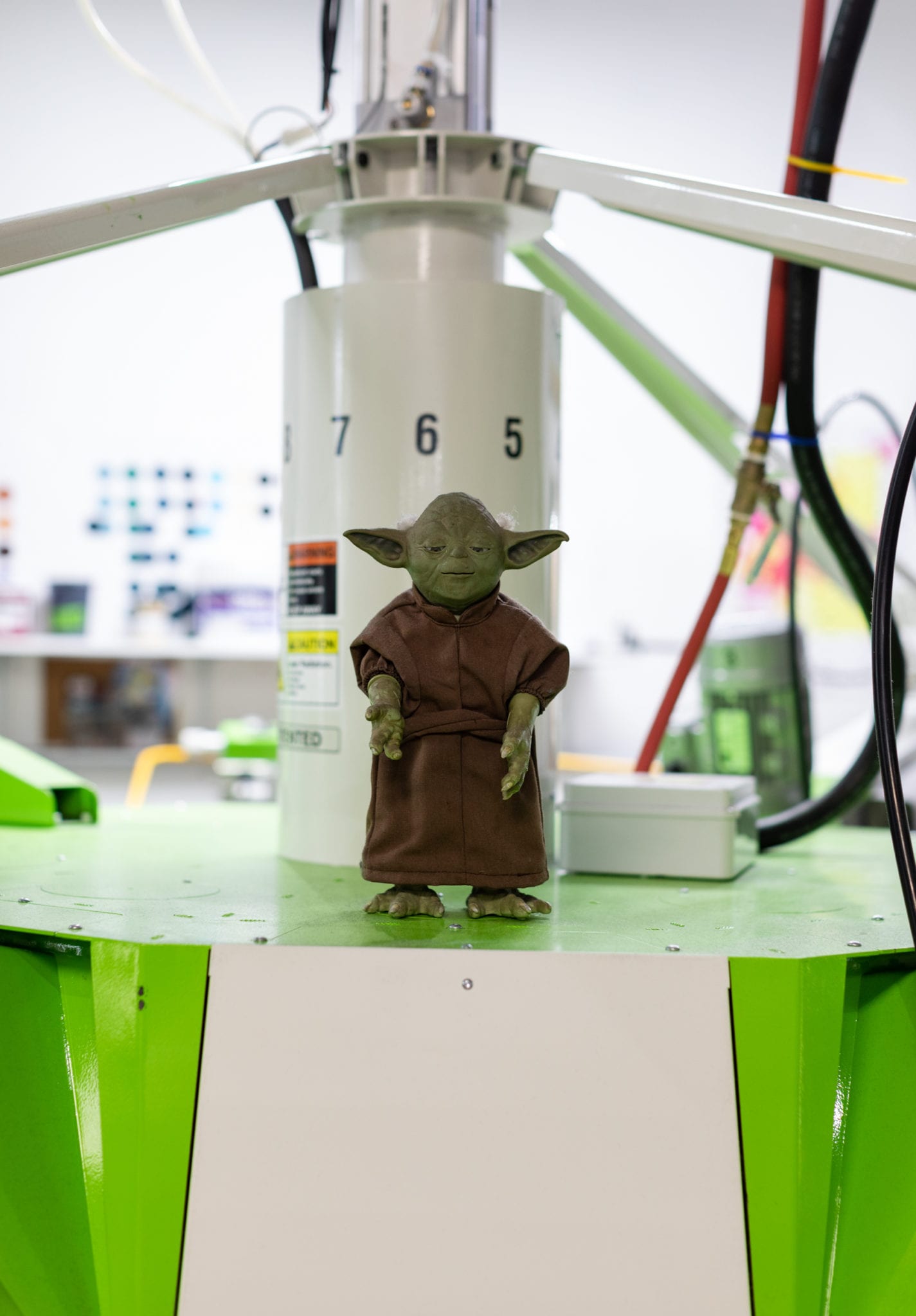
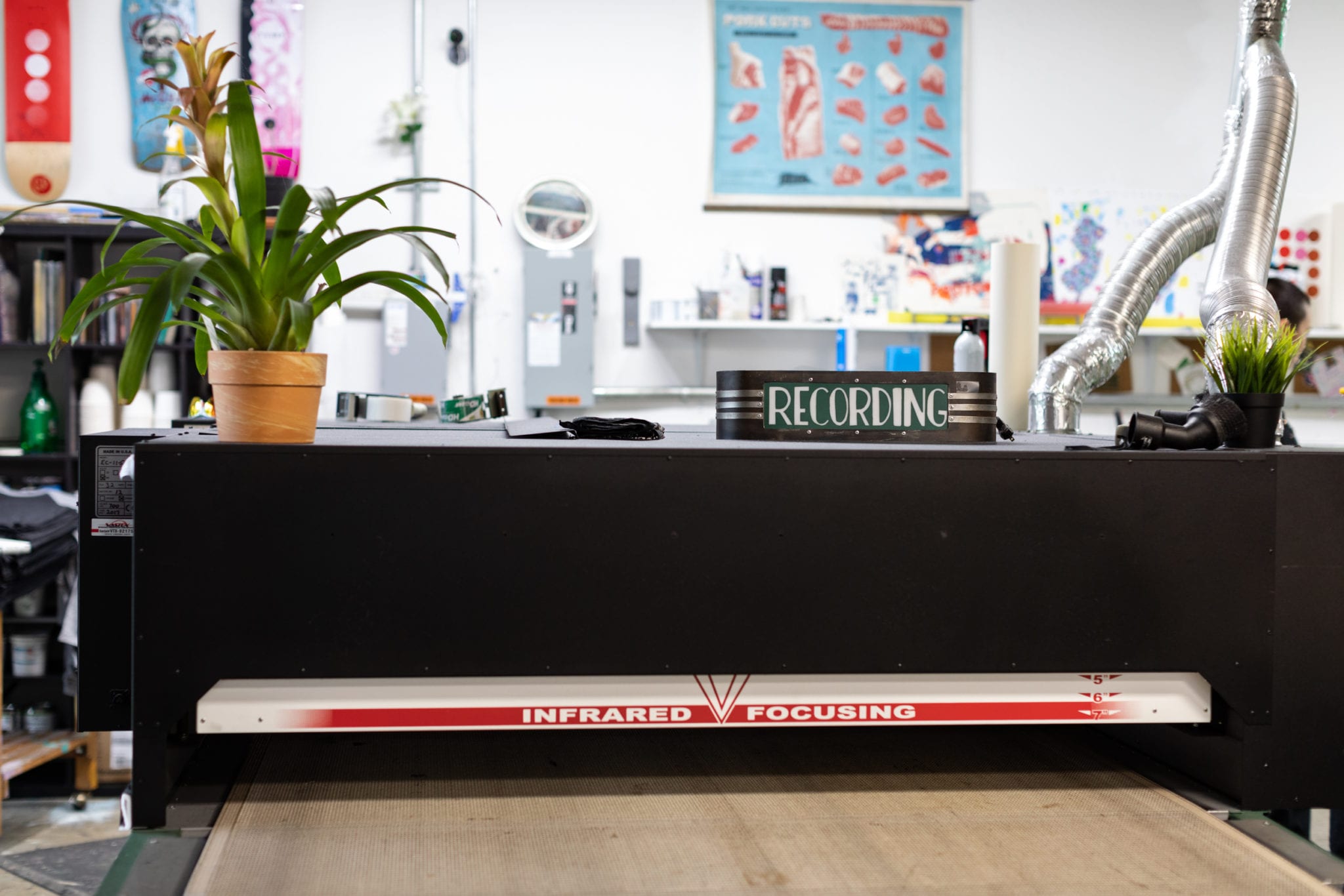
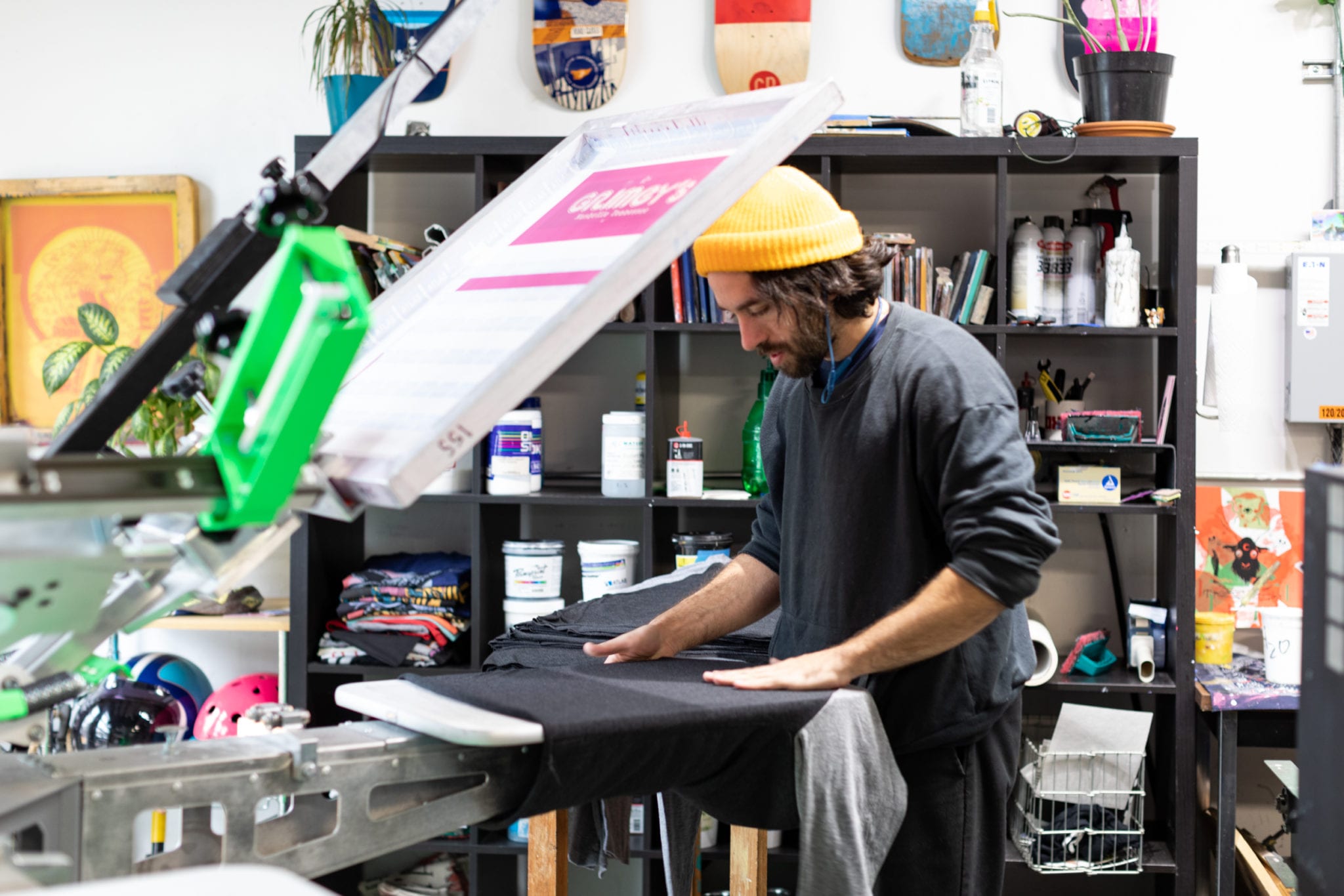
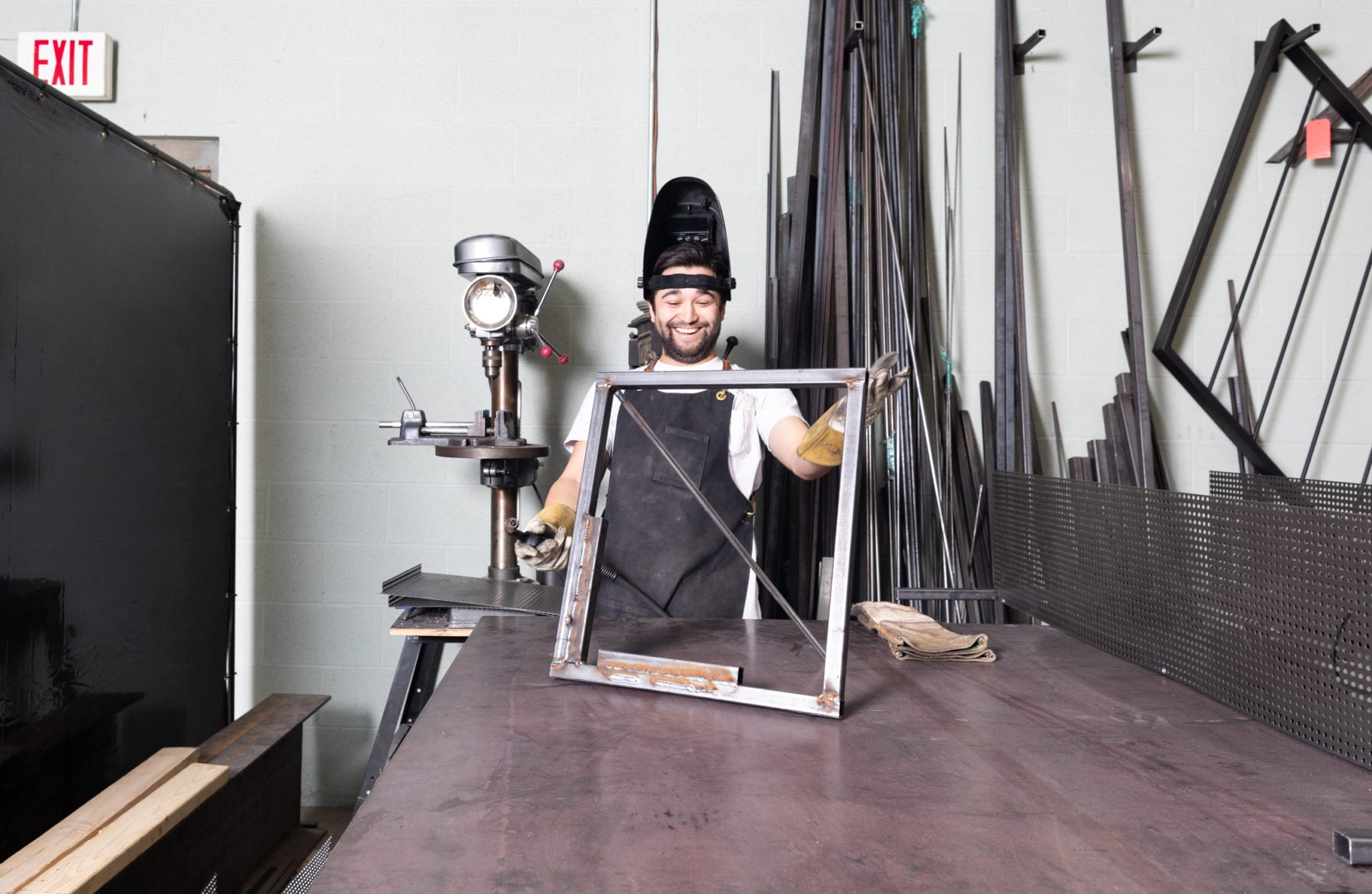
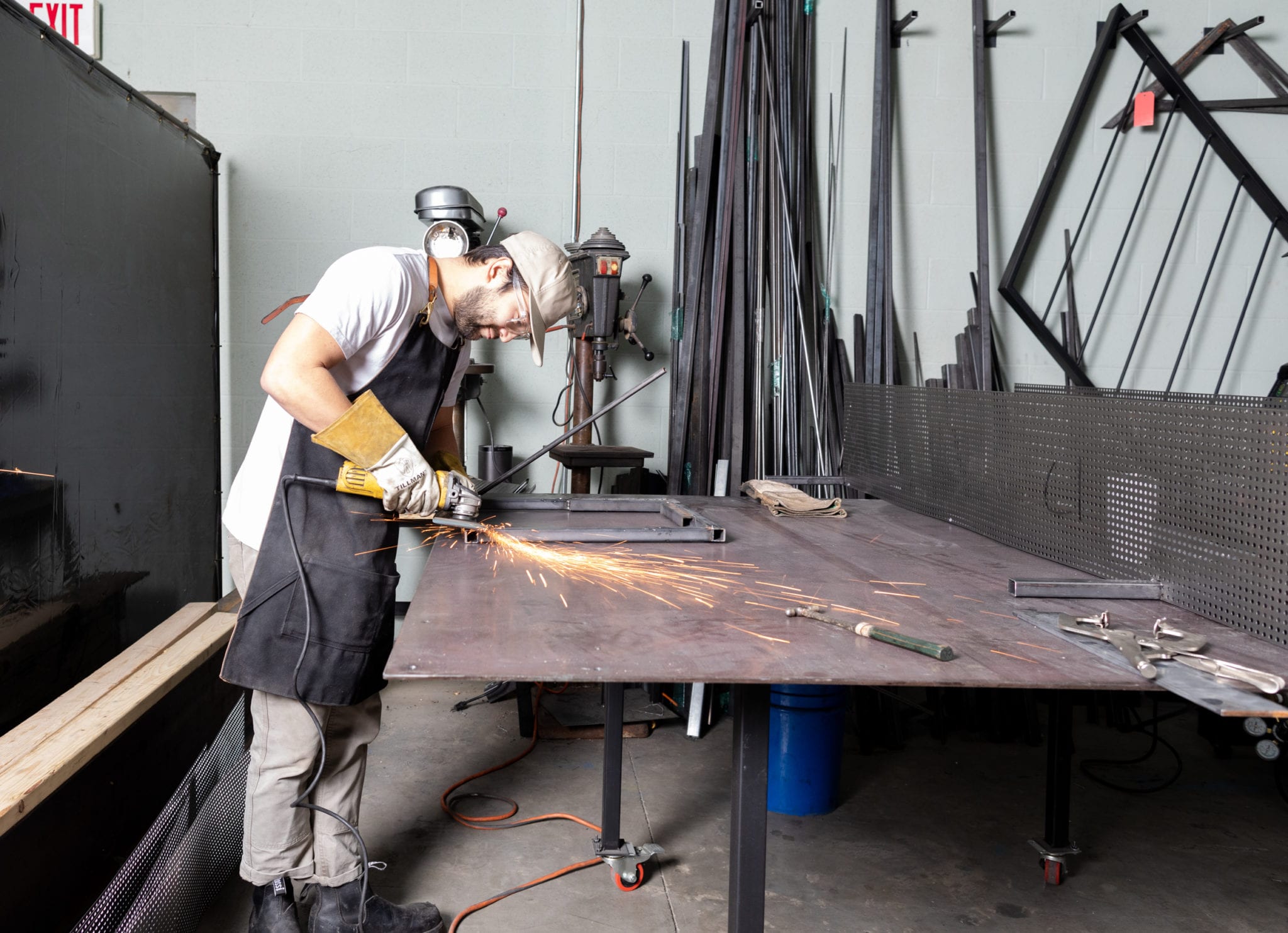
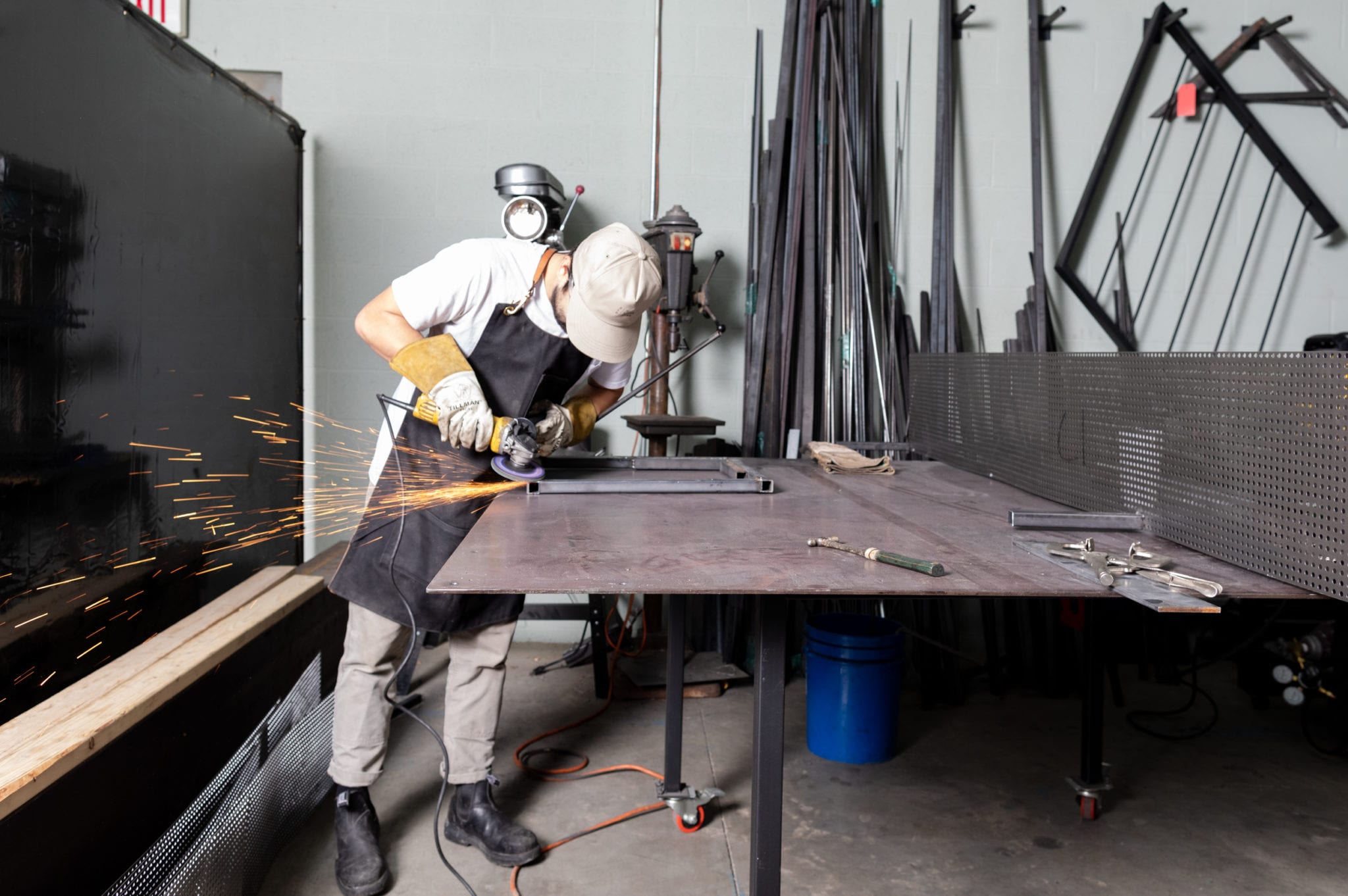
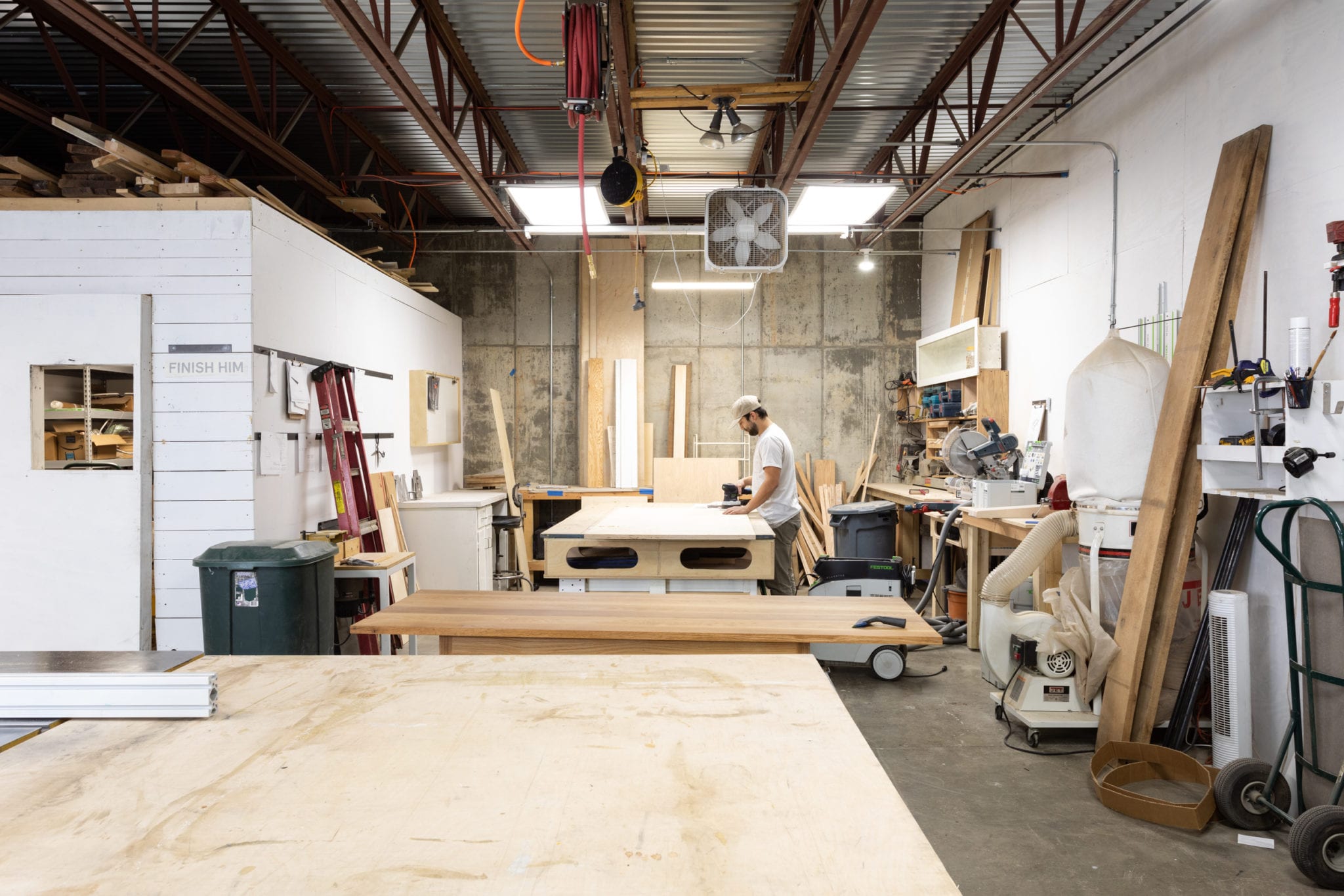
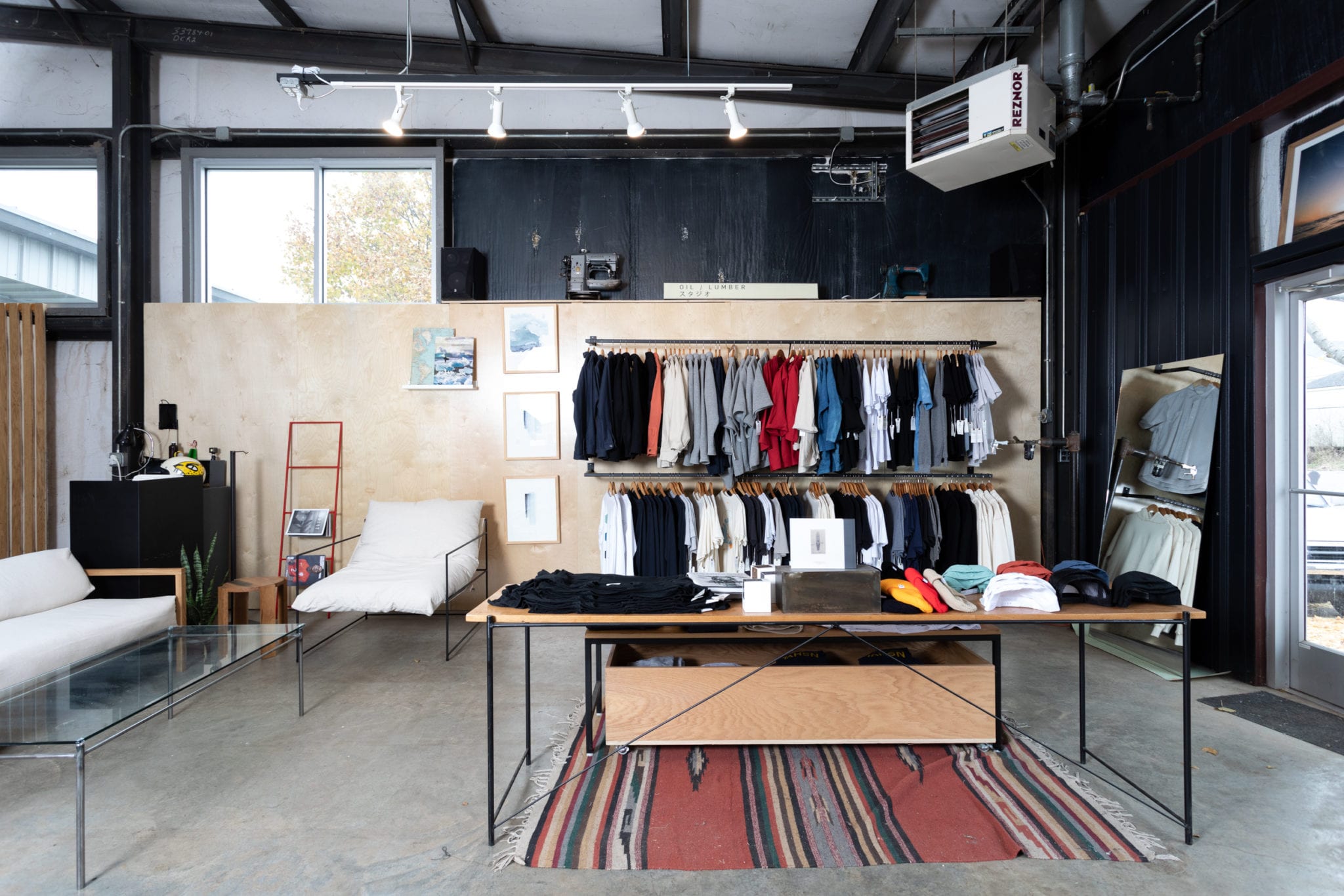
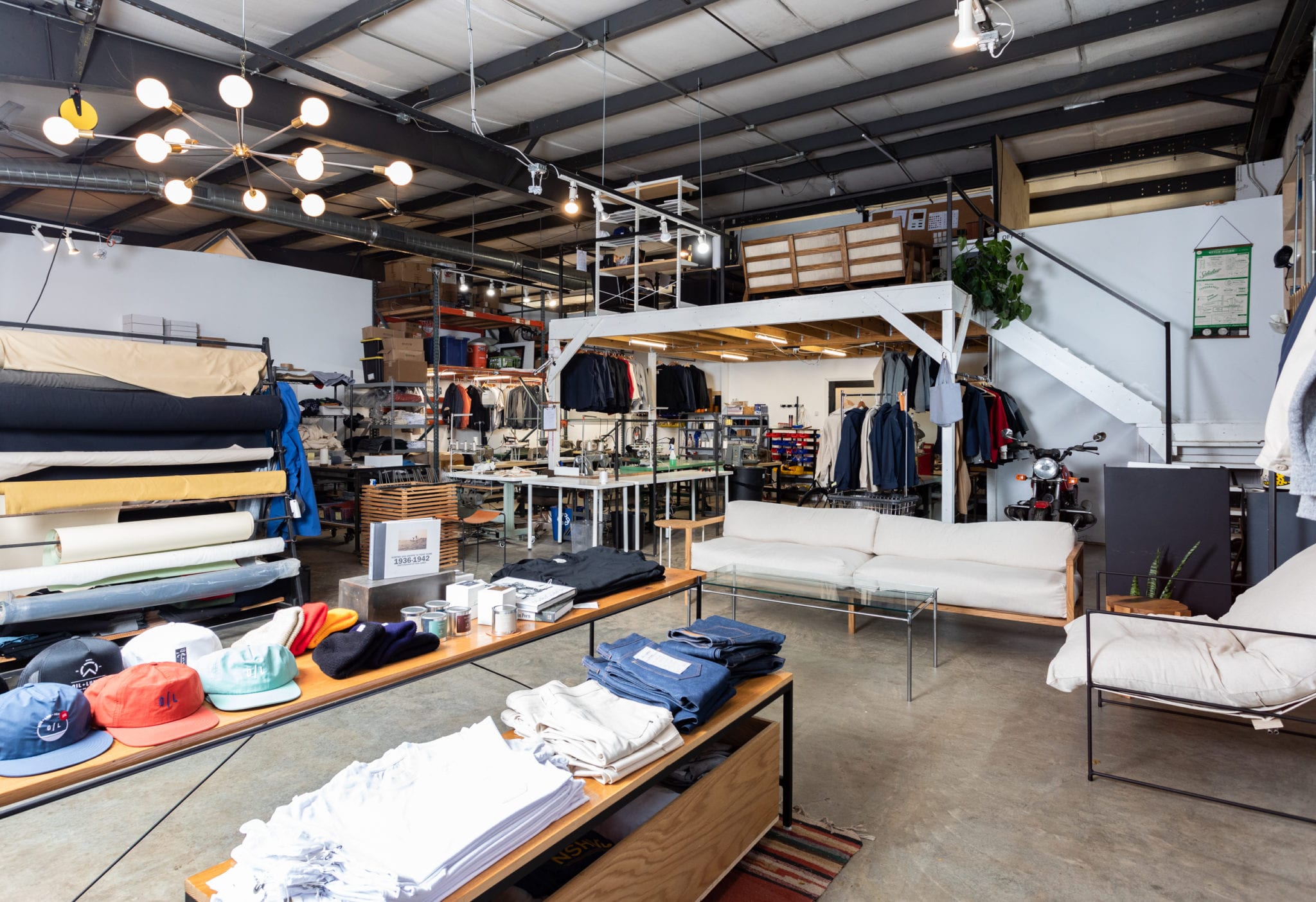
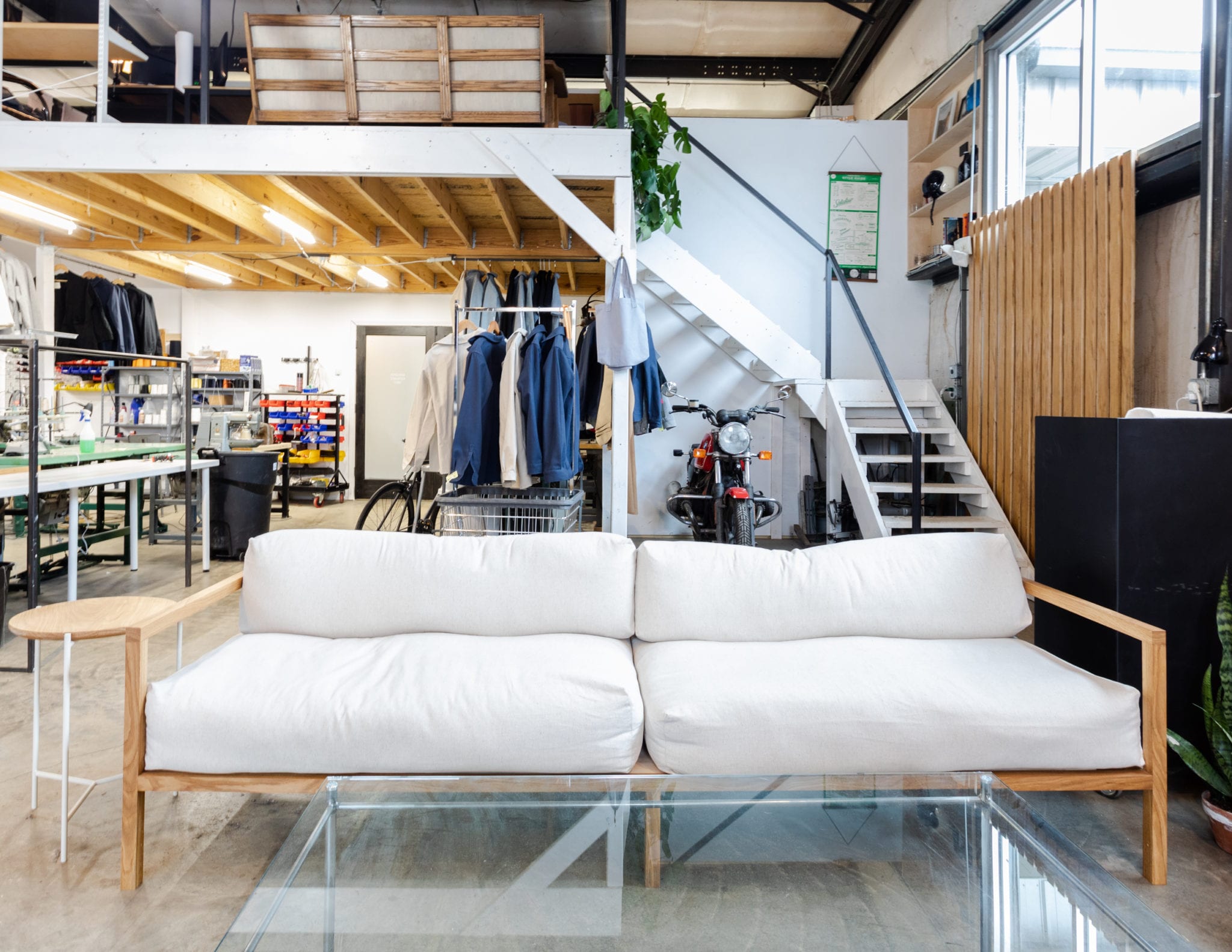
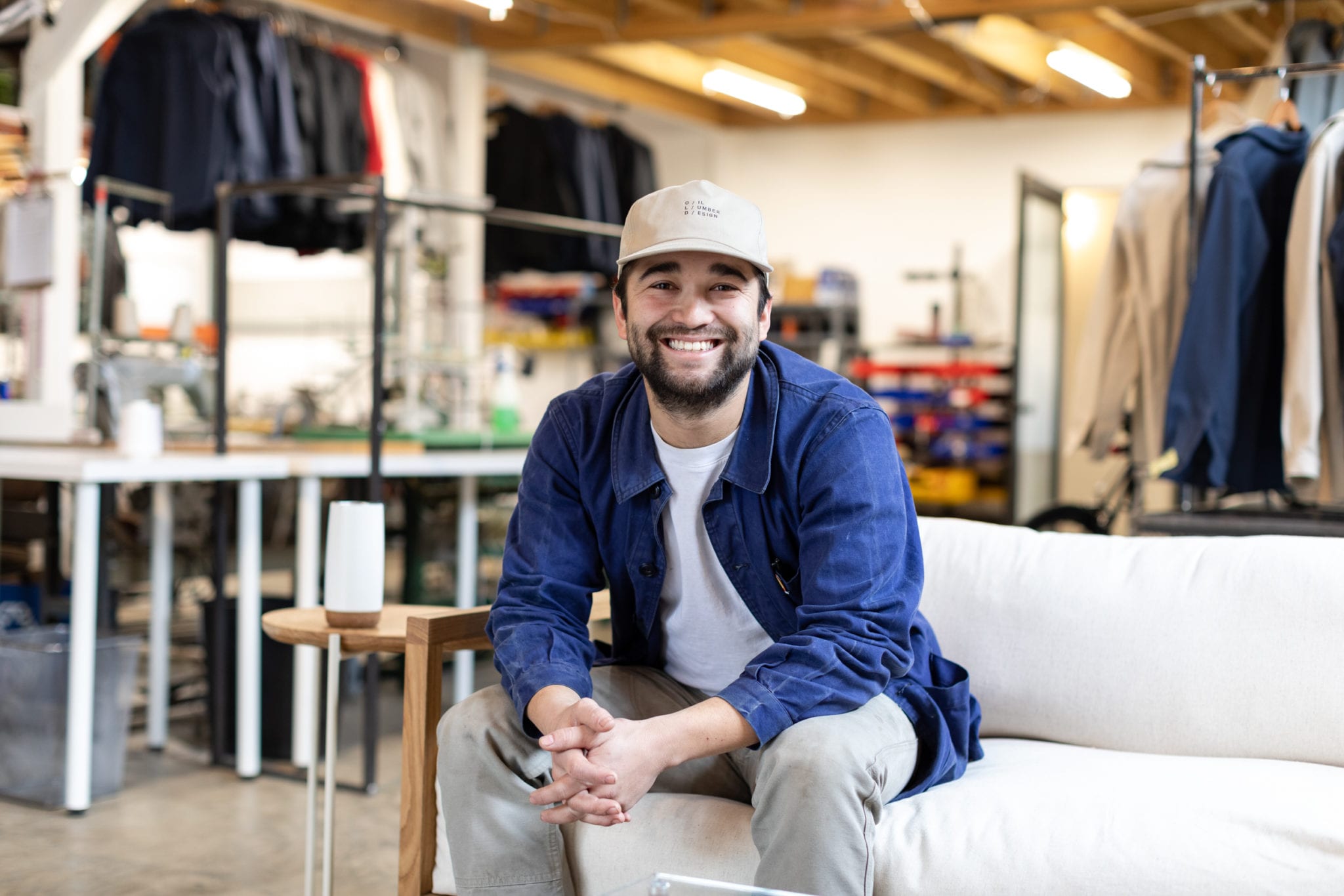
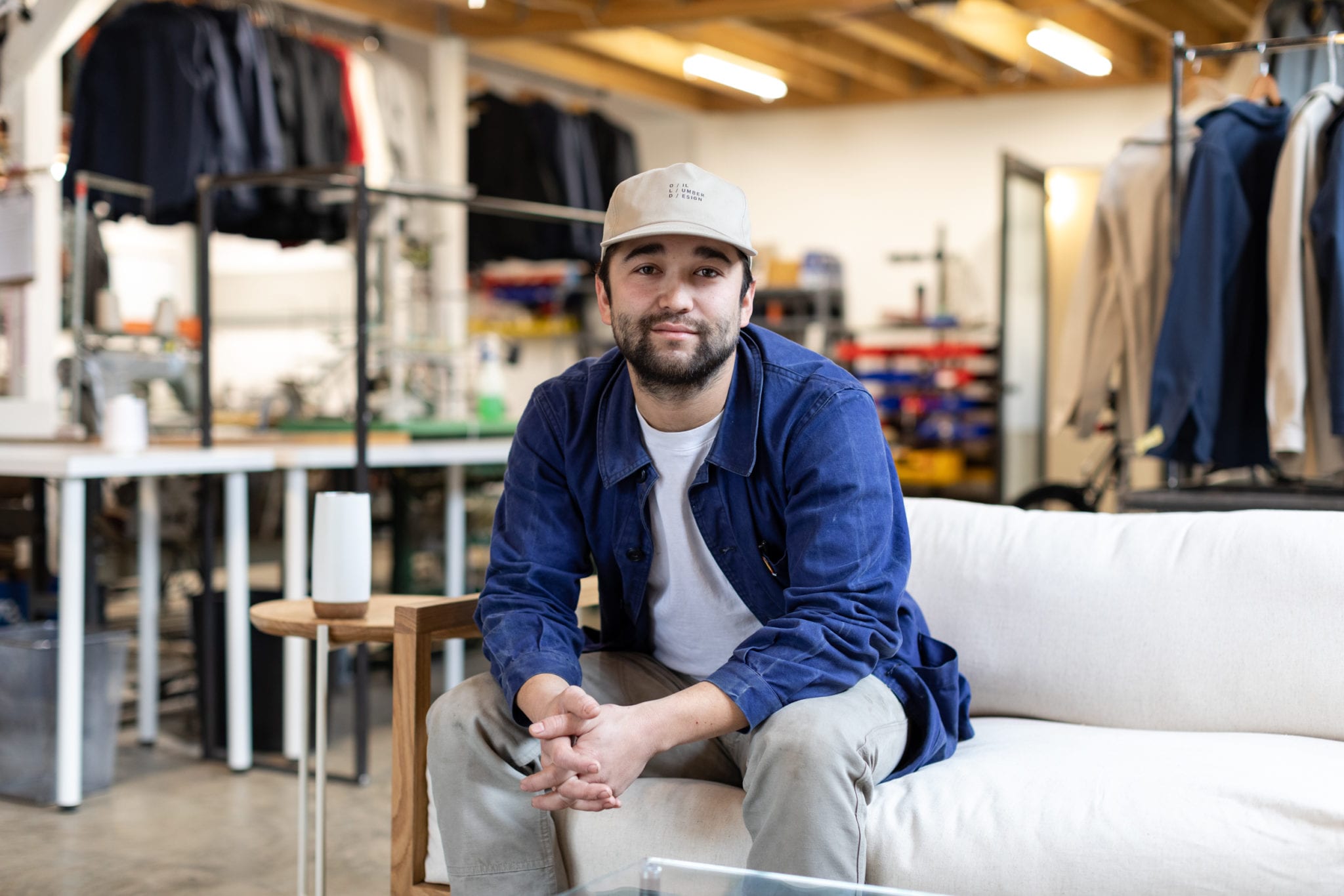
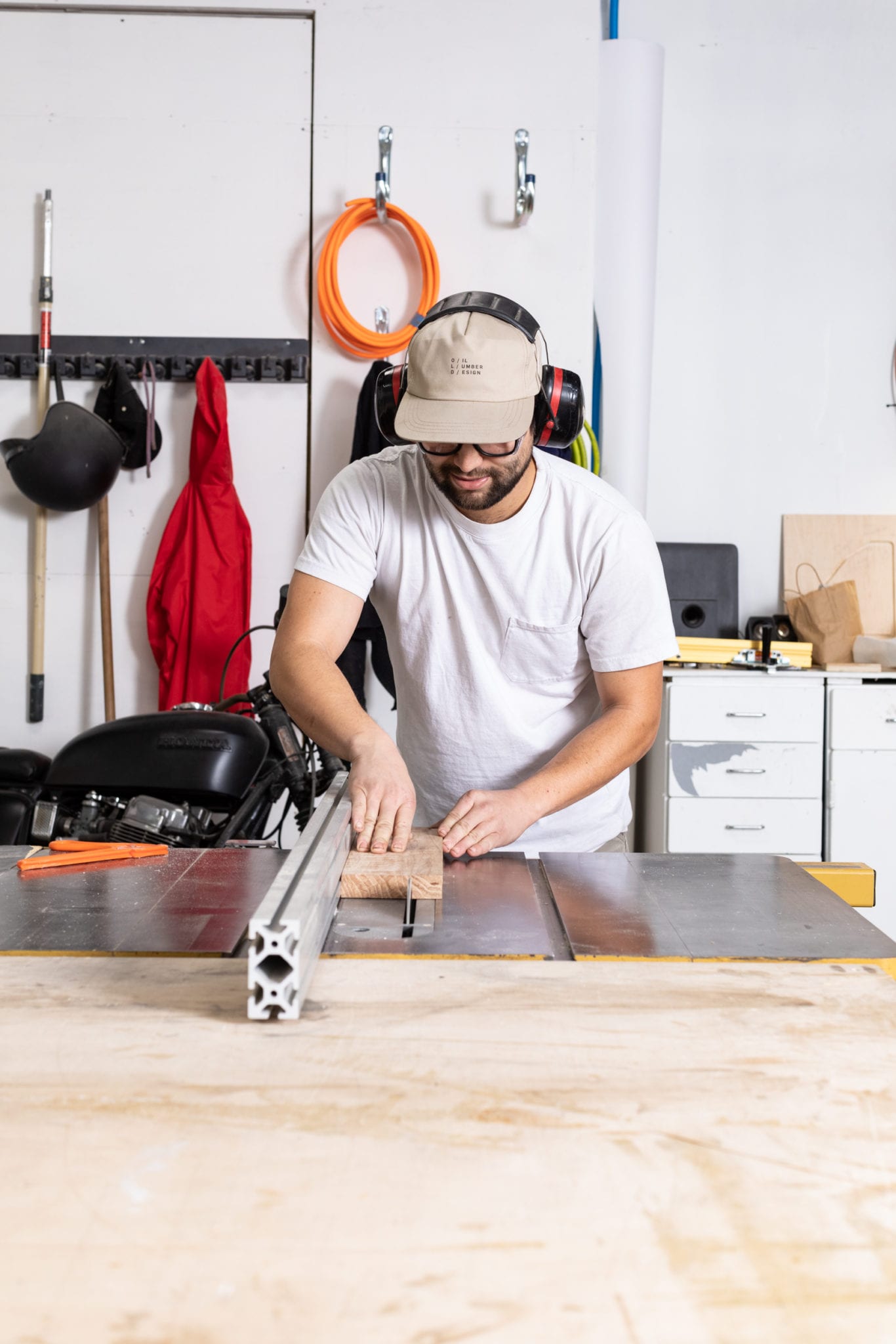
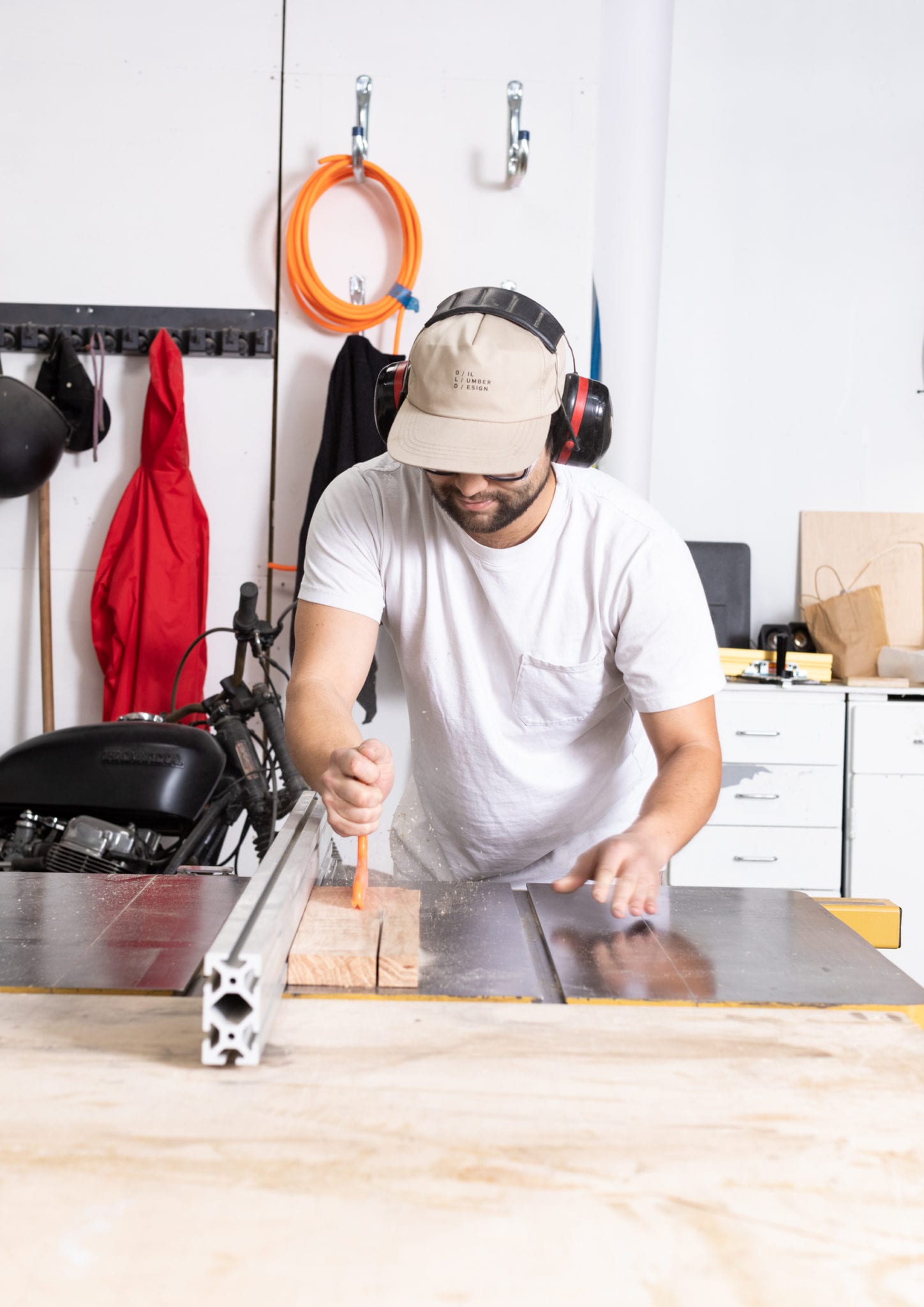
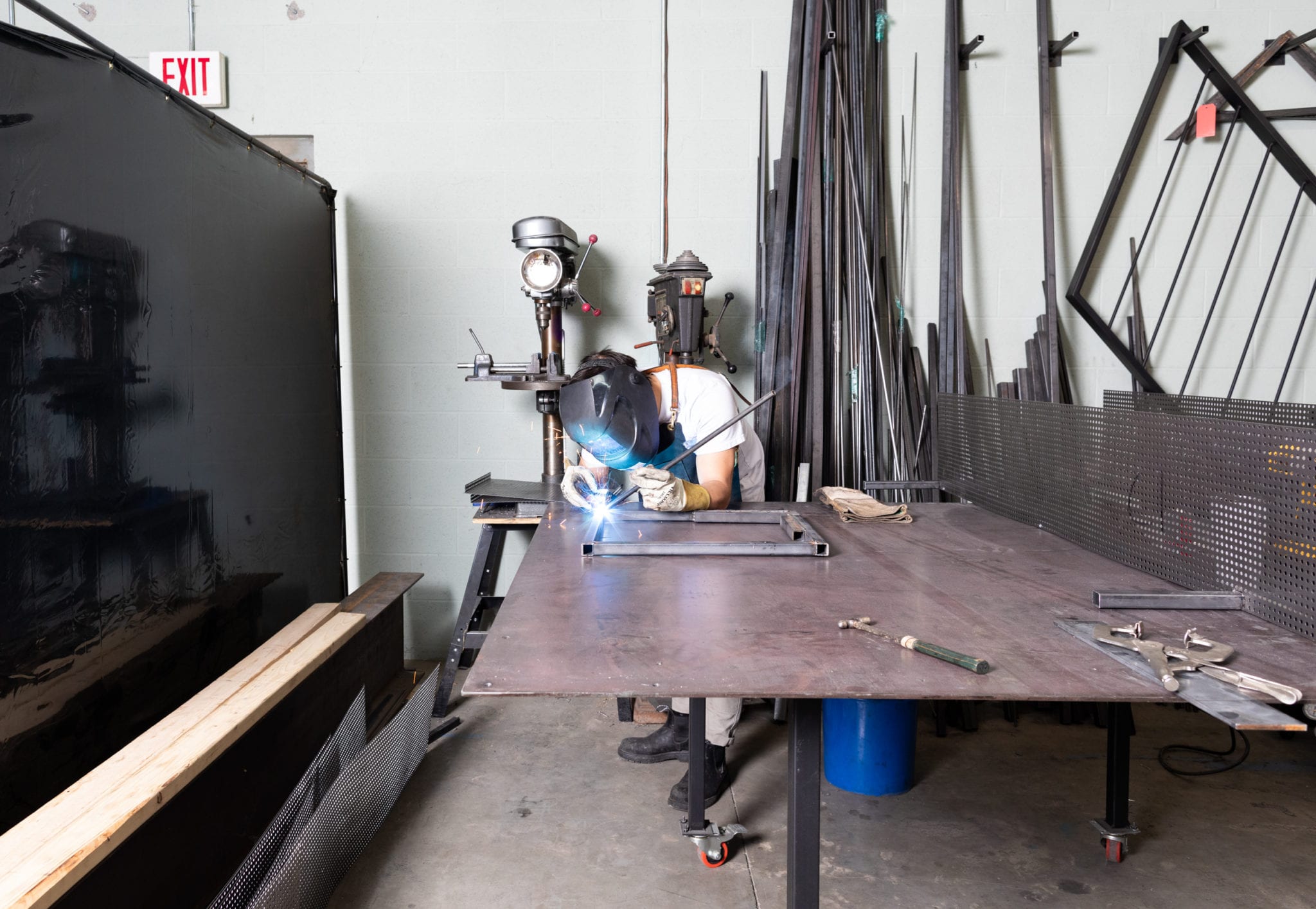
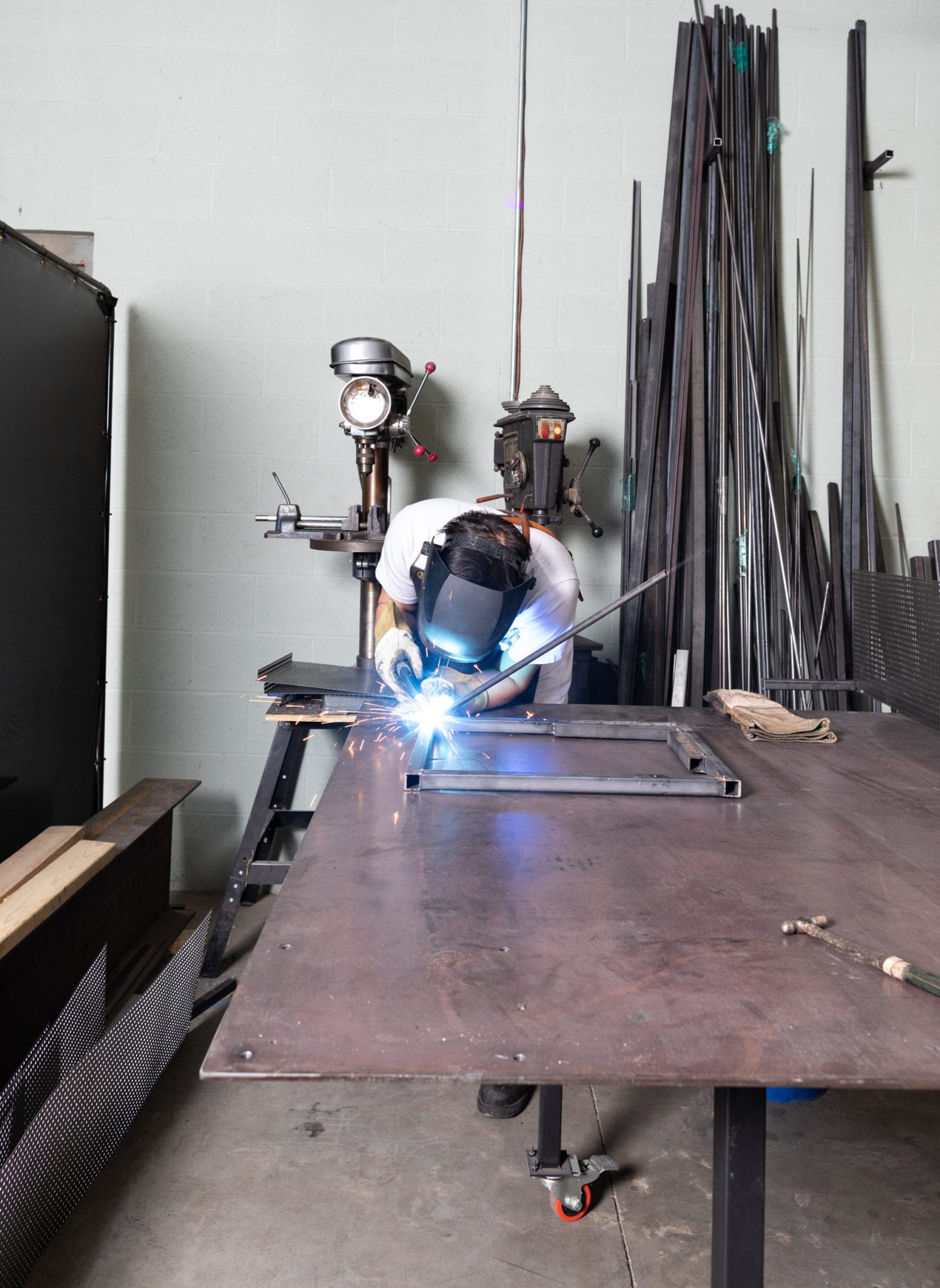
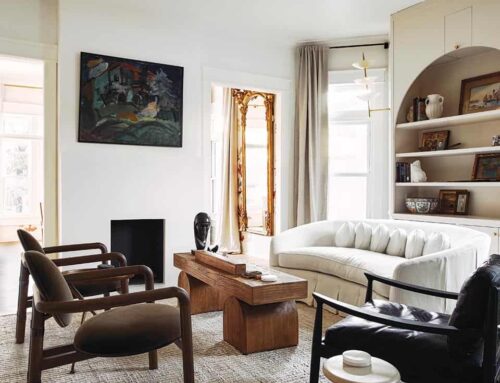
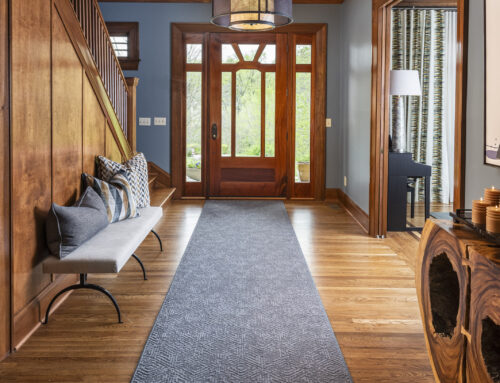
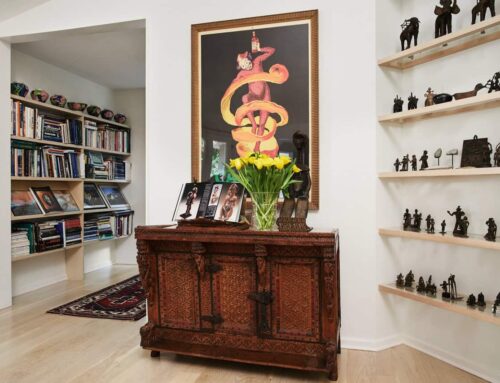

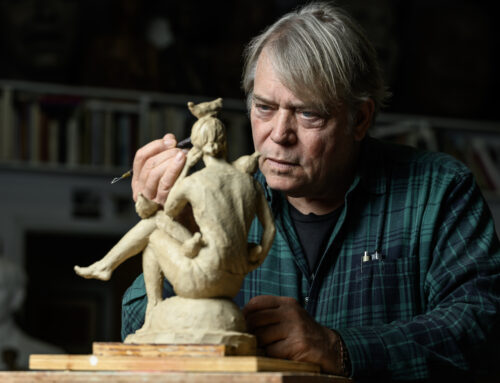
Leave A Comment
You must be logged in to post a comment.